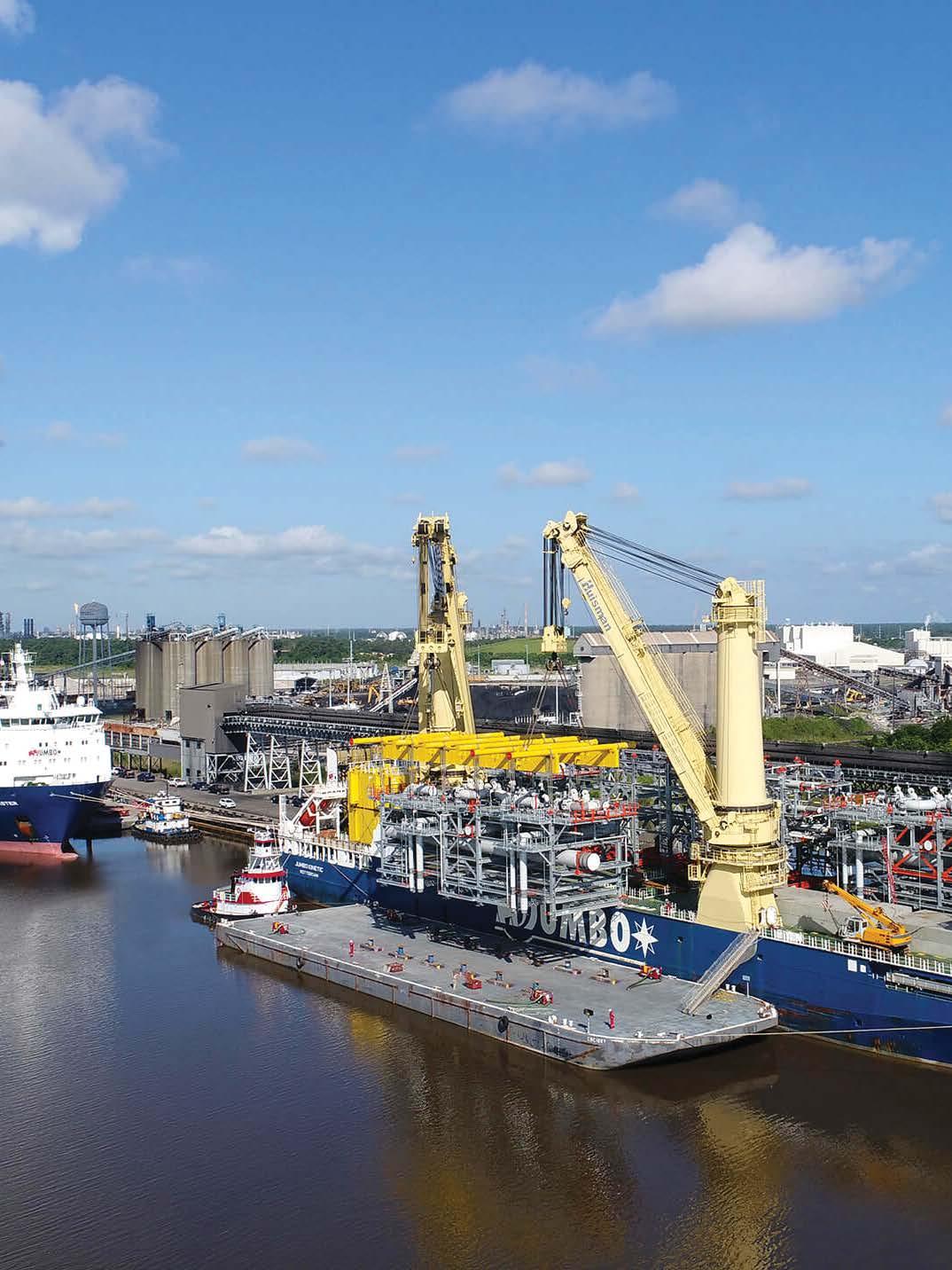

FASTER LIFTS FEWER HANDS GREATER

CSBC-DEME Wind Engineering (CDWE) installed its second offshore substation using ROPES BY BAKAERT, powered by BEXCO’s Ultraline® Slings made with Dyneema® SK78®, a lighter,
This resulted in faster lifts, fewer hands and better efficiency offshore. For CTRL System Technologies Nigeria Ltd and Nigerian operators, this isn’t just innovation, it’s a shift in how we operate our lifts. Lightweight slings mean easier mobilization, reduced risk, and no compromise on performance. From FPSOs to fabrication yards, CTRL in collaboration with BEXCO is driving smarter, safer, and more costeffective lifting solutions across Nigeria’s energy landscape. Sometimes, the lighter way really is the stronger one.
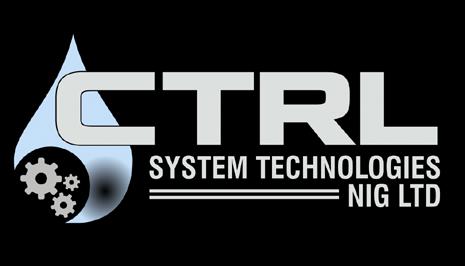

Heads of Departments
Editor-in-Chief Carley Fallows editor@littlegatepublishing.com
Advert Space Director Emlyn Freeman emlynfreeman@littlegatepublishing.com
Project Director Andrew Richards andrew@littlegatepublishing.com
Commercial Manager James Hamilton james@littlegatepublishing.com
Lead Designer Adam Knights
Research Kristina Palmer-Holt
Editorial Research David Craig
Corporate Director Anthony Letchumaman anthonyl@littlegatepublishing.com
Founder and CEO Stephen Warman stevewarman@littlegatepublishing.com
For enquiries or subscriptions contact info@littlegatepublishing.com
+44 1603 296 100
ENDEAVOUR MAGAZINE is published by Littlegate Publishing LTD which is a Registered Company in the United Kingdom.
Company Registration: 404 2112 62
VAT registration number: 13572767
343 City Road 60 Thorpe Road London 79 Norwich
EC1 V1LR NR1 1RY
Littlegate Publishing Ltd does not accept responsibility for omissions or errors. The points of view expressed in articles by attributing writers and/or in advertisements included in this magazine do not necessarily represent those of the publisher. Any resemblance to real persons, living or dead is purely coincidental. Whilst every effort is made to ensure the accuracy of the information contained within this magazine, no legal responsibility will be accepted by the publishers for loss arising from use of information published. All rights reserved. No part of this publication may be reproduced or stored in a retrievable system or transmitted in any form or by any means without the prior written consent of the publisher.

Copyright© Littlegate Publishing Ltd
Editor’s Note
Welcome back to Endeavour Magazine!
We kick off this edition of Endeavour Magazine with a great insight into BP South Africa. We got to see how the company has been expanding its downstream petroleum sector towards the future. From its expansion of new service stations across the country to the introduction of electric vehicle chargers at its existing stations, BP South Africa is focused on delivering the infrastructure needed to serve the country’s petroleum industry now and for the future. For this feature, we’re thrilled to see Industrial Designer Valves showing support for this article, alongside Konica Minolta and Thos Begbie & Co.
We then turn to TotalEnergies E&P Nigeria to explore the company’s Upstream Portfolio spanning across the Egina and Akpo fields. Across these, TotalEnergies has been rolling out vital infrastructural developments to help meet the demands of the country’s oil and gas sector. Alongside its development of existing licence blocks, TotalEnergies has been expanding its portfolio after it was awarded ownership of new exploration licences in the country within the prolific oil-producing West Delta Basin. It’s great to see Apex Gas Nigeria Limited, Setraco Nigeria Limited and The Initiates Group showing key support for TotalEnergies E&P Nigeria here.
This month, we also got to speak with Brown’s Town Community College (BTCC) to find out about their vital role in Jamaica’s education sector. We got to see the range of courses the College offers, as well as its role in producing a thriving alumni community to foster employment beyond the institution. Across BTCC’s operations, the focus on providing education and personal development to set its students up for life remains the central priority.
by Carley Fallows

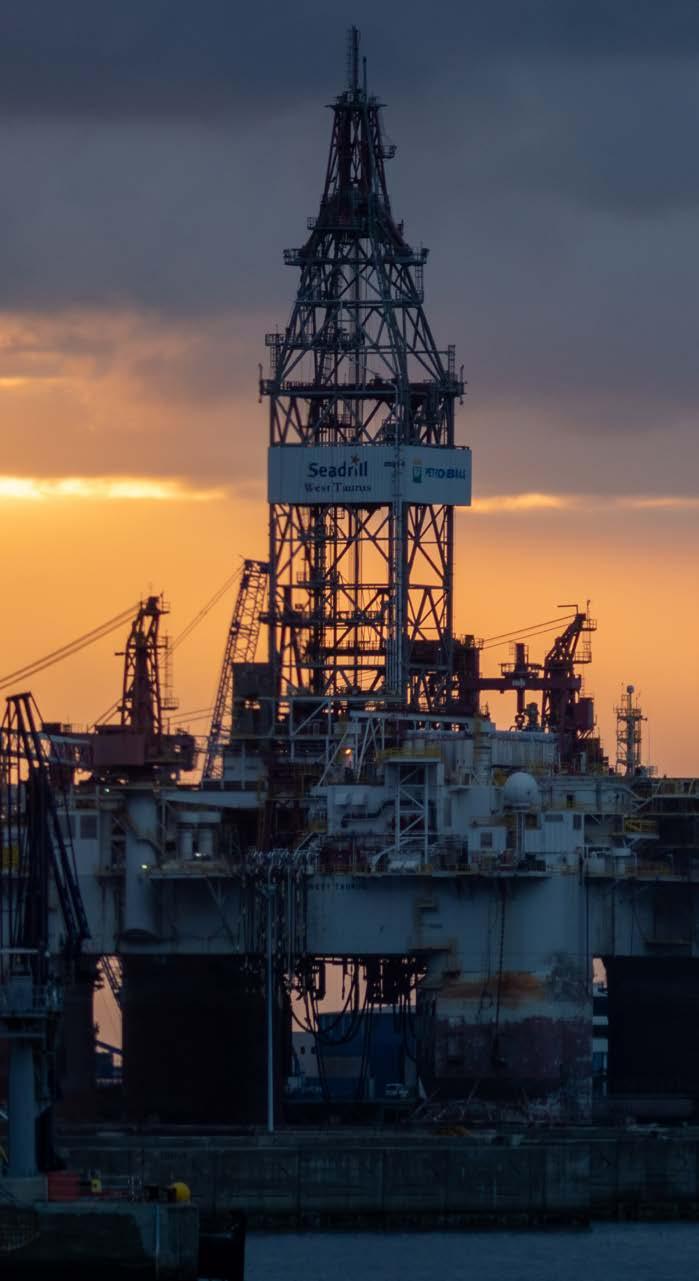
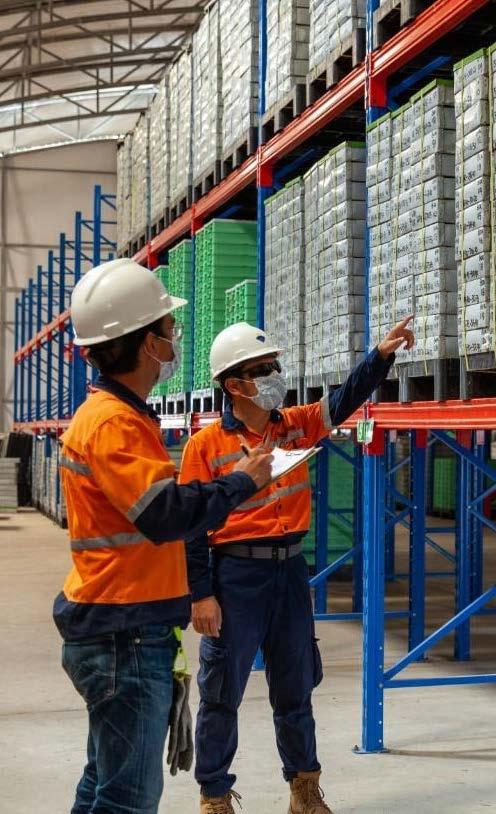

Asia/Oceania
World’s Highest Bridge Opens in China
The Huajiang Grand Canyon Bridge stand 2,050 feet above the gorge in the Guizhou province, making it the world’s highest bridge, and it has now been opened to the public. The bridge that extends between the two sides of the gorge, is also the largest span bridge built in a mountainous area. Construction began on the bridge in January 2022, and saw a testing team driving 96 trucks into designated points of the bridge in August this year to test its structural integrity.
Now completed, the bridge will cut the time it takes to travel between the canyon’s two sides from 2 hours to just two minutes, significantly improving transport and travel times across the province. The bridge replaces the Duge Bridge, which was the previous holder of the ‘World Highest Bridge’ title.
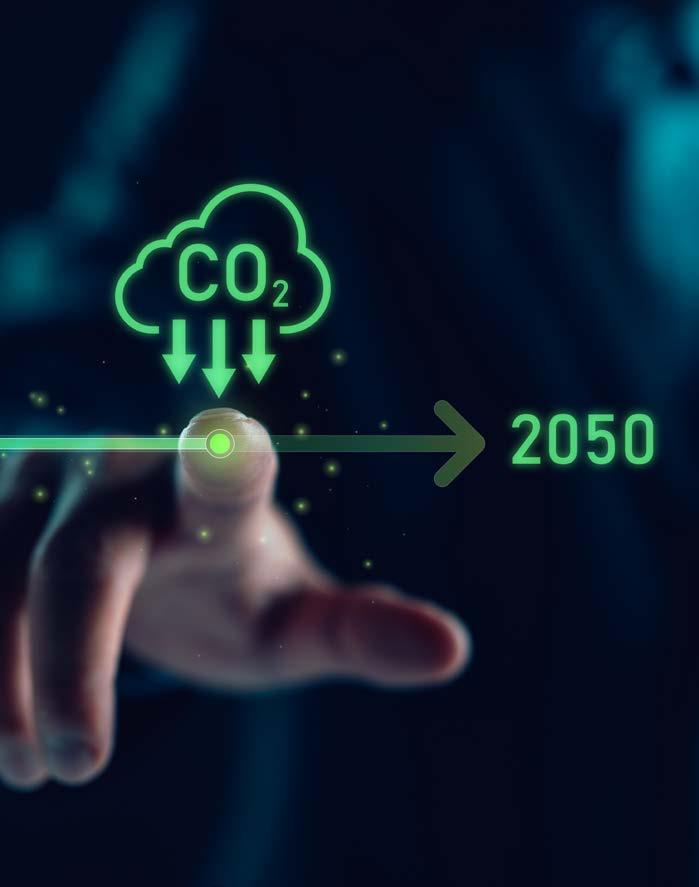
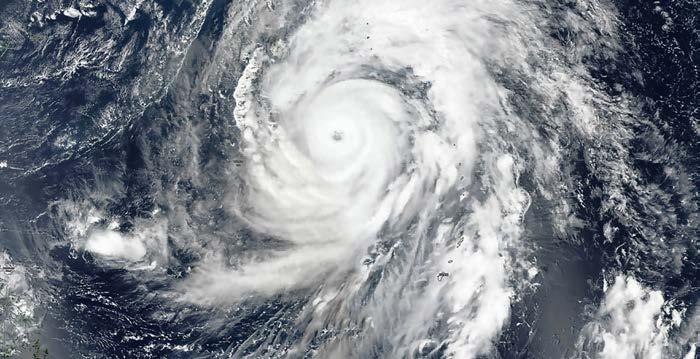
Super Typhoon Hits Taiwan
Millions of people were forced to evacuate as Super Typhoon Ragasa headed towards the Philippines, Taiwan and China. With peak winds of up to 165mph, the Super Typhoon brought with it significant heavy rain, which led to the barrier lake, which has been formed by a previous landslide in Taiwan, bursting its banks, sending water flooding the nearby township of Guangfu. The flooding caused by the lake bursting its banks led to the death of 17 people in Taiwan. The flooding washed away key transportation routes, including bridges, left vehicles submerged, and severely flooded buildings.
As the super typhoon made its way towards Hong Kong, 90 people were injured from the storm, with 197mm of rain seen across the region. The typhoon then moved westward, making landfall in the Guangdong province of China, where wind speeds of up to 150mph were seen. 2 million people were evacuated across the south of China, with schools and businesses shut. The super typhoon is the world’s strongest storm so far this year, and it left widespread destruction across Taiwan, the Philippines and southern China.
Australia Announces New Emission Goals
The government of Australia have outlined new emission reduction targets which it hopes will help reduce the pollution caused by the country. At present, Australia is one of the world’s largest polluters per capita. The new measures aim to raise its emission target to between 62 and 70% below 2005 levels by 2035. The previous target saw the country pledge to reduce its greenhouse gases by 43% by 2030. Therefore, the increase in greenhouse gas reduction targets highlights the country’s mission to cut its reliance on fossil fuels.
Australia has seen significant weather systems in recent years caused by climate change, including vast bushfires and flooding across the country. In addition, the bleaching seen across the Great Barrier Reef signals the rising sea temperatures. Therefore, the targets set out by the government aim to help reduce the country’s overall emissions and work towards its goal of achieving net-zero by 2050. .
Africa

Fires Across Namibian National Park
The Etosha National Park is one of the largest national parks in Africa, bringing hundreds of thousands of tourists to the wildlife reserve every year. However, a blaze that spread across a third of the national park has caused widespread destruction to the biodiversity of the land, whilst also killing wildlife and threatening the livelihood of the local community. Thousands of hectares were burned in the fire, which was primarily located along the grazing pastures that border Angola.
The Etosha National Park is home to critically endangered black rhinos, as well as a wealth of other animals. At present, at least 9 antelopes have been killed by the fires. The fires are now under control, following helicopters and soldiers being sent in to tackle the blaze. Whilst some fires still burn, they are thought to be under control. The widespread destruction is thought to have been caused by strong winds and dry vegetation, which allowed the fires to spread easily.
Nigerian Chef Breaks World Record
Hilda Baci, a chef from Nigeria, broke a new world record in Lagos for cooking the largest ever pot of jollof rice. The dish was cooked in a custom-made pot designed to hold 23,000 litres, and took a total of 9 hours to cook, supported by 10 other chefs. However, the title was almost lost when the custom pot broke as it was being hoisted onto a crane to be weighed. Thankfully, no rice was spilt, and the dish weighed in at an impressive 8,780kg.
Footage of the cooking and weighing process is currently being sent to the Guinness World Records for them to officially recognise Hilda Baci as the holder of the title. However, this is not the only title Baci holds, as in 2023, she earned the title for the longest cooking marathon after cooking for nearly four days straight.

Public Holiday Declared in Botswana over Athletics Gold Medal
Following the victory by Botswana’s men’s team in the 4x400 metre race at the World Athletics Championship in Tokyo, a national holiday was announced to celebrate the achievement. The achievement comes as the team were the first African nation to win the event, highlighting the gold as a historic win for Africa. Ahead of the country’s Independence Day, President Duma Boko announced that the day before Independence Day would be a holiday across the country to celebrate. The gold for the men’s 4x400 metre race has been claimed by the United States team in nine of the past 10 editions, further highlighting Botswana’s win as historic for the competition. South Africa claimed second place, with the United States coming in the bronze medal position.
Americas

Carlos Alcaraz Defeats Rival Sinner in US Open
In what seems to be a recurring final match in every tournament, Jannik Sinner and Carlos Alcaraz faced off in the final of the men’s singles at the US Open. Alcaraz put on a strong performance and defeated his rival Sinner 6-2, 3-6, 6-1, 6-4, claiming his second US Open title and 6th overall Grand Slam title. This is the fifth season that the two players have faced off in the final and carried out their long-standing rivalry. However, after beating Sinner in the US Open, Alcaraz reclaimed his world number one ranking from Sinner, who had previously held the position for 65 weeks.
Alcaraz showed his power across the match with a variety of shots, and a strong serving hand. To secure his title, he delivered a 131mph ace. Sinner has been struggling with abdominal issues during his semi-final, which could have contributed to him making uncharacteristic errors.


NASA Announced First Moon Mission in 50 Years
50 years since the last crewed moon mission, NASA have announced that hopes to launch a new space mission in February 2026. Reid Wiseman, commander of NASA’s next mission to the moon, outlined that the mission would see the spacecraft fly over areas of the moon which were never mapped by previous Apollo missions.
The Artemis II mission, the second launch of the Artemis program, hopes to land astronauts on the moon’s surface and eventually establish a longterm presence there. The mission should provide the astronauts with the ability to study the moon’s surface for three hours, providing a wealth of research on the moon.
NFL’s First Tie Since 2022
The Dallas Cowboys and Green Bay Packers faced off at the AT&T Stadium in Texas as part of the current National Football League (NFL). In what was expected to be an exciting match, the two teams ended up in a tie with 40 points each at full time, leading to a rare tie-break. The match saw field goals traded between the teams, with both teams having three touchdown passes.
This is the second-highest scoring tie in pro football history, behind the Raiders’ draw with the Boston Patriots in 1964, with 43 points each. It was also the first time Dallas had drawn since 1969, highlighting how rare the event is in pro football. The last draw was seen in 2022 between the Giants and the Commanders.



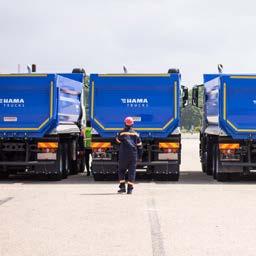


Middle East

Undersea Cable Cuts Cause Internet Disruption
Undersea cable cuts were reported in the Red Sea, affecting Microsoft’s Azure cloud services. The cables along the ocean floor are responsible for transmitting data between continents and provide the essential network for the internet to operate. However, users of Azure experienced delays due to damage to the cables which transmit the internet traffic through the Middle East. The disruption was experienced across several countries, including India and Pakistan, as signals had to be rerouted through other pathways.
Undersea cables can be damaged by a whole range of things, often from dropped anchors, which run along the sea floor and can damage the cables in the process. In the past, some cables were thought to have been deliberately damaged. However, the cause of the damage has not been identified at this time.


Students from Gaza Arrive in the UK
34 students have arrived in the UK ready to take places at universities across the country. For weeks, the evacuation of the student to study has been in doubt as the conflict continues across Gaza. However, this is the first time since the war began that people have been helped to leave Gaza City. The students hold fully funded scholarships and have received support from the UK government for their studies in the UK.
The students were taken to Jordan, where they underwent visa checks before they flew to the UK. 40 more students are expected to join the current 34, but these are awaiting the next round of evacuation from Gaza before they can come to the UK.
Disease Outbreaks in Sudan
Diseases continue to overwhelm hospitals in wartorn Sudan as malaria, typhoid, and dengue fever have led to more deaths across the country. The rainy season has seen thousands of new cases reported, as the weather provides the perfect breeding ground for such diseases. More than 5,000 cases of malaria, typhoid and dengue fever have been reported, along with a dozen deaths in the past month alone.
With the country’s infrastructure damaged, illnesses such as typhoid are being spread more easily through contaminated water and food, whilst mosquitoes are the leading the spread of malaria across the country. Many hospitals have been destroyed in the ongoing war, and the country’s health system is struggling. Plus, with an increasing lack of medical supplies, it is feared that more deaths could be caused by these diseases.

Gatwick Approved for Second Runway
Plans have been approved in London for a second runway at Gatwick Airport, the second busiest airport in the United Kingdom. The new runway is the result of a £2.2billion privately financed project, which would see the current northern runway moved, allowing it to be used regularly as a second key runway for the airport. In addition to the runway development, the project will also extend the size of the terminals.
280,000 flights currently travel through Gatwick Airport every year, and with the introduction of the new runway, this figure could increase to around 389,000 flights by the late 2030s. However, the expansion has been met with sustainability concerns over the impact the new airport will have on the UK’s emissions output.
Cyber Attack Leads to Flight Disruption across Europe
A cyber-attack targeting Colin Aerospace, which works with several airlines around the world, led to significant disruption across several European airports, which affected the electronic checkin and baggage system. Whilst manual check-in operations could still be conducted, this led to widespread delays for flights and thousands of passengers. Affected airports included Brussels Airport, which was forced to utilise manual check-in and boarding.
Another key airport hit was Heathrow, the UK’s largest airport, which utilised additional staff to help in speeding up manual check-in procedures to minimise disruption as much as possible. Most airports are now operating in full capacity once again following updates by Collin Aerospace to resolve the issues.

Dutch Village To Charge Entry Fee to Tourists
Every year, 2.6 million people visit the historic Dutch village of Zaanse Schans to see the windmills and the picturesque landscape that the area has to offer. However, the population of Zaanse Schans is just 100, meaning that the tourism market vastly outweighs the local population. In response to this vast tourism, the village has outlined measures to start charging visitors to enter the village. This will be rolled out from next spring and will cost visitors £15 to enter. This measure is an effort to manage the number of tourists in the region.
However, this entry fee will allow visitors to access things that were previously at an additional price, including entry to the village’s museum and the inside of the windmills. Therefore, if even half of the current visitors pay to enter the village, it could see an annual revenue of around €24.5m. This will be spent on maintenance and new infrastructure to benefit the village. However, some locals have shown concern over the price as it could impact the livelihoods of shops and local businesses if fewer tourists visit the village.


BP South Africa
BP is a well-known name across the global energy market, with projects ranging from upstream exploration and production to downstream energy delivery. Throughout all its operations, BP is dedicated to providing innovative services and product excellence, earning it a reputation as a leading energy provider worldwide. In Africa, BP has spent over a century delivering essential oil and gas exploration, crude oil importation, and refining services. Once refined, these products are supplied as fuel through its retail outlets, ensuring smooth everyday operations. Specifically in South Africa, BP’s operations centre around the petroleum market, where it is now one of the region’s leading petroleum companies, driven by a commitment to deliver energy for today and the future.
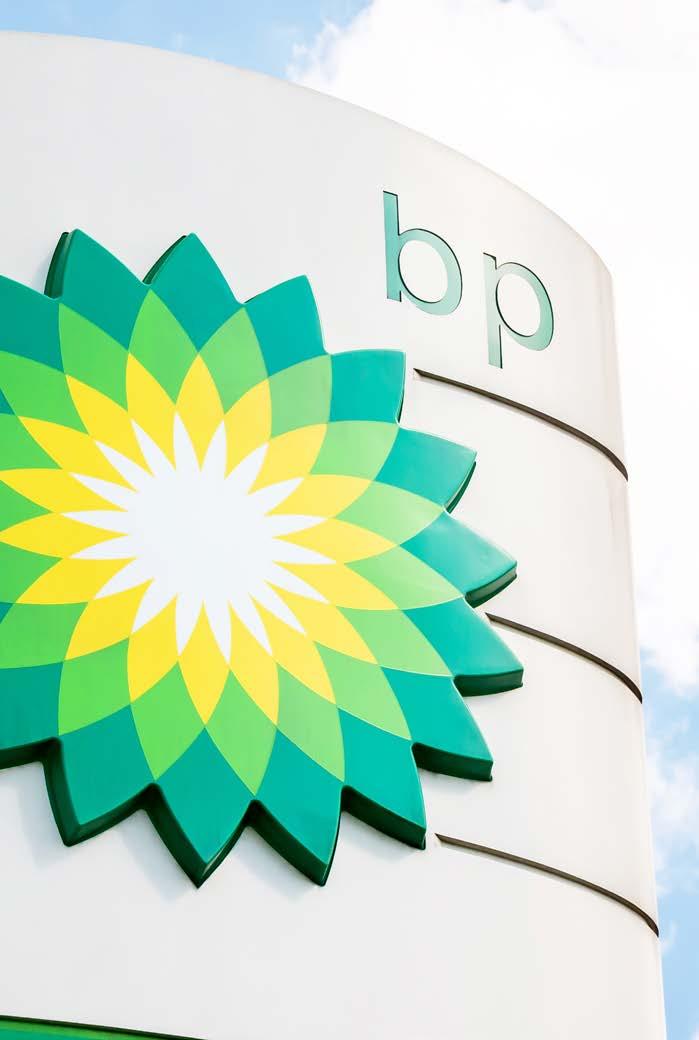
In South Africa, BP operates over 500 branded service stations providing vital fuel and retail products. These stations include companyowned, company-leased, and dealer-owned sites, designed to offer convenient services through BP Express and Pick n Pay Express shops, along with its Wild Bean Cafes. BP also manages six fuel storage terminals: two are fully owned by BP Southern Africa, two are jointly owned in a 50/50 partnership with Sasol, and another is an equal joint venture with Shell. The last fuel storage terminal is owned in equal partnership between Astrong, BP Southern Africa, and Engen. Across South Africa’s downstream sector, BP is focused on providing fuel products for transportation, heating, and lighting, as well as lubricants to keep engines and industries running. The supply of these petrochemicals is crucial to South Africa’s daily operations, and by providing such products, BP continues to support energy access across the country.
Across its service stations, BP delivers its BP Ultimate fuel product, which features the company’s ACTIVE technology. This fuel product is the flagship fuel product under the BP South Africa brand, which focuses on engine performance and has earned it many accolades for its enhanced performance properties. Alongside fuel products, BP has its leading lubricant brand, Castrol, which is the world’s leading manufacturer and distributor of premium lubricating oils and related services to the automotive and industrial customers of South Africa. These products are vital for car manufacturing industries, and so BP supplies a broad range of lubricants designed for a vast range of operating conditions and environments.
In May, BP launched a new programme which would see a significant increase in its presence across South Africa. The programme would see 40 new service stations added to the company’s portfolio, whilst its existing locations would be upgraded to meet the current and future demands of its customers. To facilitate the delivery of these new stations and the logistics needed to do this, BP announced it has partnered with DP World and Makwande Supply & Distribution, who will help BP to outsource specialised logistics functions, in order to improve delivery efficiency and resilience across its locations in both urban and rural areas.
With the expansion of its service station locations, BP is making both its fuel products and its retail stores more accessible for those across the country. Service stations often provide essentials alongside their fuel offerings, which ensures that locals have access to a wide variety of goods, even when traditional shops may be closed. This customer-focused service delivery is further enhanced by BP’s expansion plans, which will also see electric vehicle chargers installed at many of its petrol stations. BP plans to make electric charging more readily available across South Africa, ensuring that customers can recharge or refuel their cars with BP. The electric vehicle industry is a key sector that will shape transportation for the future, with electric vehicles being widely adopted as a sustainable option in line with global emission reduction goals. Therefore, by providing recharging for electric vehicles across more of its locations, BP can remain a leading fuel brand delivering the vital resources and services meeting the demands of its customers every day.
In line with the expansion of its service station with electric vehicle charging points, BP is continuing to expand its retail locations, with many of them now including family-friendly rest areas, readily available Wi-Fi, and a range of retail offerings.
Future Focused Energy

This necessity comes as customers will spend more time at the refuelling stations whilst waiting for their electric vehicles to charge. Therefore, with a more developed retail and rest area, customers are further incentivised to use BP’s electric vehicle charging points as they are designed to suit its customers’ needs. For BP, its integration of electric charging into its service stations in South Africa moves the country towards its wider African strategy to prioritise inclusive growth and investment into key infrastructure that will pioneer the future of sustainable energy development.
Specialises in the manufacture of water cooled copper components for the pyrometallurgical industry across the globe

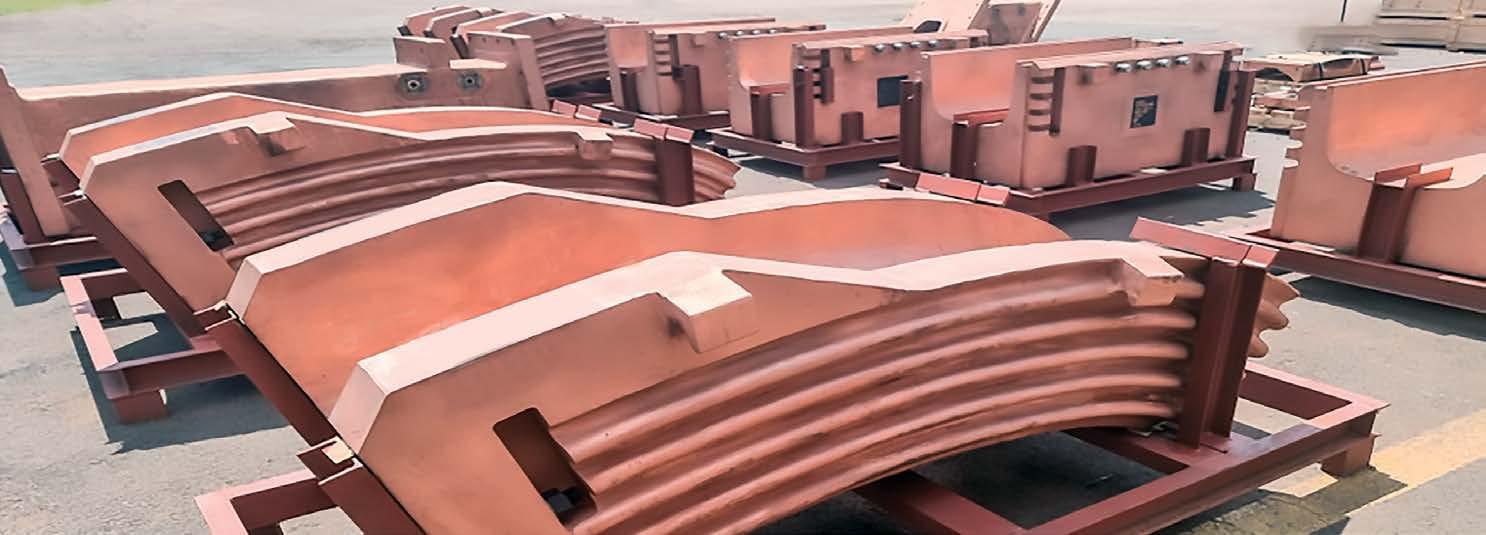
Some of the products and services offered include:
~ Pipe manipulation & coil manufacturing
~ Casting of the full range of CU cooling elements, both with coil circuits and deep hole drilled water passages
~ CNC line, deep hole boring and vertical milling
~ Complete across the spectrum of NDT testing and inspection (X-Ray, UT and thermal imaging testing)
~ Welding capabilities, including CU welding, fabrication welding and hard facing overlay welding
~ Graphite Freezeline Solutions –supply of machines graphite products
~ Graphite tiles, skimmer, tap & mickey blocks
~ NMA, NMD brick, C34 cement, graphite grouting and carbon ramming materials
~ Re-machining of graphite electrodes

BP South Africa
IDV SOUTH AFRICA
Established in 1996, Industrial and Designer Valves Holdings (Pty) Ltd (IDV), products and services are internationally approved and certified. We specialise in mechanical valves suited to the petrochemical industry, including but not limited to ball, gate, check, butterfly, basket & Y-strainers, safety & pressure relief valves as well as spiral wound gaskets.
We are stockists and sole agents for the following brands: FZV, Technical, Burgmann Packings and proudly the new sole agents for all Groth products for the territory. We are proud to be associated with partners that have certifications and approvals for: API 6A, API 6D, API 600, API 607, API 594, API 598, API 526, API 527, API

520, API 545, API Q7, CE/PED, ISO 9001, ISO 14001, ISO/TS 29001, OHSAS 18001, CRN, GOST, SIL, BS1868, NACE, SAGA.
We proudly supply and support clients such as Sasol, Shell, Total Energies, Chevron, Vivo Energy, Engen, NOIC, EasiGas, Botswana Oil, Astron, Vopak, BP and Puma.
With our Head office in Gauteng and supporting offices in Durban and Cape Town, we are ready and dedicated to assist all our clients with their valve requirements from refinery to depots to large new projects. IDV is your complete product & solution provider.
www.idv.co.za
Industrial and Designer Valves (IDV) serves the Petrochem and Bulk Fuel Storage Industry.
We stock, supply and support products related to these industries.
We distribute to all of South Africa and to a number of African countries.
Our products and services are internationally approved and certified.
We are stockists and sole agents for the following brands:
CERTIFICATIONS AND APPROVALS:
API 6A, API 6D, API 600, API 607, API 594, API 598, API 526, API 527, API 520, API 545, API Q1, CE/PED, ISO 9001, ISO 14001, ISO/TS 29001, OHSAS 18001, CRN, GOST, SIL, BS1868, NACE
























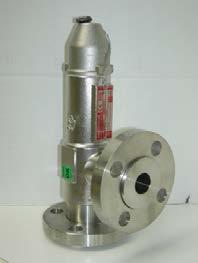




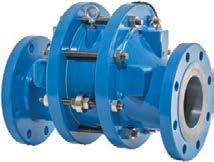
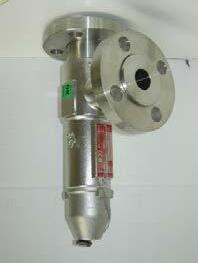
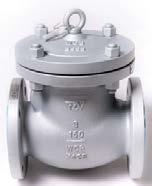






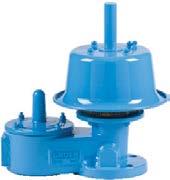




Future Focused Energy
This focus on the future through infrastructural development and sustainable practices has allowed BP to remain a leader in South Africa’s energy sector. In fact, in 2024, BP celebrated 100 years of operation in South Africa, with the celebration focused on ‘Reimaging Energy for the Future’. This goal allowed BP, along with industry leaders, to explore the pivotal themes and challenges facing the energy sector both in South Africa and on a wider scale in order to deliver solutions that meet the needs of today, whilst protecting the world of the future.
In the announcement of the anniversary, Taelo Mojapelo, CEO of BP in South Africa, highlighted that “Today the global and South African energy landscape faces new demand, including the move to a lower carbon world, changing consumer needs, increased competition in fuel retailing, and the imperative to have greater diversity in the workforce. These changes present us with new
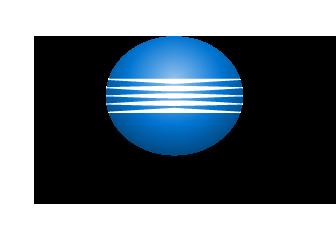


opportunities, and we are responding by prioritising the optimisation of our supply model, focusing on high grading our forecourt and convenience portfolio as well as emphasising diversity, equity and inclusion in everything we do”. Mojapelo’s comments here highlight the vital role BP has long played and will continue to play in developing South Africa’s energy market to protect energy delivery and move towards the infrastructure, as we have seen with the EV charging development, needed for the future of energy development.
Across BP South Africa’s operation, there is a keen focus on delivering fuels and lubricants via its retail locations that keep daily life running smoothly, whilst working towards the future of energy development. For South Africa, the development of infrastructure is fundamental to BP’s role across the downstream petroleum market. From its delivery of new locations and the expansion of its existing ones, BP is working to expand its role across the country and deliver its vital fuel, lubricants and retail products to support customers across South Africa every day.


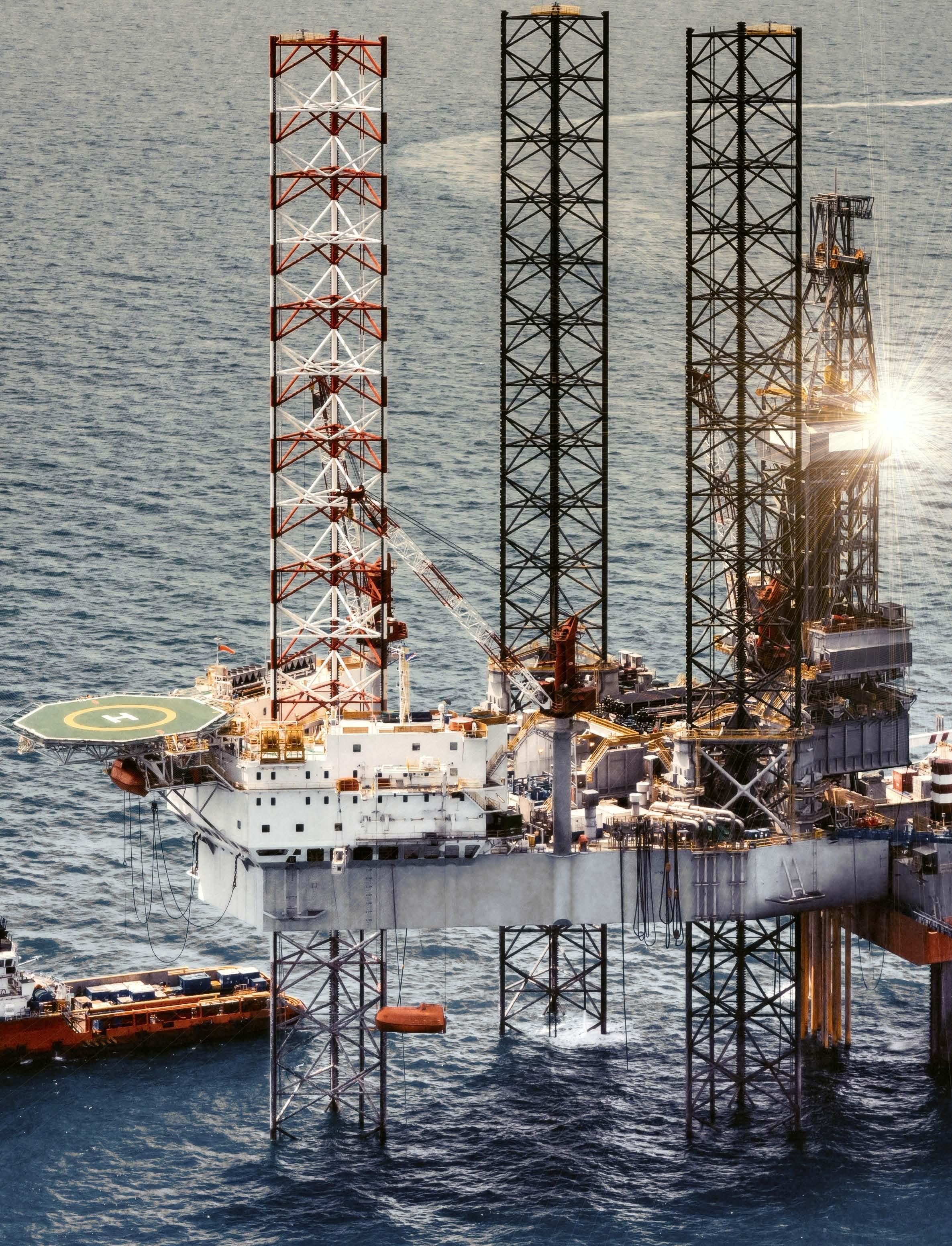

TotalEnergies E&P
TotalEnergies has long played a valuable role across the African energy sector, with operations spanning the whole value chain of oil and gas development. TotalEnergies has been serving the Nigerian hydrocarbon sector for over a century, working alongside the Government of Nigeria, as well as various private companies and associations across the country. With a wealth of oil deposits across the country, Nigeria today is one of the largest oil producers in Africa and so contributes significantly to TotalEnergies’ total hydrocarbon production. Today, the bulk of TotalEnergies’ operations centres around upstream exploration and production, through its subsidiary TotalEnergies EP Nigeria Limited (TEPNG). Across TEPNG’s operations, the company is committed to delivering vital oil resources while working with local communities to deliver socioeconomic development for the country.

Since 1962, TEPNG has been leading the exploration and production of Nigeria’s upstream sector. Working alongside the Nigerian Government, the Nigerian National Petroleum Corporation (NNPC) and several indigenous companies, TEPNG is set on developing the country’s hydrocarbon industry. Today, TEPNG holds a 40% interest in the NNPC/TEPNG Joint Venture, which has been producing oil and natural gas from multiple onshore and shallow water concessions across the country. Many of these ventures span the West Delta Basin, a prolific hydrocarbon province, delivering significant oil and gas resources for the country.
One of the most significant oil fields offshore Nigeria is the Egina field (OML 130), which was first discovered in 2003. The oil field, located 150km off the Nigerian coast, is located at depths of 1,400-1,700m and is owned in partnership between TEPNG as the operator, and NNPC, CNNOC, SAPETRO and Prime 130. The Egina field encompasses 44 subsea wells, which are connected to a Floating Production Storage and Offloading (FPSO) vessel, which has the capacity to hold up to 2.3 million barrels of oil. The FPSO is one of the largest of its type built by TotalEnergies and helps the field to produce 200,000 barrels of oil per day, accounting for close to 10% of Nigeria’s total oil production.
Over the years, the Egina field has seen vital infrastructural developments under TEPNG to help it continue to meet oil and gas demands. However, one of the most exciting developments for Egina was announced in 2019 when the oil field achieved net-zero routine flaring across the development. The field was able to achieve this thanks to the gas compression system installed at the field, which allowed it to become the first oil project in Nigeria to reach this milestone of zero routine flaring. This significant step highlights TotalEnergies’ commitment to cutting emissions to deliver a more sustainable energy sector. In fact, Nigeria was one of the first countries where TotalEnergies led projects to detect and measure the methane emissions of its oil and gas facilities, utilising its cutting-edge AUSEA technology. This technology, made available through NNPC through a corporation agreement in 2023, ensures that TEPNG can routinely monitor the emissions from its projects to help mitigate and limit the impact of its operations on global warming.



...powered by innovation and experience.
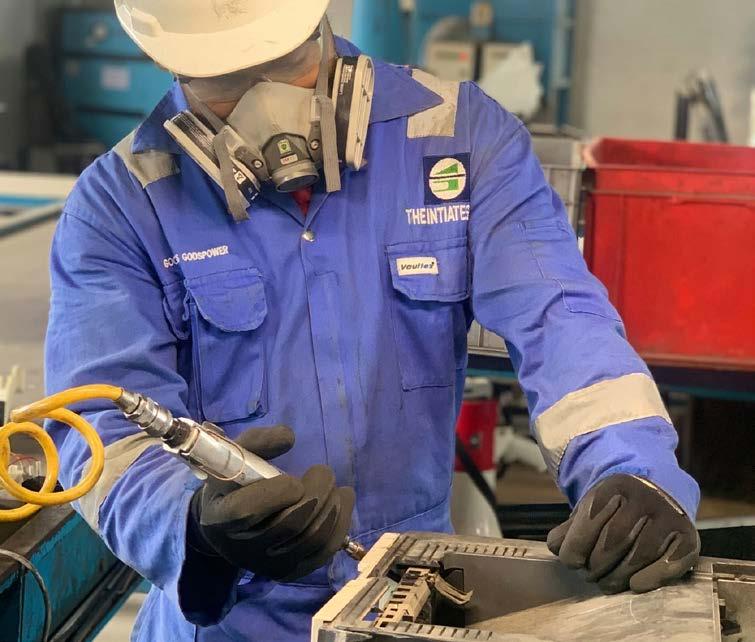
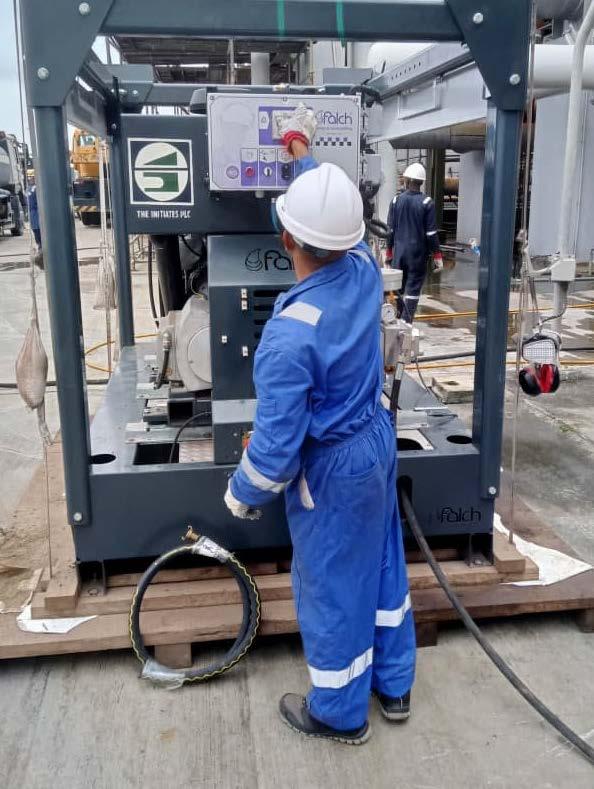
/the-initiates-plc-360142276
/Theinitiatesplc
/theinitiatesplc?igsh=MWI0amQwNTh4eWJ5dg== /theinitiatesplc/ /channel/UCsfrpwo82ON4SgZtr5wBsrg/

Redefining Industrial Cleaning and Waste Management!
From Nigeria to Uganda, TIG sets the standard in professional, innovative, and technology-driven solutions. Proudly listed on the Nigerian Stock Exchange and certified to global standards (ISO 14001, 9001 & 45001), we deliver tailor-made services that keep businesses safe, sustainable, and future-ready.
With a multidisciplinary workforce and a passion for excellence, TIG is your trusted partner in cleaning smarter, managing waste responsibly, and protecting what matters most. The Initiates Group – Innovation at work. Safety at heart.
We offer comprehensive range of services to meet the diverse needs of the waste management and industrial cleaning sectors.
INDUSTRIAL CLEANERS
• Tank & FPSO sludge evacuation
• Tank and Vessel Cleaning
• Boiler and Heat Exchanger (tube and fin) cleaning
• Jetting and Surface preparation
• Pipe and Drainage Cleaning
WASTE MANAGERS.
• Hazardous waste incineration
• Asbestos decontamination/ removal and disposal
• Wastewater (bio & industrial) Treatment
• E-Waste Processing
• Drill cuttings, Oily sludge & contaminated soil treatment (TDU)
: wms@initiatesgroup.com / ics@initiatesgroup.com : +2349131075922 / +2342084669510
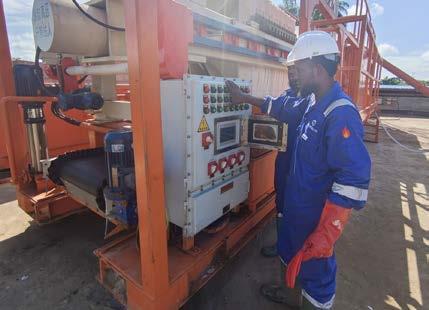



A key example of TotalEnergies’ focus on delivering projects with low emissions was seen when TEPNG announced that it had begun production at the Akpo West site within the PML2 license. Akpo was the first deep offshore project operated by TEPNG in Nigeria, and when it began production in 2009, it had a production plateau of 180,000 barrels of condensate per day with a storage capacity of 2 million barrels of stabilised liquid hydrocarbon. However, in 2024, new developments began across the Akpo field, with the Akpo West deposit being tied back to the existing Akpo FPSO facility. The integration of Akpo West into the existing facilities added 14,000 barrels of condensate production per day and is expected to see up to 4 million cubic metres of gas per day by 2028. By leveraging the development with the existing infrastructure, TEPNG is able to keep costs low and, in the process, limit its emissions. This development highlights that by working with CNOOC (45% interest), Sapetro (15%), Prime 130 (16%) and the Nigerian National Petroleum Company Ltd on the PML2 project, TotalEnergies (24%) is utilising the expertise and experience of the partnership to bring key condensate production to Nigeria, whilst working towards its strategy to deliver low emission and low cost operations that can deliver significant gas potential to the region in the process.
Another key license for TEPNG is the OML 58 license, a mature onshore field located in the Niger Delta. The field has a production capacity of 60,000 barrels of oil per day. TEPNG operates the OML58 onshore licence with a 40% interest and is developed under the Ubeta Gas Development in partnership with NNPC, who hold a 60% interest. Estimated to be a $550 million investment, the development is set to begin production in 2027 and is designed to deliver a production lifespan of 20 years. The Ubeta Gas Field development project will
The Initiates Group
At The Initiates Group (TIG), we are more than just a service provider—we are pioneers in industrial cleaning and waste management across Nigeria and Uganda. Powered by innovation and backed by years of experience, we deliver worldclass solutions that keep industries safe, efficient, and environmentally responsible. From hazardous waste incineration and e-waste processing to wastewater treatment and asbestos management, TIG leads the way in providing tailored waste management services that meet global standards. Our specialized technologies, including advanced thermal desorption units, ensure we treat contaminated materials with precision and care, protecting both people and the planet.
The Initiates Group also excel in industrial cleaning services designed to keep operations running smoothly. Whether it’s sludge evacuation from tanks and FPSOs, vessel cleaning, jetting, or pipe maintenance, our multidisciplinary workforce tackles the toughest jobs with professionalism and expertise. Every project reflects our commitment to safety, quality, and innovation.
At TIG, we don’t just clean and manage waste— we create sustainable solutions. Guided by strong health, safety, environmental, and quality frameworks, alongside a robust local content policy, we work to build value for clients while supporting the communities where we operate. https://www.initiatesgroup.com
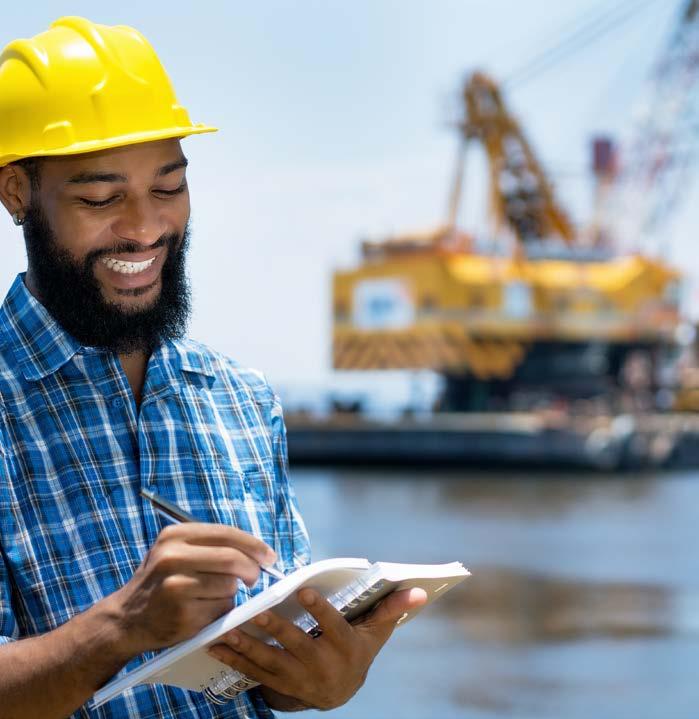
TotalEnergies E&P Nigeria
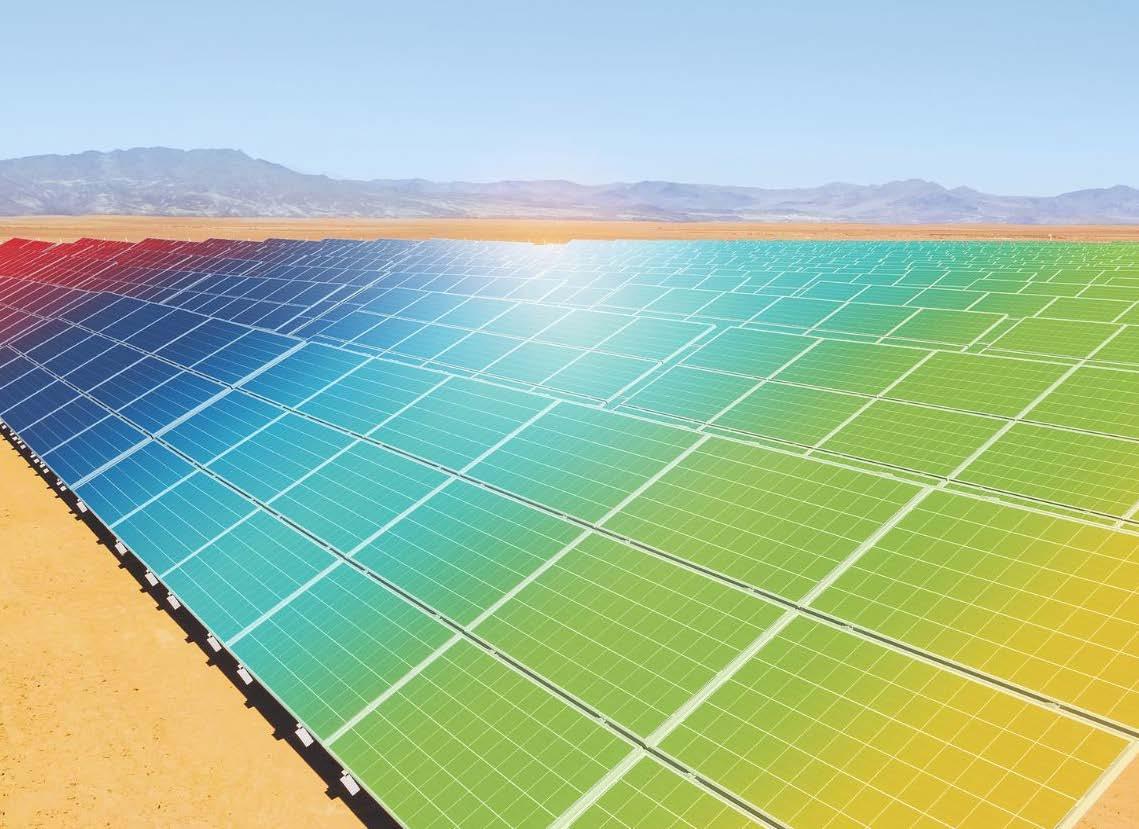
see engineering design, construction, drilling, and commissioning of a six-well gas production cluster; the Ubeta Production Cluster (UPC). The project will deliver a stable gas supply for the operations of Nigeria Liquefied Natural Gas, a liquefied natural gas facility situated on Bonny Island, which is undergoing an expansion to increase its capacity from 22 to 30 million tonnes per annum. The drilling campaign is expected to span 1.5 years and is expected to begin operations in the second quarter of 2026, with a single rig deployed to develop the 6 wells.
As TotalEnergies expands its portfolio across Nigeria, the company announced in September that it had been awarded Two Offshore Exploration Permits following the 2024 Exploration Round, as organised by the Nigerian Upstream Petroleum Regulatory Commission. TotalEnergies will hold an 80% ownership of the PPL 200 and PPL2001 exploration licences, in partnership with South Atlantic Petroleum, which will hold a 20% ownership. Development across the licenses, which sit within the West Delta Basin, includes a drilling program for one exploration well. Announcing the awarding of the permit, Kevin McLachlan, Senior VicePresident of Exploration at TotalEnergies, outlines that “TotalEnergies is honoured to be the first international company to be awarded exploration licences in a bid round in Nigeria in more than
a decade, marking a new milestone in our longterm partnership with the country”. McLachlan continues, “These promising block captures are fully aligned with our strategy of strengthening our Exploration portfolio with drill-ready and highimpact prospects, that have the potential for lowcost and low-emissions development from new discoveries in our core areas of expertise”.
McLachlan’s comments highlight the valuable and future-focused developments that TotalEnergies, and especially TEPNG, is all about. TPENG is committed to delivering vital energy resources in a low-cost and low-emissions way that will enhance Nigeria’s energy sector and leverage its expertise in the offshore sector to deliver significant benefits for the country in the process. By doing so, TEPNG can strengthen its role across Nigeria’s energy sector, and in the process highlighting its role as a leading energy company operating across Africa.
This announcement follows TotalEnergies’ divestment of its non-operated assets in the Bonga Field in May 2025. The agreement outlines that TotalEnergies would sell its 12.5% non-operated interest in the field to Shell Nigeria Exploration and Production Company Ltd. (SNEPCo) for $510 million. The OML 118 license is currently operated with a 55% interest, in partnership with Esso Exploration and Production Nigeria (20%), TEPNG (12.5%) and Nigerian
Agip Exploration (12.5%). The Bonga Field, located within the Niger Delta, began production in 2005 and has seen significant development within the Bonga North field in 2024. The agreement for TotalEnergies to divest its non-operated assets in the field was commented on by Nicolas Terras, President of Exploration and Production at TotalEnergies, who said, “TotalEnergies continues to actively highgrade its Upstream portfolio, to focus on assets with low technical costs and low emissions, and to lower its cash breakeven”. Terras continues, “In Nigeria, the Company is focused on its operated gas and offshore oil assets and is currently progressing the development of the Ubeta project, designed to sustain gas supply to Nigeria LNG”. Terras’ comments highlight TotalEnergies’ vital move to solidify its place within Nigeria’s energy sector by focusing on its operated assets and sustainable energy delivery options for the future of the country’s energy development.

Across TEPNG’s operation in Nigeria, there is a keen focus on developing vital oil and gas deposits that can develop alongside existing infrastructure to keep costs low. However, one of the key aspects of all of its developments is delivering its projects with low emissions in mind, to protect the sector both now and for the future. With the recent expansion of TotalEnergies’ role across Nigeria, the company continues to solidify its place as a leader in Nigeria’s energy sector, set on delivering vital hydrocarbons for the future, whilst protecting the people and planet of today.



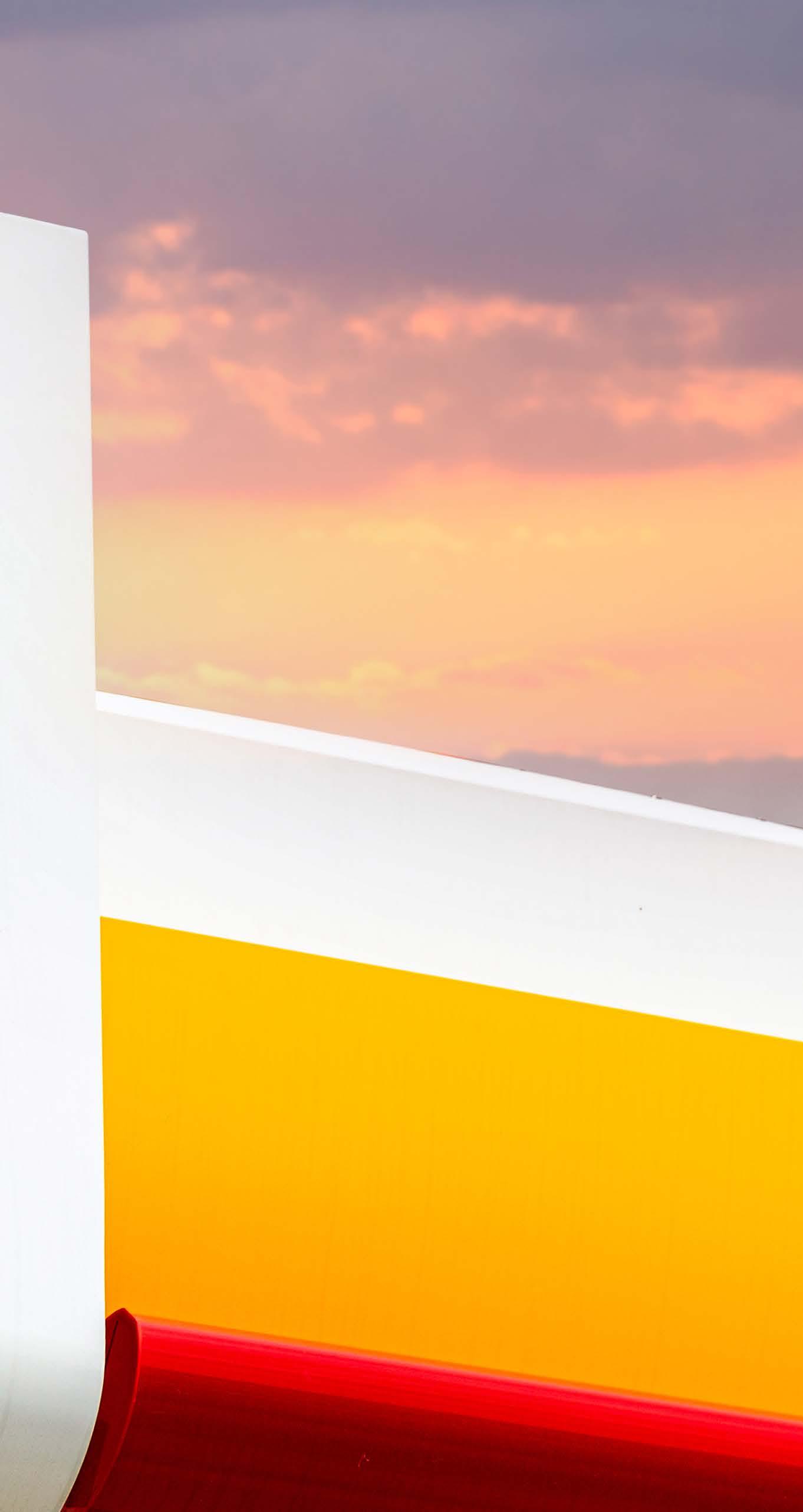
Shell Nigeria Exploration and Production Company
For more than 50 years, Shell has been a key player within the energy sector of Nigeria, delivering projects and operations that span all aspects of the oil and gas sector, from exploration and production all the way to downstream delivery through its retail locations. Across Nigeria, almost 90% of the country’s export income and 75% of the country’s overall government revenue come from the oil and gas sector. Therefore, with such a significant portion of the country’s economy focused on the oil and gas sector, Shell is primed to deliver significant energy resources for the country to sustain its position as a leading energy producer in Africa.

Shell is present in more than 70 countries across the globe, where it delivers innovative oil and gas developments towards building a more sustainable energy future. The company aims to meet the energy needs of the planet today in a manner that prioritises the economic, social and environmental impact of energy generation for many years to come. One of the central developments for the country in recent years has been in the company’s offshore exploration and production sector. Under this brand, Shell Nigeria Exploration and Production Company (SNEPCo), a subsidiary of Shell Plc, is focused on delivering exploration and production projects that access the vital deposits at Nigeria’s disposal for the benefit of the country and its communities for many years to come.



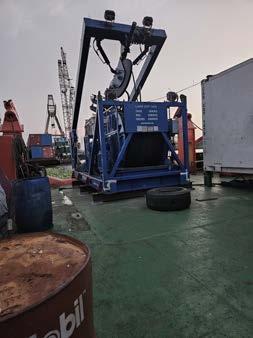
The bulk of SNEPCo’s operation in Nigeria centres around the Bonga and Erha fields. The Bonga field is operated by SNEPCo in partnership with Esso Exploration and Production Nigeria Ltd. (20%), Nigerian Agip Exploration Ltd. (12.5%) and TotalEnergies EP Nigeria Ltd. (12.5%), who work on behalf of the Nigerian National Petroleum Company Limited (NNPC). The deep-water development in located in OML 188, at water depths of more than 1000 metres. Production began at the Bonga Floating Production, Storage and Offloading (FPSO) facility in 2005, which Shell operates with a 55% interest, and has a capacity to deliver 225,000 barrels of oil per day.


SNEPCo has continued its expansion of the country’s deepwater developments with the establishment of additional deepwater developments in the Bonga field. At the end of 2024, SNEPCo announced it had reached a final investment decision on Bonga North, a deep-water project location offshore Nigeria. Bonga North will comprise a subsea tie-back to the existing Bonga FPSO. The project will involve the drilling of up to 16 wells: 8 for production and 8 for water injection. In addition to the wells, the project will see modifications made to the existing Bonga Main FPSO and the installation of new subsea hardware tied back to the FPSO. Once completed, which is planned for the end of the next decade, the project is expected to sustain oil and gas production at the Bonga facility. At present, Bonga North has an estimated recoverable
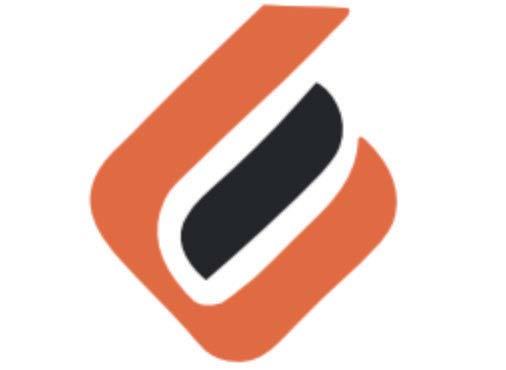
Elshcon Nigeria Limited has since 1990 been the go to ISO 9001:2015 ‑ certified partner for Integrated Maritime Logistics, Steel Fabrication and Construction company servicing both the energy and non‑oil sectors of the economy.
WE DELIVER WITHOUT COMPROMISE
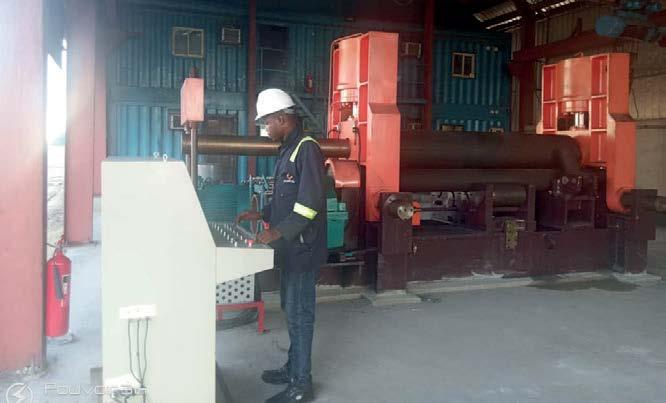
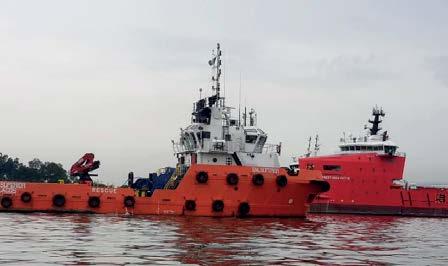
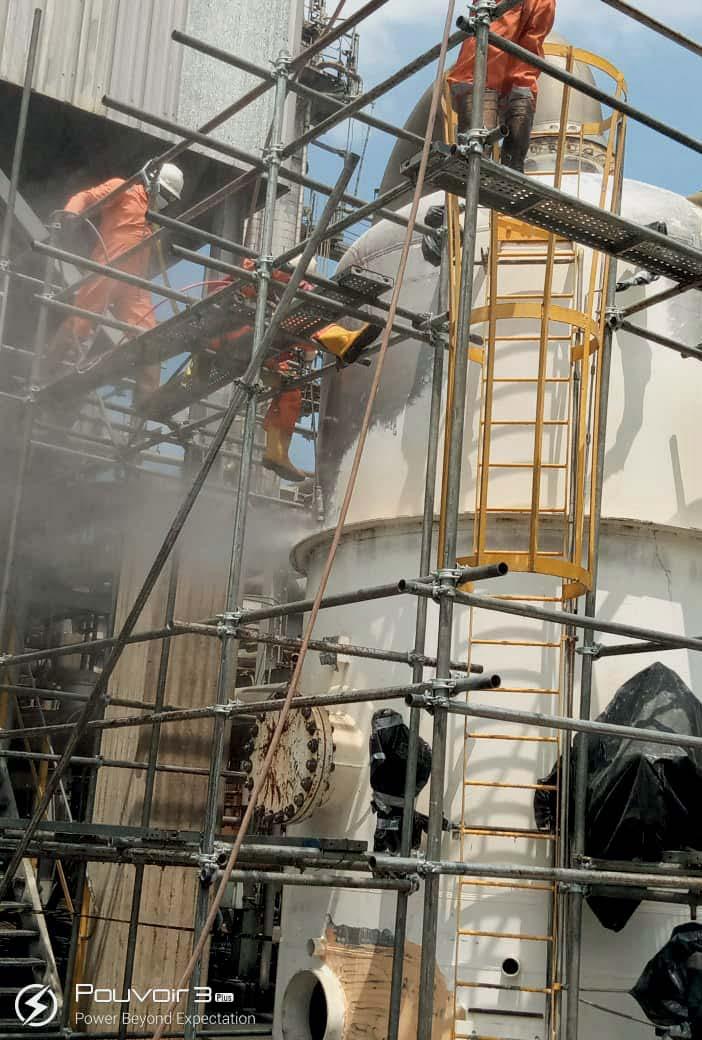
OUR SERVICES INCLUDE:
• Steel Fabrications/Construction & Maintenance Facilities & Pipelines Solutions
• Marine Solutions; Inland Marine Vessels and Machineries/Equipment
• Tugboats, Barges & House Boats Charter. • Machineries & Equipment Supply
• Offshore Marine Vessels: Offshore Barges, AHTS, PSVs, LHT & Security Vessels, Utility Vessels Charter, etc. Marine Logistics & Offshore Support
• Supply Base Solutions • Lifting Solutions – Cranes & Forklifts
• Ship Building, Ship Repairs & Dry docking Solutions, etc.
• Anchors, Chains/Shackles, Deck and Fendering Solutions
CORPORATE OFFICE: Deborah Lawson House Plot F6 Abacha Road, GRA, Phase III, Port Harcourt, Rivers State, Nigeria.
FABRICATION / SUPPLY BASES: 11, Trans Woji Road & #7 Elshcon Road, off #3 Trans Woji Road, Trans Amadi Industrial Layout, Port Harcourt, Rivers State, Nigeria.
LAGOS OFFICE: 33 Kofo Abayomi Street, Victoria Island, Victoria Island, Lagos State, Nigeria.




Navigating challenges. Delivering solutions.
Marine Derivatives Limited is your trusted partner in Nigeria’s marine and oil & gas sectors. We deliver reliable offshore support, onshore logistics, warehousing, and ship chandlery services—helping clients run smooth, efficient operations. With a skilled team, local expertise, and global standards, we handle the details so you can focus on success.
Our Services include:
• General Offshore Services
• Marine Equipment and Support Services
• Cargo handling and Survey Services
• Marine Vessels Services
• Wrecks and Derelicts Removal.
OUR CLIENTS INCLUDE: SHELL NIGERIA, SEPLAT, CHEVRON, NOTORE, NIPEX, DUN & BRADSTREET, NCDMB, NIGERIAN PORTS AUTHORITY ETC.
Whatever the scope of your project, our experienced team is equipped to offer professional, end-to-end support that enhances productivity, ensures safety, and drives sustainable growth for your business.
Powering efficiency across land and sea.

www.marinederivatives.com
SCAN HERE to view our website >
Delivering Deep Water Development

Marine Derivatives Limited
Salman Braimah is the CEO of Marine Derivatives Limited.A seasoned legal practitioner with extensive experience in corporate and commercial law practice”. He has successfully steered the company’s growth in Nigeria’s marine and oil & gas sectors.
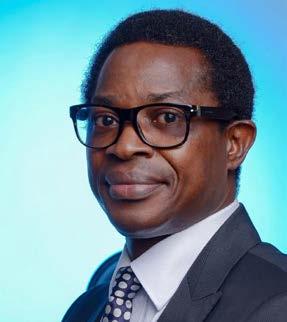
Under his leadership, Marine Derivatives has achieved notable milestones, including the Goal Zero Operational Excellence Award at the SCiN Leaders
resource volume of more than 300 million barrels of oil equivalent (boe) and will hit a peak production of 110,000 barrels of oil per day.
SNEPCo announced in May 2025 that it was increasing its interest in Nigeria’s deep-water Bonga field. In an agreement with TotalEnergies EP Nigeria Limited, SNEPCo would acquire TotalEnergies’ 12.5% stake in the OML 118 Product Sharing Contract (OML 118 PSC) mining lease offshore Nigeria that includes the Bonga field. Once the transaction is completed, Shell’s interest in the OML 118 PSC will rise from 55% to 67.5%. In the announcement outlining the agreement between TotalEnergies EP Nigeria and SNEPCo, Peter Costello, the President of Shell’s Upstream division, outlined that “Following our final investment decision on Bonga North last year, this acquisition brings another significant investment in Nigeria deep-water that contributes to sustained liquids production and growth in our Upstream portfolio. Costello’s comment highlights how vital the acquisition of more of the Bonga development is to help Shell enhance its role among Nigeria’s deep-water development sector, and in the process, position the country as a key hub for energy development. Whilst the transaction
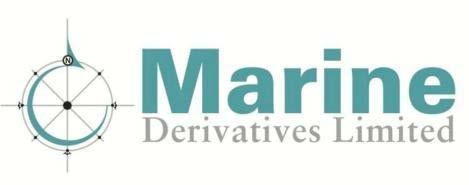
and Contractor CEO Conference (8 August 2025). The company also celebrated four years of zero incidents on the Bonga FPSO, safely executing over 11,000 lifts annually with an average of 40,000 tonnes handled. In just over a year, Marine Derivatives expanded its asset base with the addition of a tug boat and an FSIV, strengthening its offshore support capabilities.
From offshore support services to ancillary marine services, we deliver end-to-end operational support —that prioritise safety, efficiency and reliable delivery. info@marinederivatives.com www.marinederivatives.com.
is subject to regulatory approvals and other closing conditions, the acquisition is expected to be completed before the end of 2025.
The Bonga developments add to SNEPCo’s existing deepwater development, which encompasses the Erha field and the Erha North satellite fields. These fields, located roughly 97km offshore Nigeria at depths ranging between 1000m and 1200m, were the first deepwater offshore field development for Nigeria. The OML 133 Contract Areas containing the Erha Development is operated by Esso Exploration and Production Nigeria (EEPNL), who hold a 56.25% participating interest, with SNEPCo holding the remaining 43.7% share.
The development encompasses three drill centres, comprising 30 subsea wells which are tied back to the Erha FPSO vessel. Across the Erha fields, it was estimated that the field held a combined recoverable oil reserve of 500 million barrels. Oil produced from the fields is stored in the FPSO and conveyed through a floating hose string to offloading tankers moored to a catenary anchor leg mooring (CALM) offloading buoy, which is located 1.85km away from the starboard quarter of the FPSO. The spread-moored Erha FPSO has a
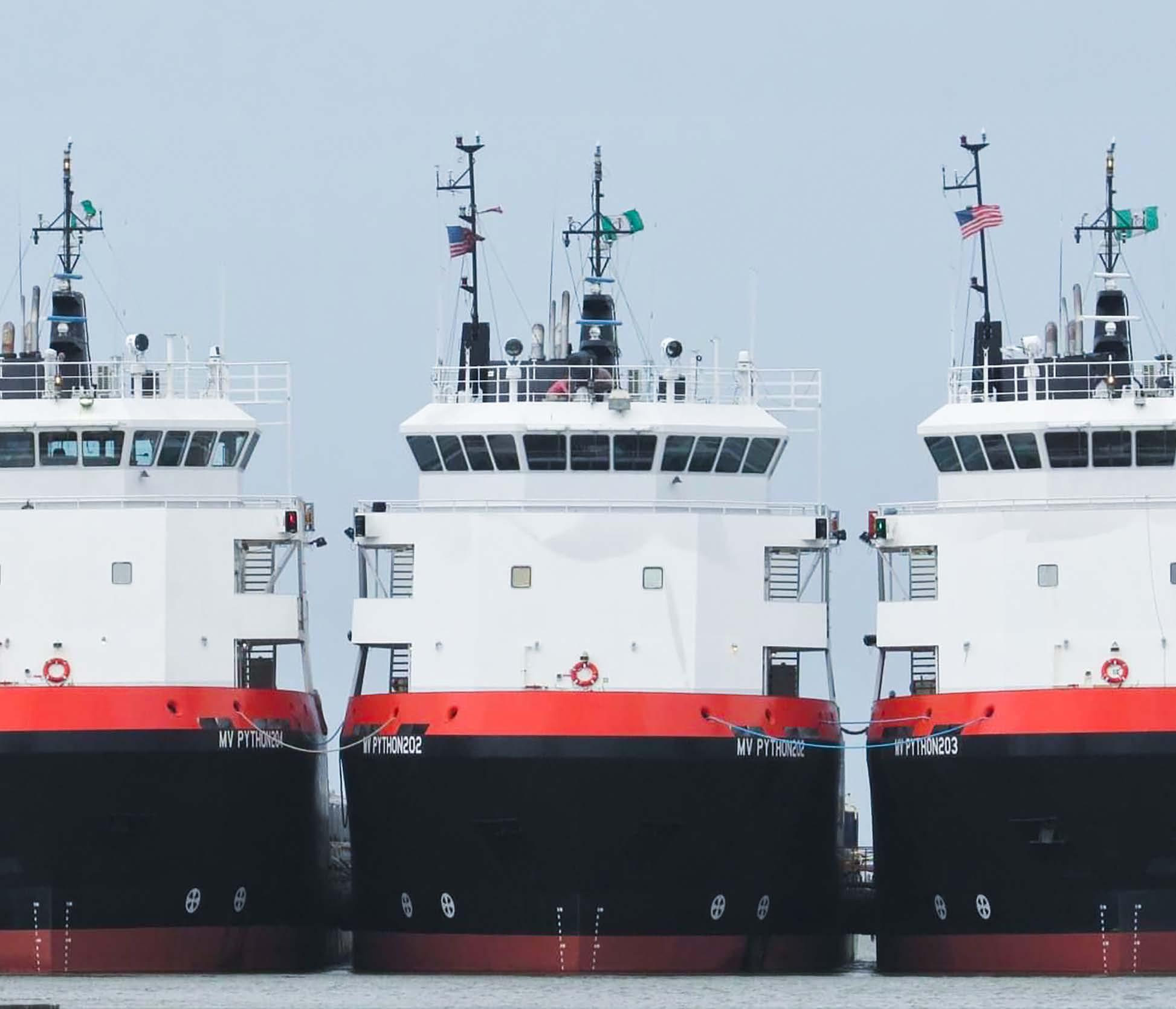

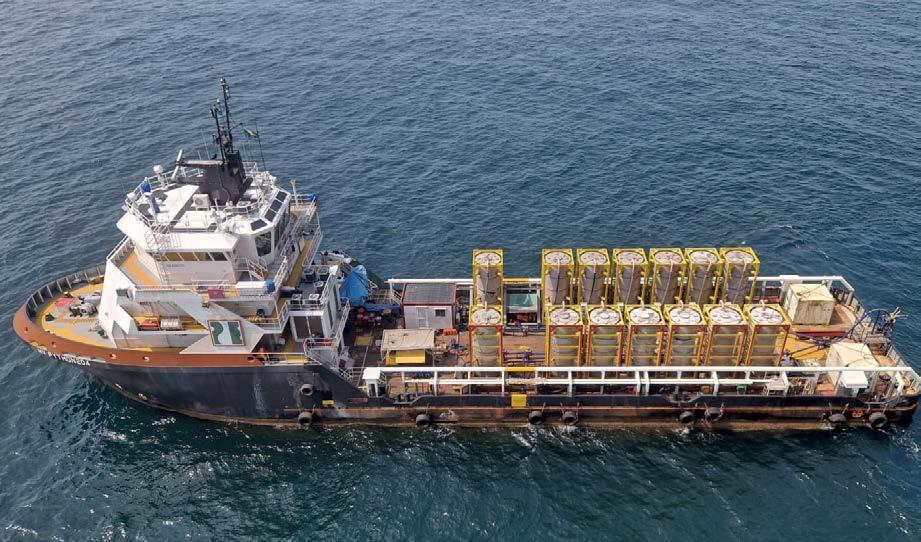



REDEFINING MARINE SERVICES ACROSS THE CONTINENT
For over four decades, Python Engineering Company Ltd. has set the standard in West Africa’s marine sector. Operating from its expansive 9-acre marine base in Warri, Nigeria, Python Engineering offers a full suite of marine services—from vessel construction and dry-docking to steel fabrication and offshore support.
Boasting one of Africa’s most diverse and modern fleets, Python’s vessels are built to exacting European & US standards and are tailored for the demanding conditions of both inland and offshore operations.
OUR SERVICES INCLUDE
MARINE SERVICES
From the maintenance of marine vessels, barges and tugboats in her shipyard at 47 Enerhen road, Warri, in the early 90s, PECL has acquired a vast experience in shipyard services and then progressed to the construction of different marine vessels, such as houseboats, ramp barges, flat top barges, fuel barges, water barges, dredgers, pontoons, offshore and onshore Port A Cabins and even tugboats. PECL provides wide range of offshore support services in the oil and gas sector from the logistics and transportations to security patrol services to supporting rigs in their daily drilling operations through provision of various types of offshore vessels
CIVIL & CONSTRUCTION SERVICES
Our Civil design and construction team has executed several projects starting from residential projects, roads & infrastructure, helipads and runways, office complex buildings, to integrated projects ( as Field logistics bases and plant buildings)
FABRICATION & ERECTION OF CAMPS
Python Engineering Company Ltd has combined its expertise both in marine & civil services and has designed, fabricated, installed and executed several camps both on land and on offshore barges and locations by construction of accommodation units, office units, kitchen and messing units, recreational units, self-contained toilet units and technical units.
FACILITIES MANAGEMENT & MAINTENANCE SERVICES
Python Engineering Company Limited is a leading Facilities Management & Maintenance Services Company; since incorporation PECL was & still rendering her services successfully to the Major Oil & Gas Companies with the highest safety standards.
Whether it’s accommodation barges, tugboats, or offshore logistics vessels. Python ensures every asset delivers comfort, safety, and efficiency.
Trusted by leading IOCs, energy and infrastructure firms, Python Engineering is more than a marine services provider—it’s a strategic partner powering progress across the continent.
Partner with Python Engineering for reliable, stateof-the-art marine services tailored to your project’s needs. Explore our capabilities and discover how we can support your operations.


Shell Nigeria Exploration and Production Company


Your Partner in Safety.
Keeping Lifeboats Operational, Safe & Compliant for 50+ years

For over 50 years, Survival Systems International (SSI) Africa has been a trusted leader in lifeboat safety, offering comprehensive services including multi-brand lifeboat inspections, maintenance, and repairs. Our patented Triple5LX hook system and ISO-compliant practices ensure your crew’s safety and compliance with international standards.
Services include: Maintenance & Inspections • Repairs & Refurbishments
• Load Testing • Hire Equipment • Life Rafts
Ensure your lifeboats are always operational and compliant. Partner with SSI Africa for unmatched safety and reliability.
T: +234(0)8106687469
richard.omokri@ssiwa.com.ng survivalsystemsinternational.com

designed storage capacity of 2.2 million barrels of crude oil, and its design oil processing capacity is 210,000 barrels per day.
With the initial development of Erha marking the first of its kind in Nigeria, the development of Phase Two of the Erha development began. The Erha North Phase Two development project extended the existing Erha North Subsea system and infrastructure, including the installation of associated subsea facilities, the development of a new drilling centre, and the modification to the existing FPSO unit. With the completion of the project in 2015, the oil capacity of the Erha field was expanded from roughly 65,000 barrels of oil per day to around 90,000 barrels of oil per day. Thus, the Erha fields have long played a valuable role in Nigeria’s deepwater exploration developments.
These offshore deepwater projects have been vital to the social and economic development of Nigeria, with the developments delivering muchneeded employment, training and business opportunities for local people. In fact, the Bonga Field developments have helped establish the first generation of Nigeria’s oil and gas engineers with experience in deep water development. In the process, the development of Bonga, Shell will lead

LOOKING FOR EXPERT AUTOMATION & CONTROL SOLUTIONS?
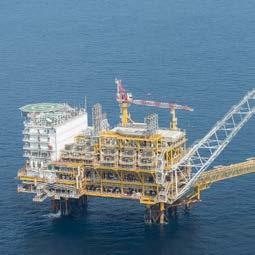

BQub Engineering Services Ltd. has provided top notch Automation Solutions to clients in diverse industries for over two decades since it’s inception.
BQub Engineering Services Ltd. delivers top-tier engineering services in Industrial & Process Automation, Instrumentation, Power Electronics, and ICT.

Key Offerings and Commitments:
• Control system design & commissioning
• Skilled support for turbines, compressors & treatment plants
• System upgrades & multi-vendor integration
• Supply of panels, instruments & software
• On-site support & consultancy services
Trusted. Experienced. Reliable. Partner with BQub – Your One-stop Solution in Automation!
Contact us today!
Tel: +234 9023007613, +234 8070809011
Email: Inquiry@bqubservices.com
Web. www.BQubservices.com
its integrated gas and upstream business to drive cash generation for Nigeria for many years to come.
As we have seen across SNEPCo’s operations, the development of Nigeria’s deepwater sector remains a vital industry delivering oil and gas across the country. From the initial developments across the Erha Fields, to the more recent developments on the Bonga Fields, SNEPCo are committed to delivering valuable resources for the people of Nigeria, whilst working to develop the country’s oil delivery infrastructure for the future. With its role across Nigeria’s deep water developing continuing to expand with its greater interest in the OML 188 contract area, we look forward to seeing how SNEPCo will continue to enhance the country’s energy delivery both now and for the future.


Strategic Business Units (SBU)

ENGINEERING


CONSTRUCTION & MAINTENANCE

Process Design
HAZOP/SIL Review
Mechanical Design/GADs
Structural Design/3D Modelling
Piping Design
Instrumentation Design
Shop fabrication (Steel & Copper Nickel welding)
Blasting, painting, installation, construction, and commissioning for onshore and offshore operations
Facility upgrades, modifications, and operational maintenance




ACCREDITATIONS / CERTIFICATIONS
Our Mangement System Conforms To The Following:
Accredited to ISO/IEC 17025:2017
Certified to ISO 9001:2015
Certified to ISO 14001:2015
Certified to ISO 45001:2018

INSTRUMENTATION & CONTROLS

Instrumentation
Control Safety Systems (DCS and ICSS)
Energy and Transport System (ETS)
Process Systems and Solutions (PSS)
Reliability Solution (RS)

TESTING & CALIBRATION LABORATORY
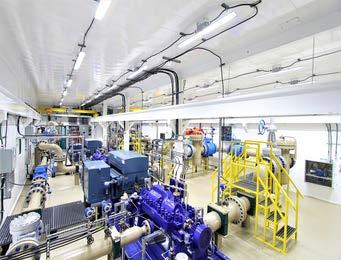
ASSET INTEGRITY MANAGEMENT


Flow Metering Service
Instrumentation & Laboratory
Calibration Services Process Automation Services

Longevity and reliability of critical assets
State-of-the-art technologies
Sustainable Industry-approved Methodologies









Corrosion control and mitigation Leak detection and repair. Production Operation & Lube oil flushing Flange Management Services Torque & Hot Bolting Services

Corporate Office
3A Sule Onabiyi Street, off Christ Avenue, off Admiralty Road, Lekki Phase 1, Lagos State enquiries@eatlng.com +234 (0) 901-033-6048
Project Office No. 5 Apagodo Street, off Ada George Road, Port Harcourt, Rivers State, Nigeria
enquiries@eatlng.com +234 (0) 901-033-6050
Operational Headquarters

Ikot Udoma - Ataidung Road, Eket, Akwa Ibom State, Nigeria.
enquiries@eatlng com +234 (0) 810-337-5124 USA Office 15915 Katy Freeway Houston, Texas 77094, USA
info-us@eatlng.com +1 (404) 721-7052
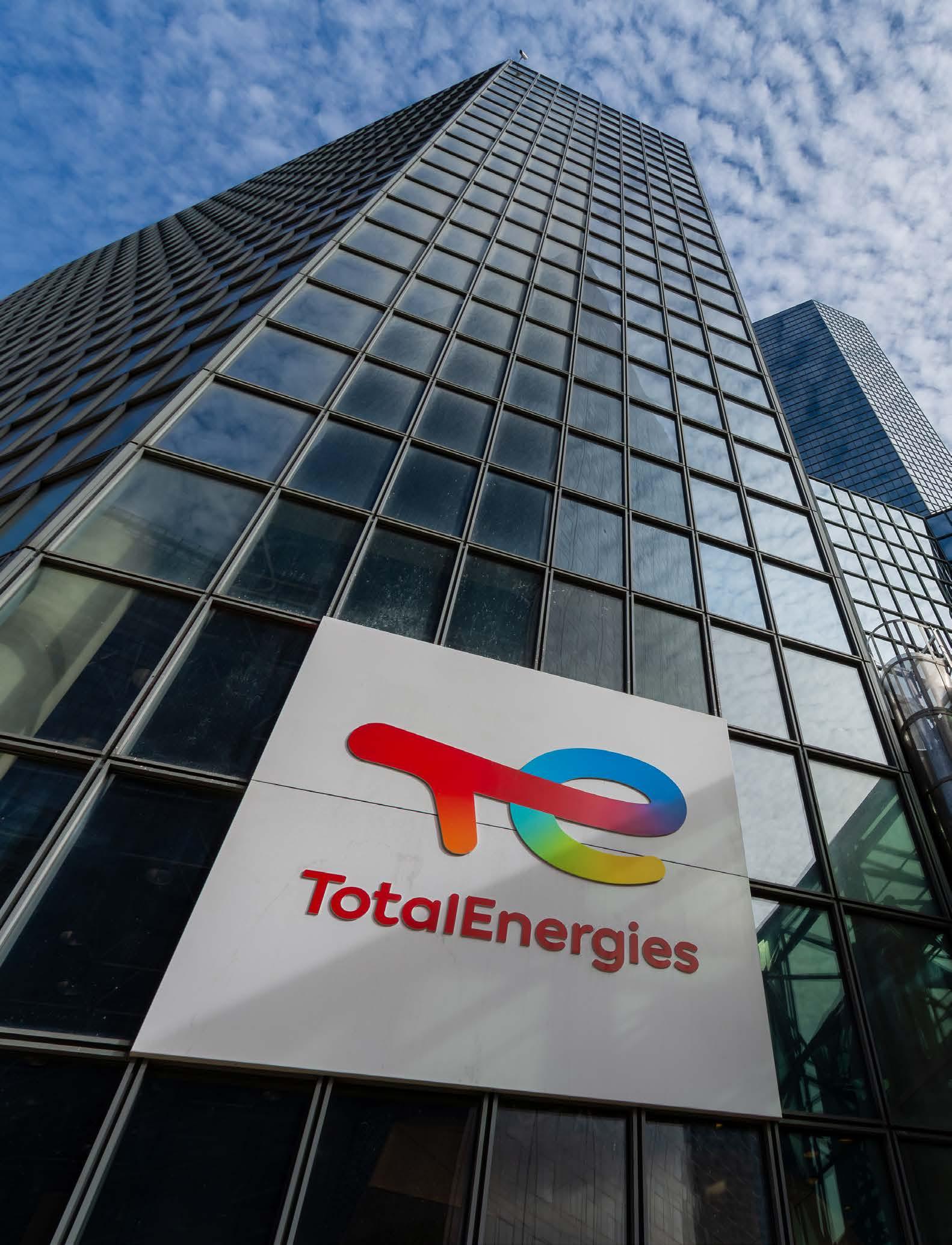
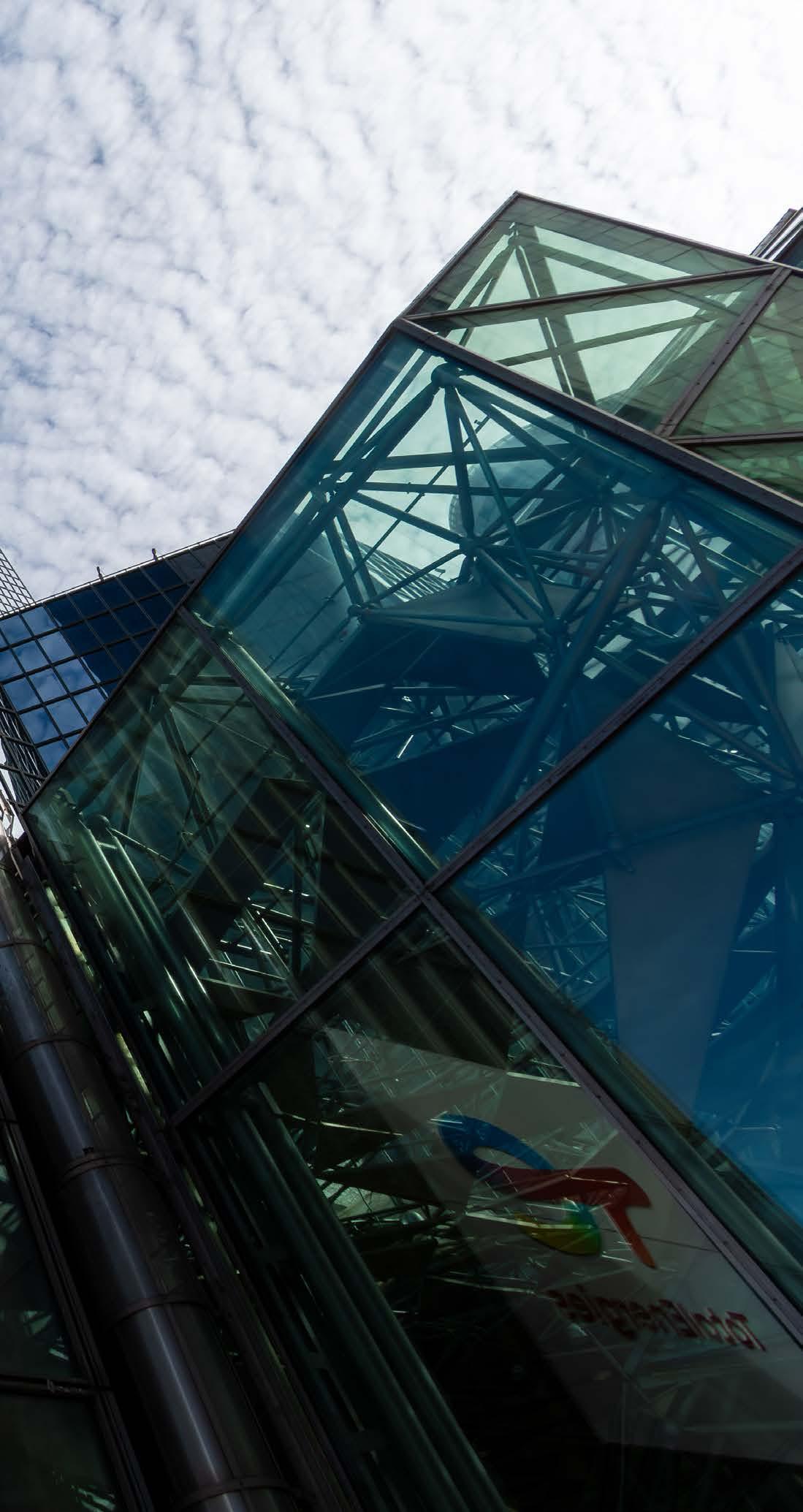
TotalEnergies Suriname
Founded on a commitment to delivering energy more sustainably, TotalEnergies is a globally integrated energy company where the planet and its people are at the heart of every strategy, project, and operation it conducts. The company has a long history across the globe and is now present in more than 120 countries worldwide. Across its international network, TotalEnergies works to make energy delivery more reliable, affordable, and sustainable. However, its current offshore exploration and development projects in Suriname mark a vital step in TotalEnergies’ leading energy operations within South America, where the company already has multiple developments, including developments in the neighbouring countries of Brazil and French Guiana.

GLOBALLY CONNECTED. LOCALLY INVESTED.
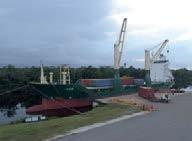

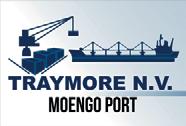
TotalEnergies has been present in Suriname for around 5 years, with 5 significant discoveries in the Block 58 offshore area. Block 58 is part of a partnership with APA Corporation, with both companies owning a 50% interest in the development. In 2023, TotalEnergies announced a significant oil project in Block 58, as well as a development study. The area includes the Sapakara South and Krabdagu oil fields, which have a confirmed combined estimated recoverable resource of close to 750 million barrels for the 2 fields. The GranMorgu oil project will be developed in Block 58 offshore Suriname and will deliver new wells at depths of between 100 and 100 metres across the Block. Oil will be produced through this system of subsea wells, which will ultimately be connected to an FPSO (Floating Production Storage and Offloading Unit) also located off the Suriname Coast. Once completed, the project is expected to have an oil production capacity of 200,000 barrels of oil per day (b/d) and contribute significantly to the development of oil across Suriname. Thus, for TotalEnergies, the project will mark a significant milestone for the company’s development of oil and gas resources in Suriname.
In October 2024, TotalEnergies and Saatsolie Maatschappij Suriname N.V. (Staatsolie) met in Paramaribo to announce the Final Investment Decision (FID) for the GranMorgu development located within Block 58. The announcement outlined how the GranMorgu project will develop the Sapakara and Krabdagu oil discoveries to build upon its successful exploration and appraisal period in 2023. The GranMorgu project, with a total investment of $10.5 billion, will be a key driver for investment on a local scale, contributing to local employment and the continued economic development of Suriname. For this reason, Paramaribo, the country’s capital, will be the centre for administrative, operations support and logistical activities for the entire project. In fact, for local companies, logistics, maintenance of the installation, as well as the subsea and FPSO operation, will see between $1-1.5 billion invested in local content, creating 6,000 direct, indirect and induced jobs across Suriname. Once completed, production is expected to start up in 2028.
The project is currently held in a 50% equal partnership between TotalEnergies and APA
Traymore N.V.Moengo Port – Your Strategic Gateway to South America’s Interior
Coastal Dynamics Limited
Delivering Innovative Environmental Solutions to the Oil and Gas Industry
With 30 years of experience, CDL provides specialized environmental expertise to the oil and gas industry. Partner with us to guide your project from start to finish with environmental strategies that supports responsible energy development.
Our multidisciplinary team of 40+ scientists supports both onshore and offshore operations, offering services such as: Environmental Impact Assessments, Regulatory Compliance, Metocean Deployments, Industrial Site Assessments, Oil Spill Modelling, Climate Vulnerability Studies and more.








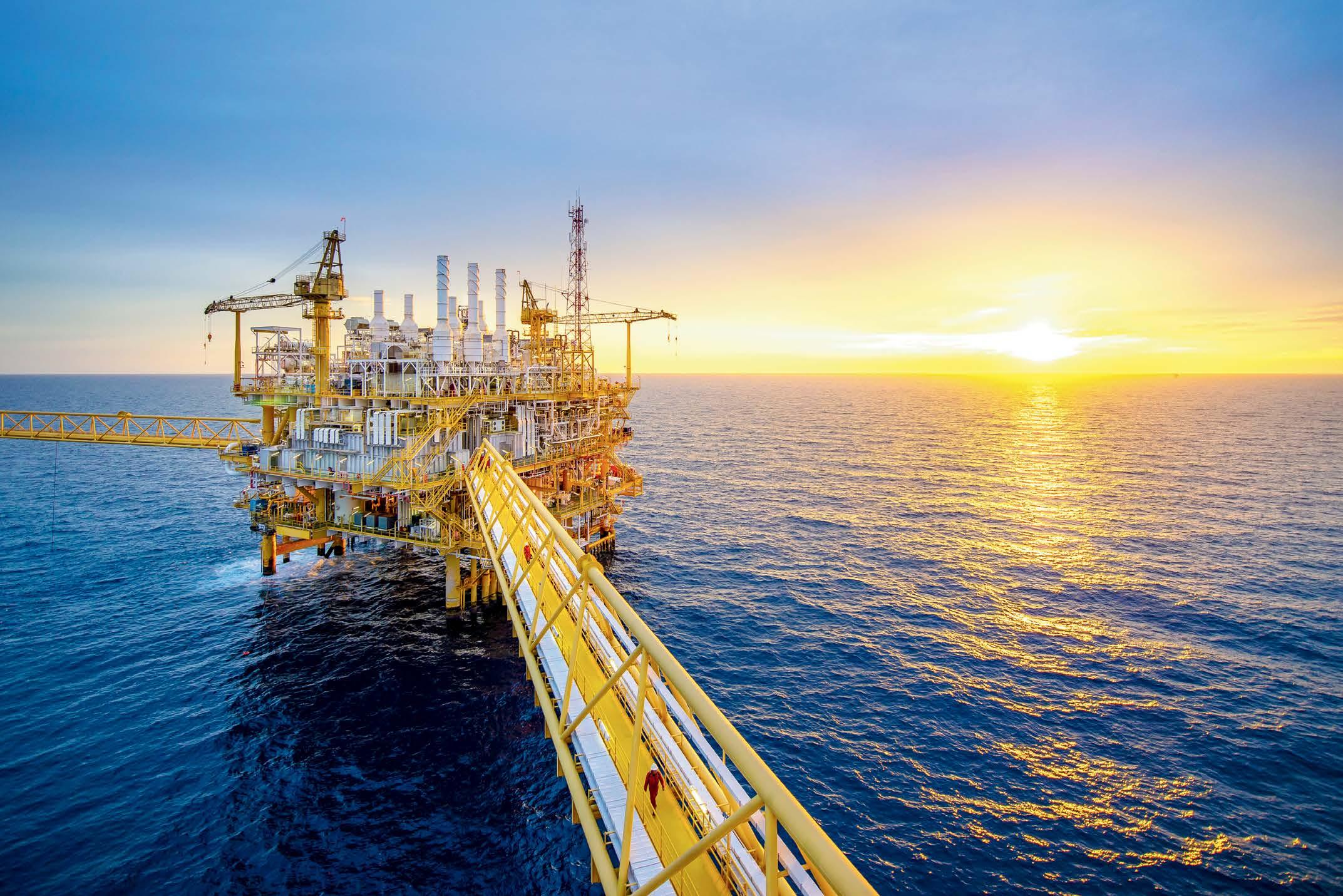









Trinidad & Tobago | Caribbean | South America
Oil Spill Model Map generated by CDL
TotalEnergies Suriname
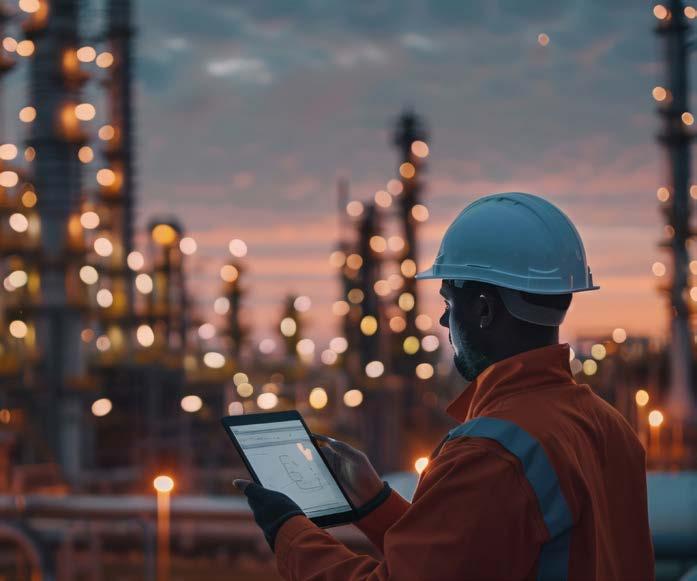
Corporation. However, following the GranMorgu project announcement, Staatsolie (Suriname’s state-owned oil company) outlined its interest in exercising its option to enter the development project at 20% interest, making contributions towards the project following the FID. Staatsolie will finalise its interest by June 2025.
One of the key sustainable aspects of the GranMorgu development in Block 58 is that it will leverage technology to minimise greenhouse gas
emissions. The project aims to specifically cut Scope 1 and Scope 2 emissions from each barrel of oil produced. A key step in achieving this will be the GranMorgu FPSO, which will be an all-electric vessel with zero routine flaring and full reinjection of associated gas into the reservoirs. The FPSO is designed to accommodate future tie-back opportunities that would extend the duration of its production plateau. Additionally, the FPSO will have a Waste Heat Recovery unit and water-cooling system, which will optimise the power usage across the vessel and improve its overall efficiency. To help further cut down on emissions, the project aims to install a permanent methane detection and monitoring system that will rely on a network of sensors to enhance the unit’s overall sustainability by reducing methane release.
The construction of the FPSO vessel for the GranMorgu development has been contracted to Technip Energies, who will build and install the vessel, whilst SBM Offshore has been contracted to operate the platform under an operations and maintenance agreement. Technip Energies will also


TORARICA

Discover a new way of living in the heart of Paramaribo — where tropical luxury meets eco-smart design. With 119 modern, sustainable units, this is your exclusive chance to rent a future-forward apartment that blends comfort, style, and cutting-edge amenities.
• 1 & 2-bedroom eco-luxury units
• Full kitchen, smart tech, in-room jacuzzi
• Access to all facilities to the Torarica Group: 3 restaurants, pools, gym, spa 24/7 security
• Tailored corporate packages & long-stay rates

This is more than a stay — it’s a lifestyle.
Whether you're relocating, or planning a long-term business stay, Torarica Premium Apartments offer seamless comfort with all the services of a top-tier resort.
• Private viewing starts October 2026
• Early booking = best units + exclusive rates
• Corporate-friendly flexibility: from invoicing to multiple-unit plans


• Scan the QR Code to register for the early bookings and special rates
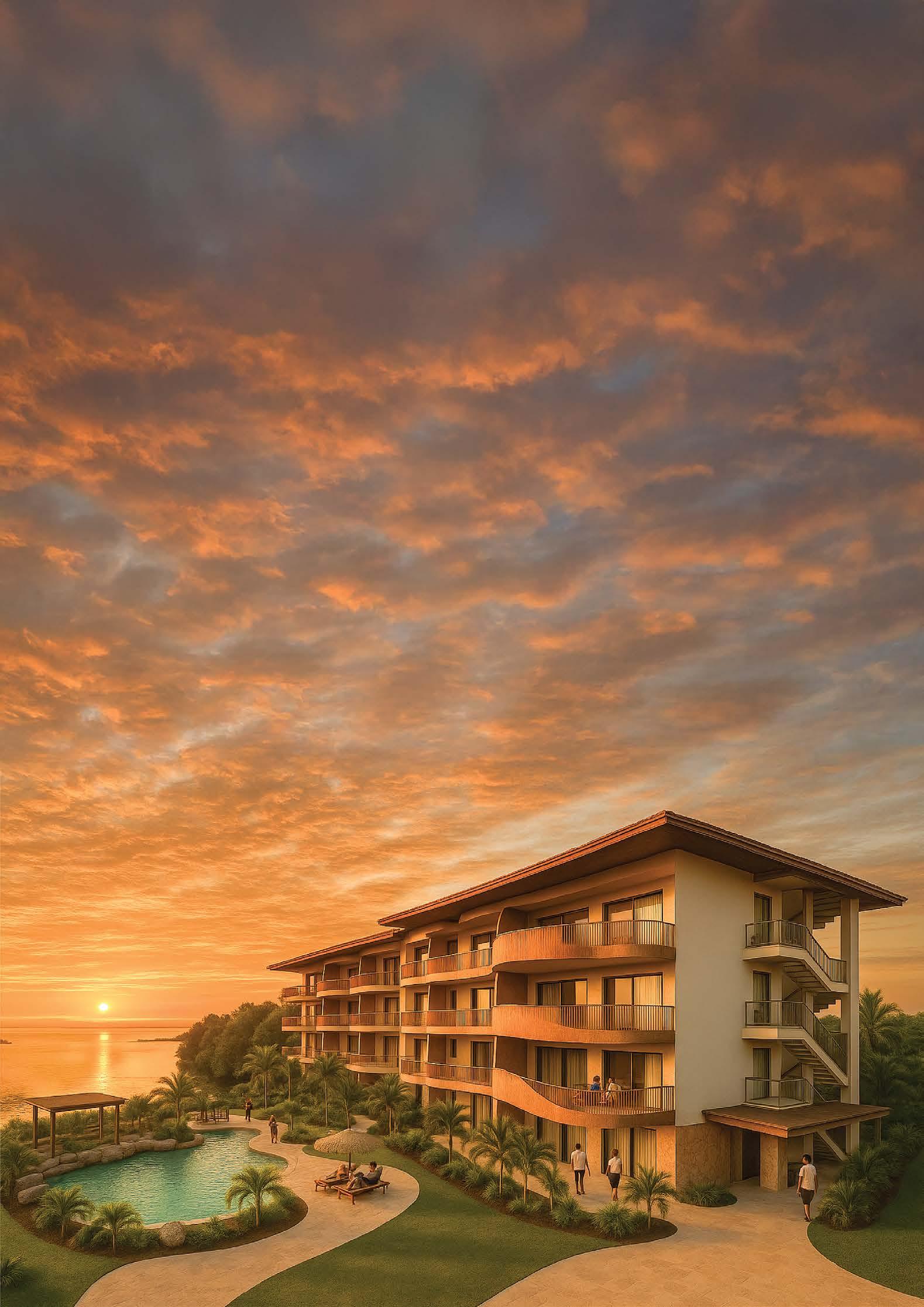
Disclaimer: This is a 3D impression for illustrative purposes only and does not depict the actual product or final outcome.
TotalEnergies Suriname
help deliver the all-electric drive platform, which will help the vessel deliver its reduced emissions, with zero routine flaring and full reinjection of associated gas into the reservoirs. A final contract has been awarded to Saipem, which will conduct the EPCI scope for subsea umbilicals, risers and flowlines. Its work will span the delivery of 100km of 10-12 inch subsea production flowlines and 90km of 8-12 inch water and gas injection, as well as the transport and installation of the flexible risers, umbilicals, and associated structures at depths ranging from 100 to 1,100 metres. These vital contracts will help TotalEnergies to deliver its sustainable mission for the GranMorgu development block.
The entire project at Block 58 will deliver significant oil developments for Suriname and add to TotalEnergies’ network across South America. In the FID announcement press release, Patrick Pouyanné, Chairman and CEO of TotalEnergies, outlined that “Building on TotalEnergies’ pioneering spirit, this landmark project marks the first offshore development in the country and capitalises on our extensive expertise in deep offshore innovation. Launched only a year after the end of appraisal,
GranMorgu fits with our strategy to accelerate timeto-market and develop low-cost and low-emission oil projects.” Pouyanné’s comments here highlight the vast role the project will play within Suriname and the company’s role in delivering a project that meets its central mission to make affordable yet sustainable energy more widely available across the world.
The GranMorgu project marks the vital beginning of a long and important era for Suriname’s energy sector. The project will deliver significant growth for the country, and so the project will be essential for delivering major economic benefits for the local economy through the labour, goods and services from local content that will be required to construct, operate and maintain the project to deliver consistent oil for the country. Oil production is expected to begin from 2028, where the majority of the project’s income will be delivered to the State of Suriname in the form of royalties, profit oil and taxes. The national oil company and TotalEnergies plan to continue to work closely together, and throughout the project will focus on attracting as many local goods and services as possible,





























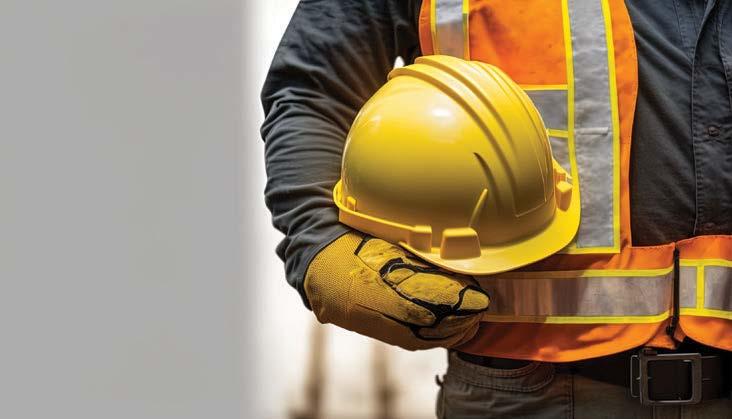



TotalEnergies Suriname
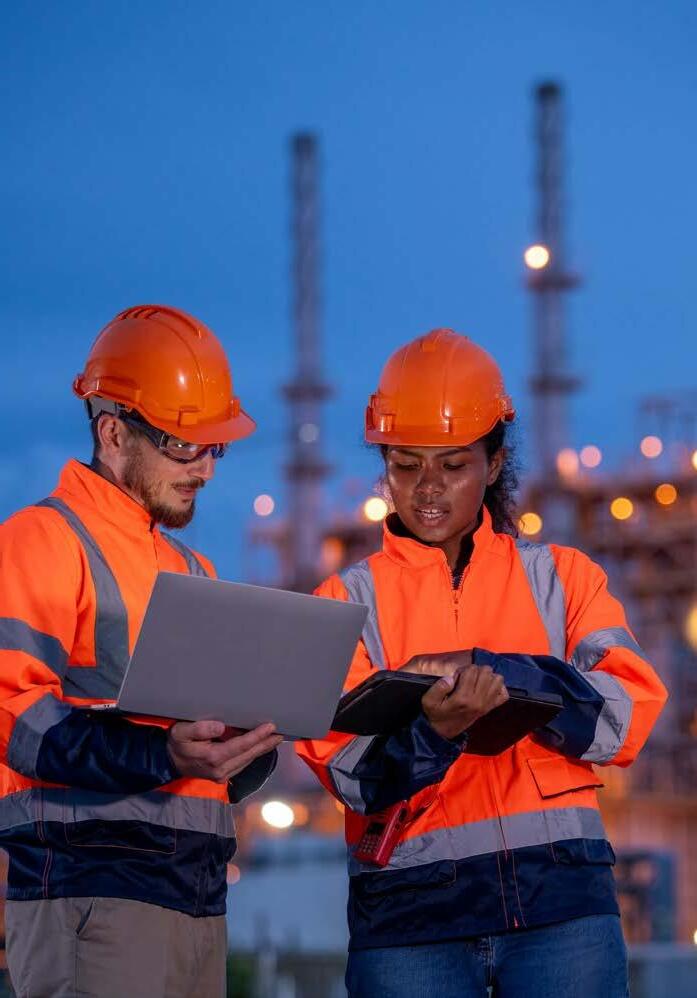
INCHCAPE END-TO-END
mirroring its focus on local content as has been seen across the exploration and evaluation phase of the development.
In addition to the Block 58 developments, TotalEnergies has previously signed a sharing contract for 2 shallow offshore blocks. These blocks, 6 and 8, have been awarded to TotalEnergies following the Suriname Shallow Offshore Bid Round 2021/2021, where TotalEnergies took on the operation of the two blocks with 40% interest. The operation is in partnership with Qatar Energy, which has a 20% interest, and Paradise Oil Company (POC), a subsidiary of Staatsolie, which also has a 40% interest in the development. Blocks 6 and 8 are located towards the south of Suriname, not far from the border to Guyana, and directly adjacent to Block 58.
The Senior Vice President of Exploration for TotalEnergies, Kevin McLachlan, states in the press release for the Block 6 and 8 development that “TotalEnergies is pleased to expand its operatorship position in Suriname, a world-class emerging basin, exploring for low technical costs and low GHG emission oil resources”. He continues, “This

MAIDEN VOYAGE MANAGEMENT
Integrated end-to-end journey management from point of origin to destination ensuring compliance to all logistics, personnel and legal requirements are met in all transit locations to end destination.
Port Agency Solutions - Port call management, crew logistics and husbandry services.
Project Solutions - End-to-end project management of supply base, dry docking, vessel activation and engineering services. Strategic procurement and survey & inspection.
Turnkey Solutions - Dedicated project management team. Global operations oversight with local delivery and expertise.
Permitting Support - Consultancy to provide an overview of government and statutory formalities. Obtain approval and permissions from relevant authorities and third parties for marine operations.
Supply Chain Solutions - Procurement solutions, providing vendor and risk management, door 2 deck logistics and tail-spend management.

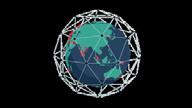
new milestone further strengthens our strategic international partnership with Qatar Energy, marking its first entry to Suriname”. As we can see from McLachlan’s comments, TotalEnergies’ span across Suriname has established it as a key player in the country’s energy industry. With significant developments in Block 58 and Blocks 6 and 8, TotalEnergies continues working with crucial partners and players across the global industry to bring sustained economic growth and a wider sphere of energy potential to the region.
As TotalEnergies continues to expand its reach across Suriname’s energy sector, the company announced in June 2025 that it had signed an agreement to acquire a 25% interest in Block 53 in Suriname. The interest in Block 53 was previously held by Moeve, formerly known as CEPSA, and so TotalEnergies will now join the operators of the block, APA (45%) and Petronas (30%), as a partner in the license. The block is significant as it is located directly east of the Block 58 developments, where TotalEnergies has its GranMorgu development. Block 53 is home to the Baja-1 discovery, the first oil to be found in the block, where over 34 metres of
Supporting Suriname’s Energy Sector
D.S. Belcon
D.S. Belcon is strategically positioned within the Southern Energy Triangle, operating in Trinidad, Suriname, and Guyana, offering integrated solutions excellence to the shipping industry and oil and gas sector.
Considering TotalEnergies’ recent commitment to the GranMorgu project, as a Port Agency and Logistics Company, D.S. Belcon (Suriname)
N.V. stands ready to support this monumental initiative with comprehensive integrated logistics solutions. As Suriname embarks on this historic journey to develop the Sapakara and Krabdagu fields in Block 58, the need for reliable, efficient, and integrated logistics has never been more critical.
With a deep understanding of Suriname’s operational landscape, D.S. Belcon (Suriname)
N.V’s commitment to excellence, safety, and sustainability remains at the forefront.
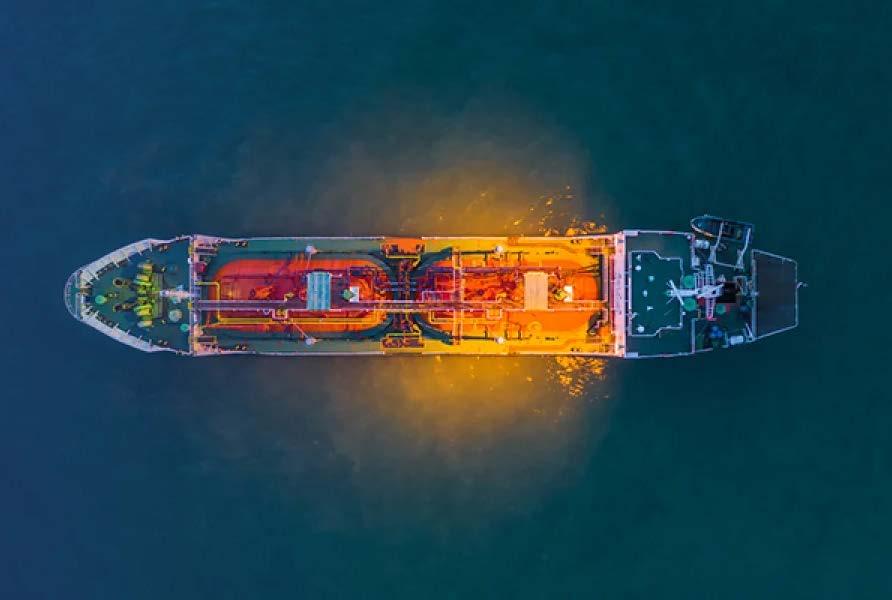
Solutions



TotalEnergies Suriname
N.V. Havenbeheer Suriname/ Suriname Port Management Company
With the rapid emergence of the oil and gas industry in Suriname, the Dr. Jules Sedney Port of Paramaribo has been proactively advancing its facilities to meet the demands of the future. This commitment aligns with our slogan: “Accommodating Our Future.”
As part of our preparedness, we have successfully renewed our ISO 9001:2015, ISO 14001:2015, and ISO 45001:2018 certifications, along with our ISPS certification, reinforcing our dedication to quality, environmental responsibility, and occupational health safety and well-being of our dedicated personnel.
Moving forward, we continue to strengthen our internal organization while forging strategic partnerships that enhance the value of our services and position us as a key player in the region.
With Suriname’s economy on the rise and the increasing need for port expansion, we stand as the premier choice for those seeking to invest in a port with a robust, future-ready system of control and ample room for growth. At present a new construction project for the extension of the qua to the south has commenced with even more expansion possibilities.

Section
Quay length
Draft at LWS
Deck load
Storage area
Additional
Dr. Jules Sedney
Terminal (A)
660m
7,0 – 7,5m
4,5 – 10 T/m² 20ha
119 reefer plugs
Facilities available and to be established
Heavy load quays and aprons up to 20 T/m²
Berthing spaces
Open and sheltered storage area
Medical first aid facility
Chemical storage area
Technical & mechanical support facility
Logistic support facility
Training centre – in partnership with Port Of Antwerp Bruges International
New Shore Base Area (B) 140m + 120m + 97m 7,0m 20, 10, 5 T/m²
12 + 0,8 + 2ha
Oil jetty for bunker ops
Potential Expansion Area (C)
600m
7,0m
Subjected to requirements 47ha
Multifunctional options
Services by Havenbeheer and 3rd parties
24/7 ISPS security
Logistic support
Hot works, Technical and Mechanical Support
Stevedoring & Lifting works
Waste management
Bunkering services (Fuel & Oils)
Sludge and waste water removal
Fresh water supply
Variety of supplies
Ship chandling
Husbandry
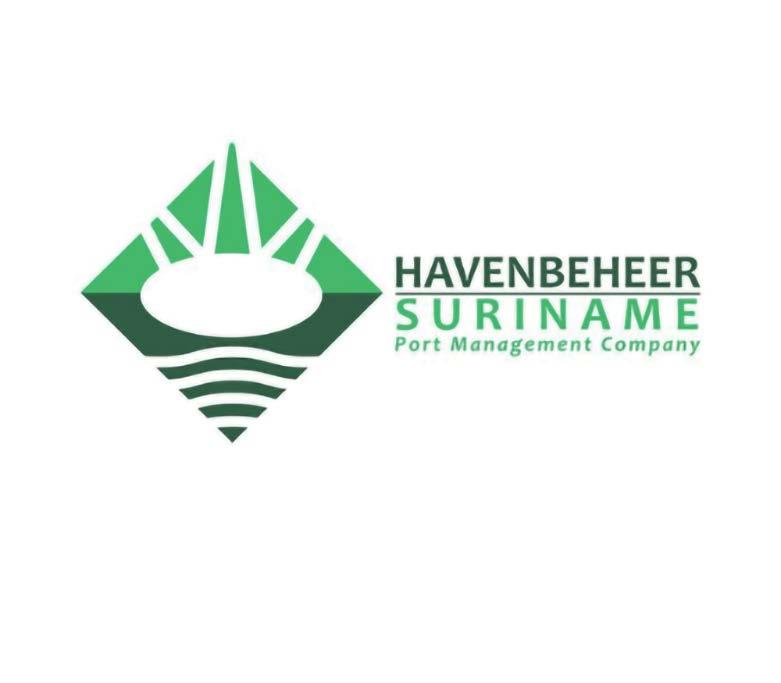
www.havenbeheer.com
Smooth Sailing for Your Business
FROM SURINAME TO THE WORLD – RELIABLE LOGISTICS, SUSTAINABLE SOLUTIONS
Discover the gateway to Suriname’s thriving trade and commerce with N.V. Havenbeheer Suriname, the nation’s premier port management company. With over 50 years of expertise, we ensure the safe, efficient, and effective operation of Suriname’s National Port and Transport System, fostering international trade and logistics.
N.V. Havenbeheer Suriname, is committed to sustainable economic growth through innovative green practices. Our vision is to become your reliable carbon-neutral logistics partner, harmonizing prosperity with environmental stewardship.



Havenlaan Zuid 5, Paramaribo, Suriname




oil were encountered in the Campanian formation. This discovery is a significant down-dip extension of the same deposit system as the Krabdagu discovery in Block 58. TotalEnergies hopes to develop here, utilising the existing infrastructure of the GranMorgu project.
Javier Rielo, Senior Vice President America, Exploration & Production at TotalEnergies, outlines in the announcement that “This acquisition brings new resources to the development of our lowcost and low-emission GranMorgu project”. Rielo continues, “It also proves how TotalEnergies will leverage GranMorgu infrastructure to develop profitably additional resources and extend its production plateau, strengthening the position of the Company in the offshore of Suriname”. Rielo’s comments highlight the continued development and exploration of TotalEnergies in Suriname to deliver significant energy resources for the country. By utilising the existing networks and infrastructure of the neighbouring GranMorgu development, TotalEnergies can streamline its operations and deliver even greater economic benefits from the
Block, solidifying Suriname’s position as a key and developing oil producer for the future.
Outside of Suriname, TotalEnergies’ operations across South America remain vast. One of the largest operations in South America is in Brazil, where the company has been operating for close to 50 years. Across Brazil, TotalEnergies is present in almost every aspect of energy development, from exploration, production, and renewable and green gas development to marketing and services. With such a span across the country’s energy sector from upstream to downstream, TotalEnergies’ operations in Brazil are emblematic of the global company’s multi-energy strategy. Employing more than 3000 professionals, Brazil is a vital market for TotalEnergies as the country is home to presalt fields, which emit less greenhouse gases for each barrel produced than the world average. This means that TotalEnergies is focused on producing oil with low operating costs across the highest quality fields to meet the energy needs of today, whilst limiting its emissions to protect the world of the future.

TotalEnergies Suriname
PPS Security - Strategic Growth & Commitment
Professional Private Security (PPS) N.V., founded on November 10, 1990, began as a family-owned business specializing in car alarm installations. With a strong foundation and a clear vision, the company steadily expanded its capabilities, evolving into a limited liability company by 1993. Today, PPS N.V. stands as a trusted security partner in Suriname, known for delivering comprehensive security solutions tailored to meet the evolving needs of businesses across a range of high-risk industries. Our growth has been fueled by an unwavering commitment to innovation, deep industry expertise, and a focus on securing complex environments. Our long-standing presence in the country and our strong understanding of local and sector-specific risks have made us the preferred security provider for commercial enterprises, multinational corporations, and companies within the Oil & Gas sector.

PPS N.V. offers a full suite of security services designed to protect assets, people, and operations. Our security services include intrusion and fire alarms, CCTV surveillance, access control, and 24/7 technical support. We also provide continuous remote monitoring solutions, featuring real-time video analytics and rapid response teams located strategically across the region. Additional services include GPS tracking for fleet security, professional guard services (armed and unarmed), and customized training programs to boost safety awareness and preparedness.
Our expertise extends to high-level security services such as VIP/executive protection for diplomats and business leaders, as well as secure transportation and storage of valuables, including cash and precious metals, in line with international standards. With a focus on reliability, discretion, and rapid intervention, PPS N.V. is committed to delivering peace of mind in every security challenge.
Burenstraat 33, Paramaribo, Suriname Tel: (+597) 476 433 Email: info@ppsnv.com www.ppsnv.com
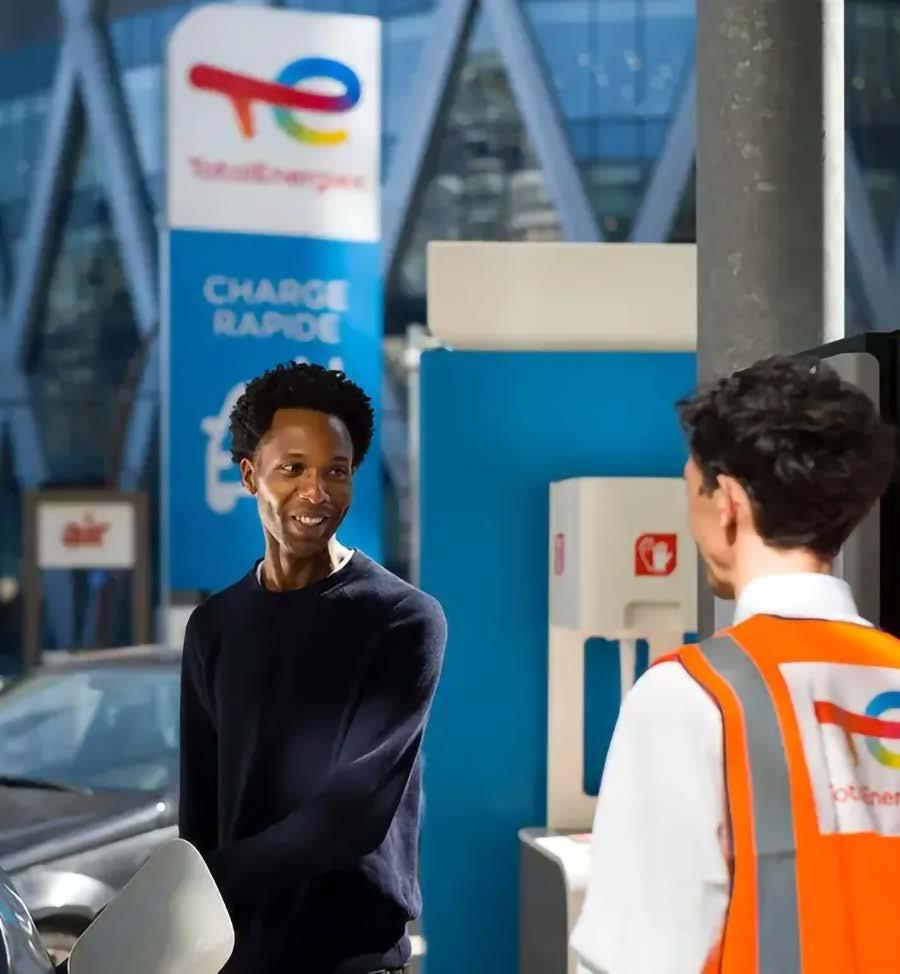
TotalEnergies currently has 11 licenses across its Brazilian oil and gas portfolio, including 4 operated assets across the Santos and Campos Basins in the deep waters and pre-salt layer. One of the most notable fields is the Lapa field, where TotalEnergies became the first international company to operate a production field in the Brazilian pre-salt, and the Mero, Sépia, Atapu Fields and the Lara area, all located in the Santos Basin. With such a wide span across Brazil’s energy development, TotalEnergies expects to produce 200,000 boe/d by 2026. In French Guiana, TotalEnergies’ operations focus on the downstream sector with the development of petroleum products and retail speciality at
service stations, as well as renewable electricity. The company currently has around 10 service stations across French Guiana, which offer fuel, products and related services. Beyond its retail, TotalEnergies also operates several solar power plants across French Guiana through its affiliates Total Eren and Sunzil, which are delivering more sustainable energy across the country every day whilst working towards a more sustainable energy future. TotalEnergies’ role across French Guiana is to deliver vital downstream resources, whilst working to develop sustainable energy solutions that can meet the demand of today, whilst limiting its impact on the planet.


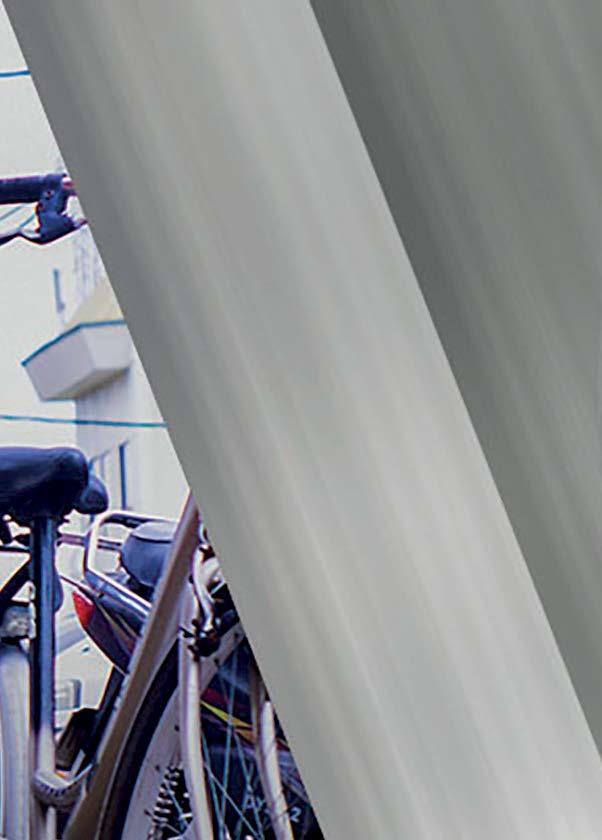
YOUR TRUSTED SECURITY PARTNER
Since 1990, Professional Private Security N.V. (PPS) has been a leading provider of comprehensive security solutions in Suriname. Almost 35 years of experience, PPS offers a wide range of services, including electronic and guard Services, catering to individuals, businesses, industrial companies, international organizations, and government agencies
OUR SERVICES:
• GUARD SERVICES: Professionally trained security officers deployed to ensure safety and order on-site—whether at commercial properties, industrial facilities, or events.
• ELECTRONIC SECURITY SYSTEMS: Advanced solutions including intrusion and fire alarms, CCTV, access control, and tailored maintenance packages.
• CASH & VALUABLES TRANSPORT SERVICES: Secure transportation of money, precious items, and documents, aligned with international safety sta
• REMOTE SECURITY CENTER: Real-time monitoring, video verification, and alarm response via our 24/7 control room, linked to our strategically located Alarm Response Units.
• PERSONNEL & FAMILY TRANSPORT: Safe and discreet transportation for employees and their families, supporting the needs of international and high-risk operations.
WHY CHOOSE PPS?
• Almost 35 years of trusted experience in delivering high-quality security solutions across various sectors.
• Comprehensive service portfolio, ranging from electronic and guard services to emergency response, transport, and monitoring.

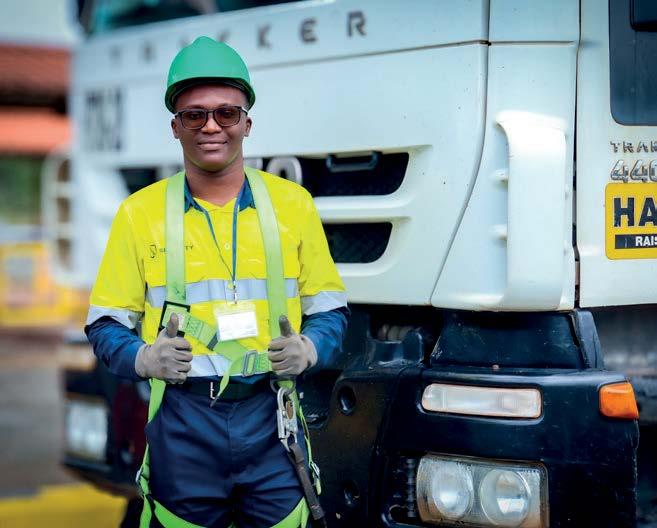
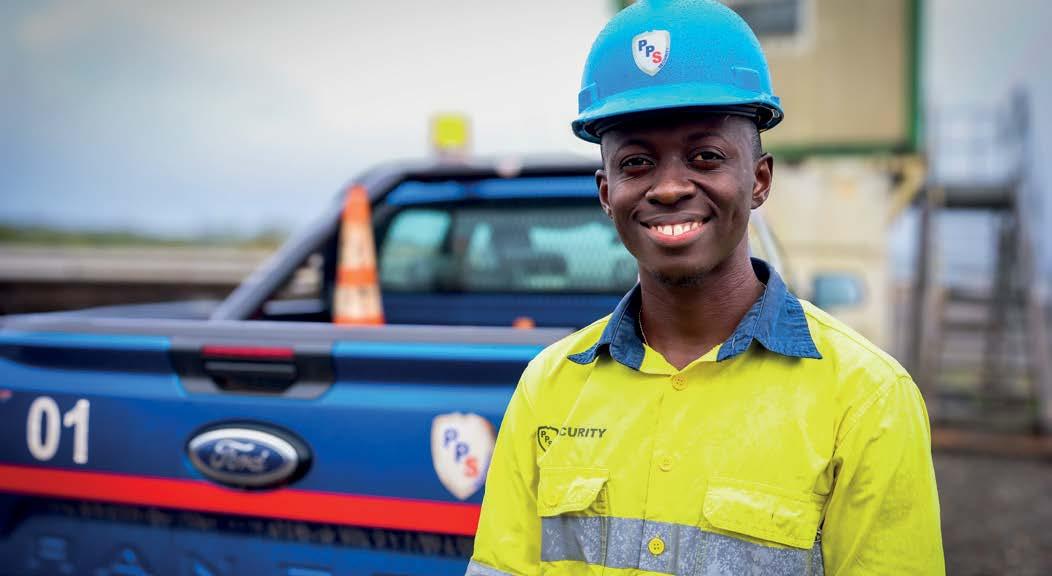
• Client-focused innovation—we continuously improve and adapt our services to meet your security challenges.
• Proven commitment to compliance, safety, and operational excellence through industry-recognized practices and certifications.
Burenstraat 33, Paramaribo, Suriname Tel: (+597) 476 433 Email: info@ppsnv.com
Some of our partners are...











TotalEnergies Suriname
With the company’s presence across many neighbouring countries, it’s clear to see that Suriname and the surrounding region are primed for development, supported by the company’s expertise and network across South America. With this span of expertise being focused on Suriname, it is no surprise that TotalEnergies was a vital attendee at the Suriname Energy, Oil and Gas Summit (SEOGS) 2025. SEOG is the largest energy offshore event in Suriname, which brings together leading energy companies across both regional and international audiences. The event was developed by Staatsolie Maatschappij Suriname, Suriname’s national energy, oil and gas company, and organised by Global Event Partners Ltd (GEP) and Fossil Energy Consulting. Thanks to GEP and Staatsolie, SEOGS is the leading place for discussion, development and investment into Suriname’s energy sector, facilitated largely by the office opened by the organisation in Paramaribo to continue to support the region’s energy sector and wide portfolio. Leading global partners attending the event include the likes of Petronas and TotalEnergies, who are crucial in supporting
Suriname’s energy development. However, the event is also pivotal for bringing together multiple local and international key sponsors and suppliers across the energy sector to enhance Suriname’s global energy development.
The most recent SEOGS event was held in midJune in Paramaribo, Suriname, where over 200 speakers and more than 250 exhibitors were present. The event also saw over 12,000 attendees, highlighting the event’s role as the largest energy event in the Caribbean. The 4-day summit event provides ample opportunities for attendees, the government and energy companies to share about the vital energy development and potential of Suriname’s offshore deposits. Therefore, the event encourages investment, development and project opportunities for companies looking to get involved in one of the world’s most exciting oil and gas hotspots. Beyond the summer, a 3-day technical conference event delivered pivotal networking opportunities to help local and international stakeholders develop relationships to help deliver



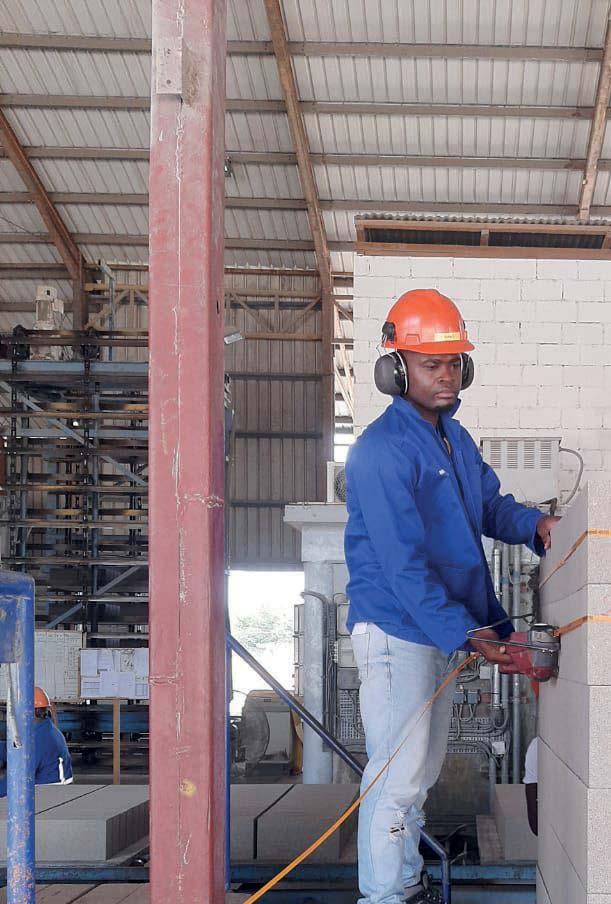
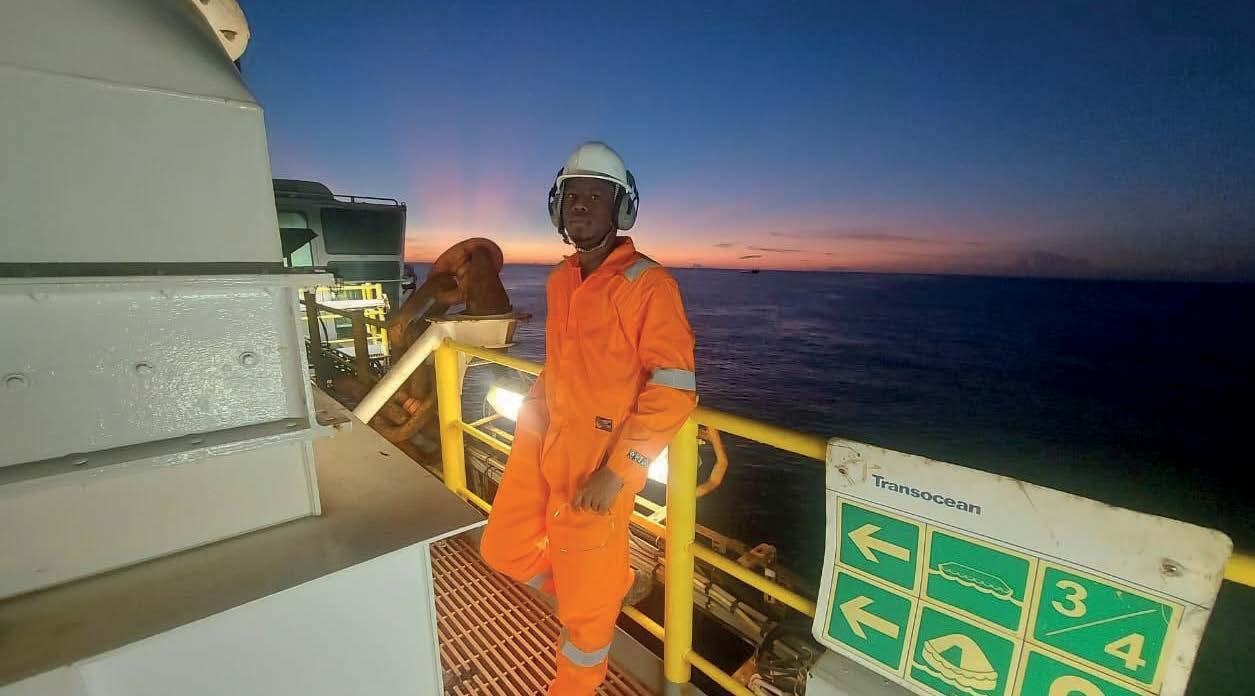
Jani Detachering N.V. is an ISO 9001:2015 certified staffing and recruitment firm based in Paramaribo Suriname, providing customized workforce solutions across diverse industries. We specialize in connecting the right talent with the right opportunities, ensuring highly qualified and motivated professionals for your business needs.
OUR SERVICES:
• Permanent & temporary staffing
• Workforce management & consultancy
• Immigration & travel services
• Industry-specific training
• Domestic and international payments
• Recruitment for short- & long-term projects
•✔ Payroll solutions
•✔ Transportation services
•✔ Medical screening for offshore & onshore personnel
Partner with us for reliable, efficient, and professional workforce solutions.



TotalEnergies Suriname

partnerships working towards the longevity of Suriname’s energy development.
SEOGS 2025 marks the 5th year of the event, and this year, one of the central focuses was on sustainability. With the opening of SEOGS 2025, President Chandrikapersad Santokhi outlined Suriname’s commitment to transparency and inclusivity in the growth of the country’s energy sector, with a central focus that ‘oil and gas resources must benefit all of our people’. These words were followed by the keynote address from Chairman and CEO of TotalEnergies Patrick Pouyanné, which reiterated the company’s commitment to the sustainable development of the GranMorgu project within Block 58 and across the Suriname-Guyana Basin. Pouyanné outlined in the message that TotalEnergies’ project within Block 58 will create over 6000 jobs, inject more than $1.5 billion into the local economy, and deliver more than 750 million barrels of oil to the market at a cost below US$20 the barrel. For this reason, Pouyanné highlighted that the GranMorgu project is part of a more than US$10 million investment that is designed to address sustainable energy values.
This focus on sustainability remained a key focus for the entire event, with Pouyanné reiterating how
the project will continue to focus on sustainability features throughout its development, with a particular focus on ensuring its FPSOs are electrical and are delivered alongside a permanent methane monitoring system. In addition to this, TotalEnergies will also ensure the reinjection of associated gas throughout the project. This focus on sustainability throughout the project is set to help both TotalEnergies and Suriname meet their goal of reaching net-zero emissions by 2050.
Ultimately, TotalEnergies’ projects across South America highlight the company’s mission to make energy more accessible, sustainable, and affordable across the globe. In Suriname, in particular, the development will strategically enhance the country’s existing energy infrastructure and ensure a more seamless delivery of energy across the region. With Suriname’s continued energy development supported by the government and local stakeholders, and highlighted through the SEOGS event, the region is now a vital hub for energy investment across the Caribbean. For TotalEnergies, Suriname will now add to its vast portfolio in South America, which works cohesively to leverage its expertise across the region’s energy sector and enhance Suriname’s role within the global energy market.

Amazing World: Scorching Desert to Natural Wonder
Scorching Desert to Natural Wonder: Death Valley Super Bloom
Written by Carley Fallows

Death Valley, located in eastern California, United States, is a region known for its scorching temperatures, extremely dry conditions, and sparse plant life, especially during the blazing summers. The valley recorded the highest temperature ever recorded in the National Park in 1913, at a whopping 57°C. Therefore, known as the hottest place on earth, it’s no surprise that there’s little in the way of plants across the valley, located between the Northern Mojave Desert and bordering the Great Basin Desert. However, every so often, following just the right weather conditions in the months prior, the valley’s floor becomes filled with a sea of yellow, blue and red wildflowers in the spring. Whilst this is a rare occurrence, its presence reminds us that even in the most unlikely of environments, beautiful life can bloom.
Superblooms, as they’re often referred to in Death Valley, typically occur once a decade following heavy rainstorms in the autumn and winter months, paired with arid ground. These conditions are what make it possible for flowers to bloom here in the spring, despite the high temperatures. Superbloom flowers typically include red poppies, desert lupines, and sunflowers, which strike a stark contrast against the desert landscape seen for most of the year. Whilst the ‘superblooms’ might suggest a thick, dense flower coverage, the superbloom is instead more of a light scattering of flowers across the valley’s floor – but it is still impressive, especially compared to the very dry landscape typically seen across Death Valley. The last super bloom occurred in 2016 and was brought about by the El Nino phenomenon, which aligns with the surface of the sea rising, leading to more extreme weather patterns occurring across the globe. This particularly looks like an increase in severe weather, including storms across the US, which results in increased rainfall in late 2015 and early 2016. The increase in moisture in the air from such severe weather in the months prior provided ample conditions across Death Valley for a superbloom to occur in the spring of 2016.

One of the main reasons why Death Valley remains such a hot climate is due to its 140-mile valley sitting in the shadow of four major mountain ranges. These ranges include the Sierra Nevada and Panamint Range, which prevent moisture from the Pacific Ocean from moving eastward over the mountains from reaching Death Valley. Therefore, air masses are forced upward by the ranges; this causes cool air and moisture to condense, leading to rain and snow on the western slopes. However, by the time this air reaches the valley, most of the moisture has been lost, and so little is left in the way of precipitation, causing such dry conditions. Therefore, Death Valley has a subtropical hot desert climate, which causes extremely hot and long summers, with warm and short winters and a typical annual rainfall below 2 inches a year. Therefore, such perfect conditions with increased rainfall are needed for the moisture in the air to reach Death Valley, resulting in the rare natural wonder of a superbloom across the valley.
However, the name Death Valley does not actually stem from the extreme heat of summer, as one might expect. Instead, it originates from an incident that occurred during winter in what would later be known as Death Valley. The story behind the
name comes from a group of pioneers who became lost while searching for a shortcut to the gold fields of California in the winter of 1849-1850. The men lost their way in the vast expanse of the valley and were ultimately rescued by two young members of the group who had learned to be scouts. These young men guided the others over the Panamint Mountains and out of the valley. Although only one person died in the valley, it is believed that one member of the group looked back after escaping and said, “Goodbye, Death Valley”. This is thought to be the origin of the name ‘Death Valley’ today, and the lost group, known as the 49ers for the year they were stranded, has become a significant part of Western history in the United States.
With such an interesting history behind the hottest place on earth, Death Valley remains a highly visited place to experience the true heat that the valley has to offer. One of the most interesting natural phenomena occurring in Death Valley is the superbloom, which seemingly brings life against all odds to an extremely dry and hot climate. With global weather patterns continuing to play a vital role in the cause of such superblooms, the chance to visit and see the spectacle of flowers remains an elusive wonder of North America.
Source: https://www.nps.gov/deva/learn/nature/ wildflowers.htm
https://www.nps.gov/deva/faqs. htm#:~:text=Death%20Valley%20was%20given%20 its,valley%20would%20be%20their%20grave
https://www.vogue.com/article/super-bloomdeath-valley-travel
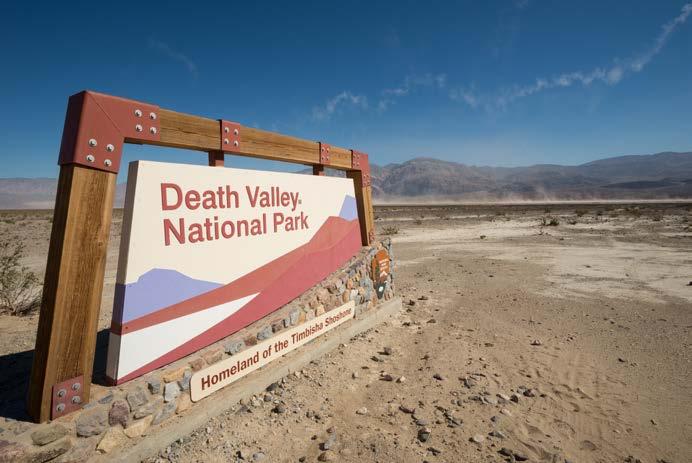
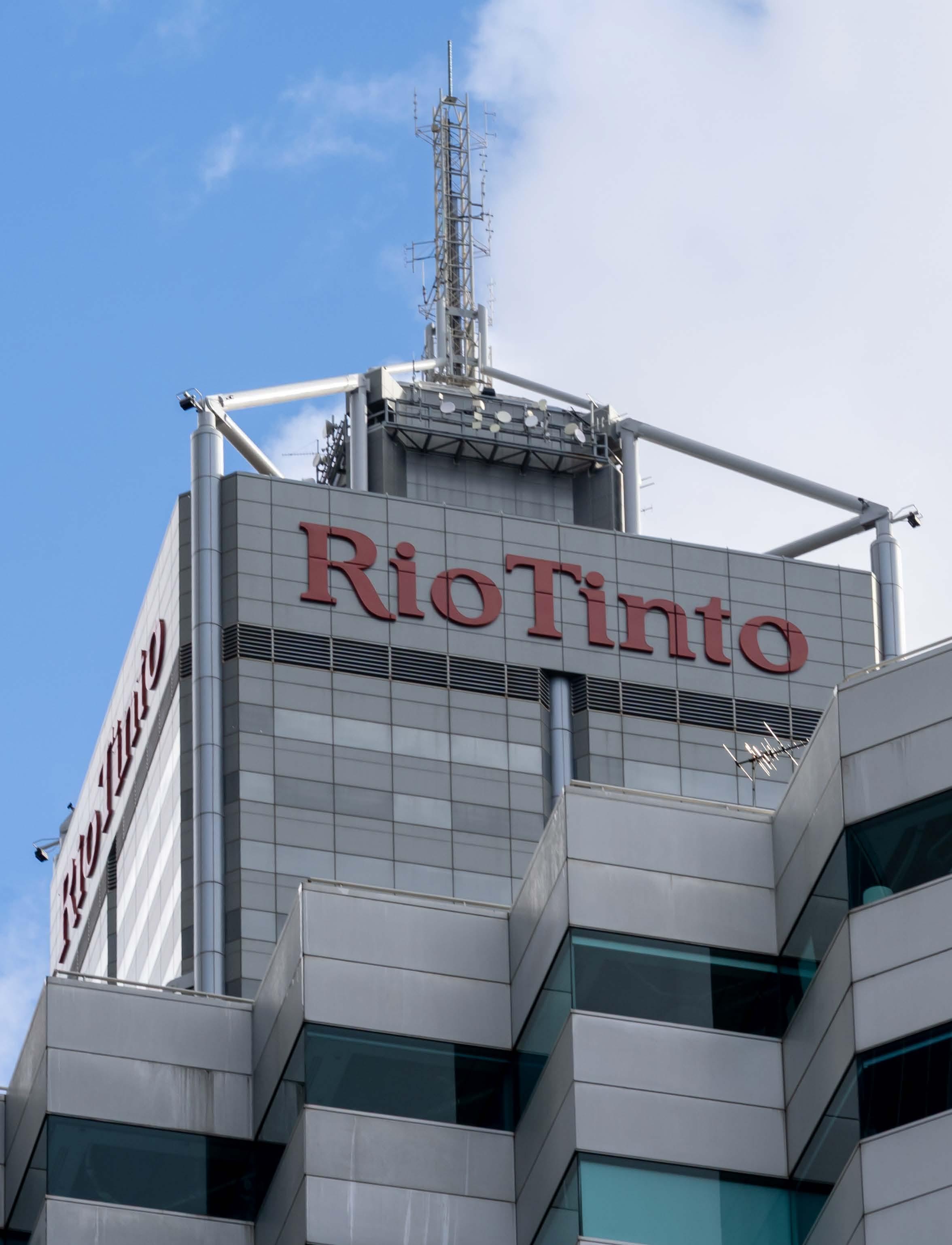

The Republic of Guinea in Western Africa is home to vital bauxite, gold, diamond, and iron ore deposits, with the mining industry playing a key role in the development of Guinea’s economy. To date, only bauxite and gold have been industrially mined, but with such a wealth of iron ore at the country’s disposal, Rio Tinto SimFer are developing a high-grade iron ore project in the Simandou Mountain range in the southeast of Guinea. The iron ore project aims to deliver a significant source of high-grade iron ore that will strengthen Guinea’s role in the global economy, whilst delivering vital community development.


Rio Tinto SimFer, is a joint venture held between the Government of Guinea and Chalco Iron Ore Holding (CIOH), of which Rio Tinto is the majority shareholder. Simandou is divided into 4 blocks, with Rio Tinto SimFer holding blocks 3 and 4, which are estimated to contain 1.5 billion tonnes of iron ore reserves. Across blocks 1 and 2, Rio Tinto works alongside the Government of Guinea and the Winning Consortium Simandou (WCS) developers of Simandou, to help develop the infrastructure to export mined iron ore from the southeast of the country and towards the country’s ports. Across the 4 blocks, the project has vast challenges, not only due to the terrain but with the project being located 600kilometres (km) from the country’s coastline for export, Rio Tinto SimFer has set out a unique approach where multiple investors and industrial mining companies will come together with the Government of Guinea in a world-first partnership project.
The SimFer Mine is located across blocks 3 and 4 of the Simandou Project, and contains two main deposits, Ouéléba and Pic de Fon, as part of the mining concession. These deposits are between 6 and 8 km long, 1-15km wide, and 500m deep. The Ouéléba deposit to the north of the development has the largest surface area, containing around 1.5 billion tonnes of high-grade ore reserves. Rio Tinto SimFer plans to deliver the Ouéléba deposit as an open-pit mine utilising drilling and blasting rock techniques. Ore from the mine will then be hauled into trucks and moved to primary and secondary crushers. Conveyor systems are then planned to transport the crushed ore down the mountain from the mine for additional crushing, and then through transport infrastructure towards the country’s port. Construction of the mine is well underway, as roads to the mine and the mine’s infrastructure, including the installation of a water supply and fuel storage, are being completed.
The second deposit, Pic de Fon, is still being assessed for development; however, the first production from the Ouéléba orebody is expected by the end of 2025. After production commences, the mine will continue to ramp up over 30 months to reach the expected annual capacity of 60 million

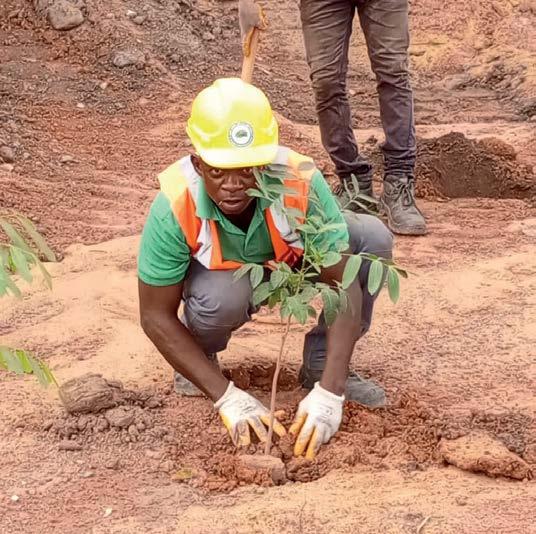


Rio Tinto SimFer

tonnes per year. The mine complex is expected to deliver 26 years of mine life, with further exploration planned over the next 5 years to explore new areas of potential mineralisation that could be mined in the future.
Once iron ore from Simandou is mined, it is then transported via the main Trans-Guinean rail line to deliver the ore to the port, where it can be loaded onto a transhipment vessel for international markets. However, this delivery of the ore is one of the largest challenges Rio Tinto will face, as currently, at least 600km of the coastline in Guinea

has no existing rail line or port facilities to help transport ore to customers. Therefore, Rio Tinto will work on delivering a new rail and port infrastructure to help support the delivery of ore to market. This infrastructural development will span blocks 1 and 2 of Simandou, where Rio Tinto will work with the Government of Guinea and Winning Consortium Simandou (WCS) to deliver this. A significant development of this is the establishment of La Compagnie du TransGuinéen (CTG), which is held in an equity share between Rio Tinto SimFer (42.5%), WCS (42.5%), and the Government of the Republic of Guinea, who hold a 15% free equity stake. Thus, CTG will be jointly funded by Rio Tinto SimFer and WCS, in partnership with the Government of Guinea, to deliver the vital rail and transportation infrastructure needed to deliver the high-grade ore from the mine to market.
Across the entire Simandou project under Rio Tinto SimFer, there remains a key focus on ensuring that its mine and associated infrastructure positively impact the local communities of Guinea, delivering the project as a lasting source of development for current and future generations. By 2030, the entire Simandou project is projected to increase the country’s Gross Domestic Product
Need reliable, round-the-clock supplies in Bel Air or Kamsar? We’ve got you covered. Since 2019, our expert team has delivered quality products fast and at unbeatable prices — helping vessels stay stocked, on schedule, and ready to sail. Choose the leading ship chandlers in Guinea and experience service that never stops.

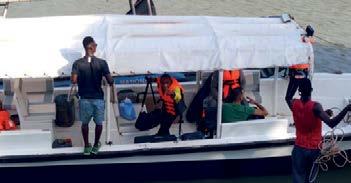



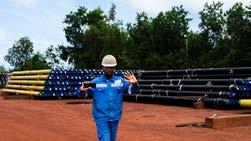




(GDP) by 26-55%, which will be achieved through the taxes and royalties from the project, alongside its indirect employment, and transport infrastructure that will benefit the country across multiple sectors, not just for the mining project.
Another key benefit the Simandou project will help deliver is an increase in the amount of international investment into Guinea, thanks to the stable supply of raw materials that the mining development will produce for the local and global economy. One of the key reasons for this is due to iron being a key metal for the future, especially for its role in steelmaking. Iron is used to galvanise steel, which is one of the leading metals pioneering the push towards future development, being utilised in every industry from manufacturing to sustainable energy development. Thus, by delivering such high-grade iron ore to market, the Rio Tinto SimFer project aims to help promote the role of Guinea in the global iron industry and cement its role as a key iron producer primed for further investment.
Over the coming years, Rio Tinto SimFer will deliver the rail spur and main rail line for the country, allowing shipping through the WCS barge port until the SimFer Transhipment vessel port is completed. By 2028, the SimFer mine is projected to reach 60Mpta and, in the process, deliver significant social and economic benefits for the region.

Ultimately, the Simandou project conducted by Rio Tinto SimFer is an exciting development for the iron industry, and especially for the Republic of Guinea, as the mine and its associated rail and port infrastructure are set to deliver significant benefits to solidify Guinea’s place as a hub primed for investment spanning across the mining and infrastructural development sector. With a challenging but vital project set to commence production very soon, we look forward to seeing how Rio Tinto SimFer will shape the future of the iron ore industry and, in the process, deliver Guinea as a leading iron-producing country that supports its people and the country’s local development.
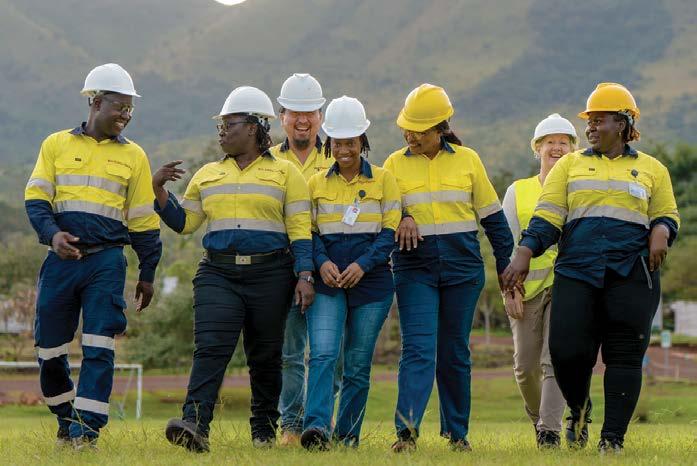



Vale is an international mining company that focuses on producing iron ore, pellets, and nickel. The company works every day to take the natural resources available to us and develop them into prosperous resources; all whilst still working to promote environmental protection. This drive towards sustainable development underpins everything that Vale does, as it believes the safety of people and the planet must always take priority.
As one of the largest mining companies in the world, Vale has operations across roughly 30 countries all over the globe. The company began in 1942 under the name Companhia Vale do Rio Doce, where it first extracted ore in Itabira in Minas Gerais. Over the years, the name was shortened, and the company began to take on a larger role across the country’s mining industry by also providing logistical solutions via the country’s railroads, ports, and terminals. It even began operations within the energy industry to promote sustainable electrical production, and now is responsible for producing 54% of its own energy consumption.
The heart of Vale’s operations centre around iron ore. Iron pellets are vital to the construction and manufacturing industry, as they are used in the production of many products, and across multiple services we use every single day. For this reason, Value knows how valuable iron is for the development of society and human development, especially when these products are used to construct houses and medical facilities, as well as many of the technology product and household appliances that are fundamental to human life today. Brazil is home to a rich deposit of iron and
so Vale’s operations centre around the mining and production of these iron products, to deliver vital products for the development of society.
Vale has multiple mine sites across Brazil where it is based, which are involved in the mining, processing, and then logistical movement of the mined products to the steel industries in which it sells the iron. To understand Vale’s valuable role in the mining industry in Brazil, we first must look at the birthplace of the company in Minas Gerais. The state accounts for over 50% of Vale’s iron ore production, with 20 mines currently in operation. Mining in Minas Gerais takes advantage of Vale’s railroad connections between Vitória and Minas.
Vale has invested more the 1.3 billion dollars in the acquisition of trains and freight cars, which it primarily uses for transporting iron ore as well as other cargo. The logistics sector of Vale’s operations allows it to play a more well-rounded


Vale S.A.
Grupo Franzen
Grupo Franzen is a leading reference in Brazil when it comes to solutions for mobile and industrial equipment. Representing globally renowned brands such as AFEX, Fike, Lincoln/SKF, Flomax, Contraflex, FZ-Duo, and Fourthane, the company delivers reliable technologies for the mining, steel, agribusiness, forestry, and logistics sectors.
Franzen’s portfolio covers installation, maintenance, and inspection services, all guided by excellence and operational safety. The ISO 9001:2015 certification reinforces the commitment to internationally recognized quality standards.
With a team of over 300 professionals, the company continuously invests in training, both in field operations and in offices, ensuring specialized support and maximum reliability in every delivery.
Franzen also standardizes reports to guarantee traceability and efficiency in all services. Through its own fast and intuitive app, technicians and clients have immediate access to maintenance information and records.
The mission is to provide industrial products and solutions that meet, or exceed, clients’ expectations in quality, delivery, and cost.
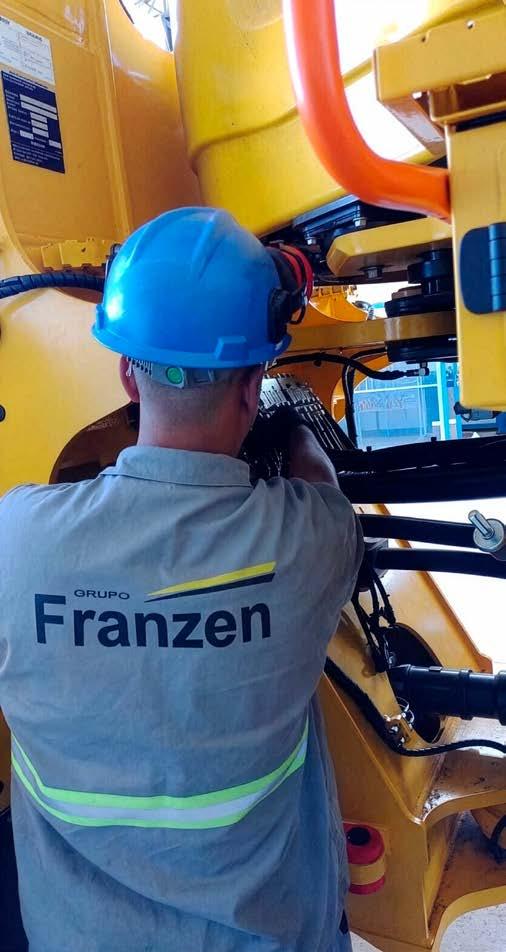
role in the mining industry and the distribution of its mined products to the ports and steel-making marketplace. Therefore, the mining operations at Minas Gerais highlight how the mining and logistical operations of Vale work so closely together to deliver the rich ore to end markets for the betterment of a future planet.
In Minas Gerais, Vale is working alongside the city of Itabira to use its efforts within the mining industry to positively impact the city and build a plan for a more sustainable city. The plan, devised in conjunction with the municipal administration, aims to develop the region with projects which concern the environment, education, and security – all of which are developed with innovation in mind. These projects include the Little Seed of Sport Project, Judo Classes and the Bright Minds Chess Project which is bringing key development to kids across the region all thanks to Vale’s commitment to putting people and the environment at the forefront of its operations.
Pará, the largest mining complex in Brazil, is owned by Vale and represents one of the largest private investments in the country in recent years. The S11D mine complex in Pará encompasses the mines, a processing plant, and rail and port logistic services, which have continued to drive the region’s
economic development for many years. The mines are responsible for mining iron, manganese, copper, and nickel across a vast array of mines which span the complex. However, much like in Minas Gerais, Vale also has a vast array of environmental projects in Pará which ensure that the rich biodiversity of the nearby Carajás National Forest is protected.
In Espírito Santo, mining extends back more than 50 years and highlights the vital role the state’s railway and port systems can play in the mining industry. In Espírito Santo, Vale developed a fully integrated strategy for mining logistics which continues to be used every day. Vale’s operations in Espírito Santo highlighted the company for its production of iron pellets, and now the production of pellets by Vale in the region is globally recognised.
Espírito Santo is also home to the largest environmental investment by Vale towards the development of the Tubarão Environmental Master Plan (PDA). PDA aims to control atmospheric emissions and covers 160 projects which are implementing new equipment, improving the environmental controls of its operations, and researching new technologies to reduce environmental impacts. The vast project
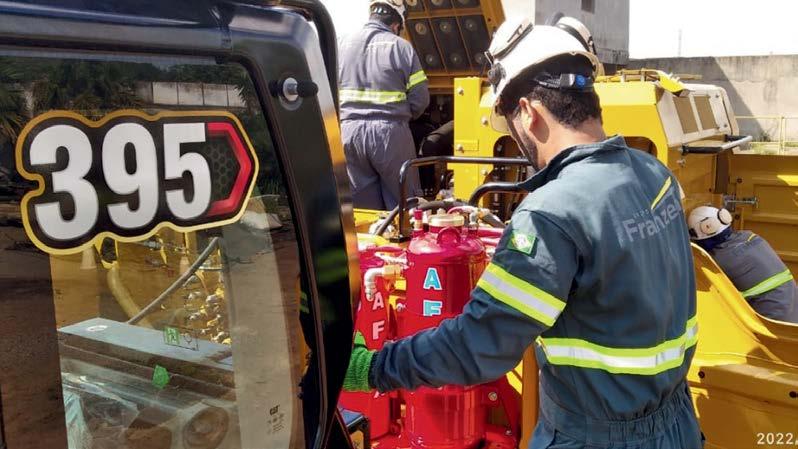

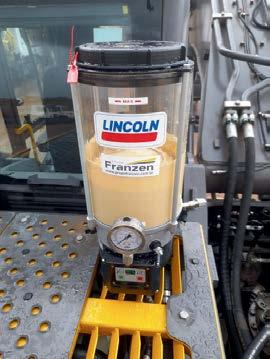


Grupo Franzen, with over 28 years of experience, is a specialist in the maintenance of fire suppression systems, automatic lubrication, fast fueling, and more, including the development of tailor-made solutions for diverse industrial needs. HIGH-QUALITY SOLUTIONS FOR INDUSTRIAL OPERATIONS
90%


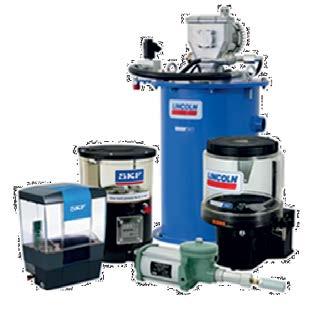
Authorized distributor of Lincoln-SKF, we are specialists in the installation and maintenance of Automatic Lubrication Systems, preventing premature failures caused by improper lubrication.
• Proper lubrication, at the right intervals.
• Reduced friction and wear.
• Longer life for bearings and machinery.
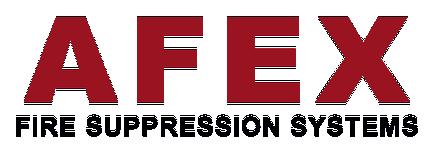

Exclusive distributor of AFEX in Brazil, specialized in fire suppression systems for heavy mobile equipment.
• Automatic or manual detection and suppression.
• Non-toxic chemical agents
• Over 50 years of experience and globally certified.
With a wide range of products, short delivery times, and complete technical support, Grupo Franzen ensures QUALITY, RELIABILITY, AND CONSISTENT RESULTS FOR ITS CLIENTS.

2.200 MACHINES UNDER CONTRACT COVERAGE

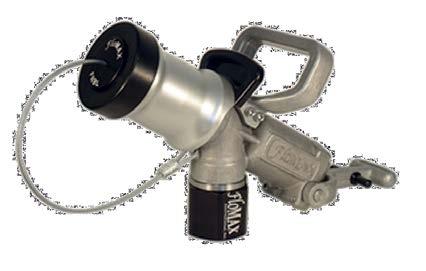
Exclusive distributor of FloMax in Brazil, offering high-performance nozzles and receivers for efficient fueling with no waste.
Greater reliability and costeffectiveness.
Advanced technology that eliminates downtime.



www.grupofranzen.com.br


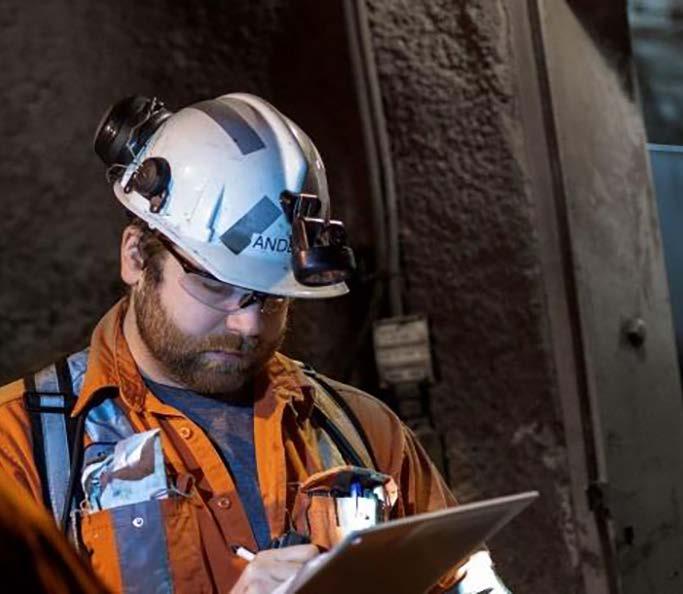
which encapsulated Vale’s core values, has been successful in its efforts to make vital developments towards the future, whilst remaining clear in its aim to respect the planet, the local communities and the people who live and work across their sites of operation.
Other key mining sites for Vale include Maranhão and Rio de Janeiro. In Maranhão, Vale works with the state to support the logistical movement of ore production through the Carajás Railway to the Ponta da Madeira Maritime Terminal. The terminal plays a valuable role in distributing the ore to consumer markets across the globe, including in China which is currently one of the largest buyers of iron ore products. Then, in Rio de Janeiro, Vale operates the Porto Sul Complex in the Costa Verde
region. Vale’s headquarters are based in the capital, along with several terminals which are used for the loading of iron ore. The entire site can move more than 75 million tonnes of ore every year through the terminals and towards end markets.
Ultimately, Vale’s existence hinges on a passion for improving life and transforming the future for generations to come. To do this, Vale is carrying out mining operations which are essential to life whilst producing ores, pellets and various metals which help to make this possible. However, it is Vale’s commitment to education, environmental protection and innovative approach to the future that has allowed it to play such a valuable role in Brazil for many years thanks to its constant commitment to developing necessary mining operations whilst putting great investment back into the protection of landscapes to support the rich biodiversity of this part of the world.
Brazilian Mining for the Future


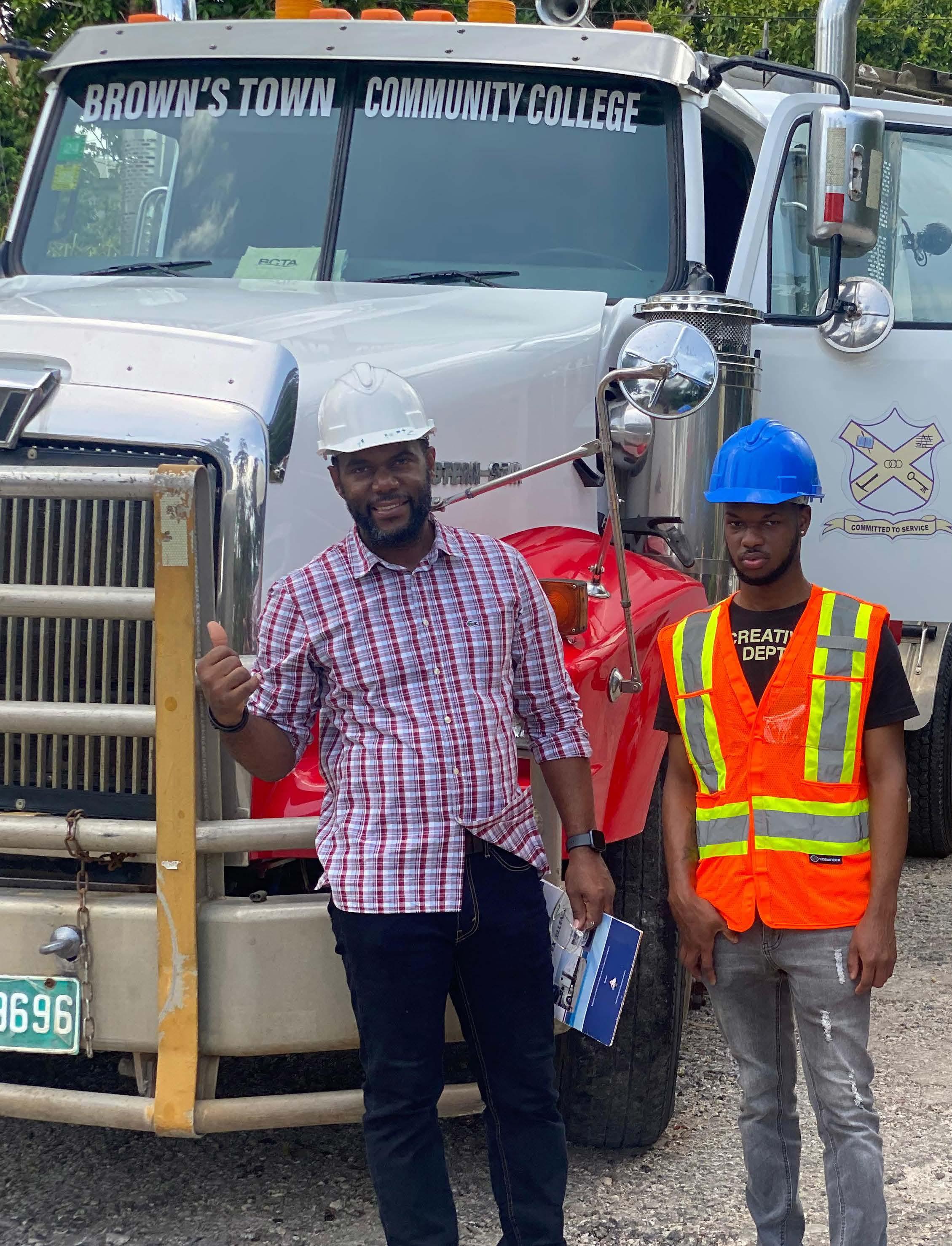

Brown’s Town Community College

Founded on a mission five decades ago to promote lifelong learning and workforce readiness, Brown’s Town Community College (BTCC) is a leading government-owned institution dedicated to offering quality education and development opportunities. With innovation and continuous improvement at the core of its educational approach, Brown’s Town Community College guarantees that every programme and initiative meets international standards to provide high-quality academic options for all students. We had the pleasure of speaking with Brown’s Town Community College to learn how they are upholding their motto of ‘Creating Opportunities, Connecting Communities’ by delivering affordable, accessible, and high-quality education that, for many years, has equipped students with essential skills and knowledge to succeed in today’s world.
Brown’s Town Community College has long played a vital role in Jamaica’s education sector, as it was among the first three community colleges established in the country in 1975. In that year, the late Honourable Glen Owen (former Principal of The Mico), the Ministry of Education, and Archdeacon Trefor Thomas (from the Anglican Church in Brown’s Town) spearheaded discussions to combine all the sixth forms in the Brown’s Town area. At the time, local high schools in the area struggled to find teachers for advancedlevel subjects. Additionally, there was a need for a post-secondary institution to support high school graduates who faced difficulties securing jobs in the business and tourism sectors because of a lack of training and qualifications. Charged with leading that first cohort of students was Honourable Burchell Whiteman, recognised as one of the pioneers of the community college system in the country, who later served as Jamaica’s Minister of Education, Youth and Culture, and as High Commissioner to the United Kingdom.
Today, BTCC is a government-owned institution and a member of the Community Colleges of Jamaica (CCCJ), the Association of Caribbean Tertiary Institutions (ACTI), and is registered with the University Council of Jamaica (UCJ). The institution operates across three campuses: The Brown’s Town Campus (Main Campus), which is also
Creating Opportunities, Connecting Communities
home to the College’s main administrative offices, the Nursing Campus, referred to as the Wesley Campus and the Technical Campus, otherwise known as the Discovery Bay Campus. Across these sites, the College delivers a range of degree programs that support sectors such as Business, Computing, Engineering, Construction, Nursing, and Hospitality. These programs fall under one of the four central faculties: The Faculty of Health, Human and Pure & Applied Sciences, The Faculty of Business & Computing, The Faculty of Construction & Engineering, and BTCC Academy & Corporate Education. Under these faculties, the College delivers almost 30 programs both face-to-face and online to support high school leavers and working adults to further their education, whether at home or abroad.
This commitment to education, both inside and outside of the classroom, is something that BTCC is passionate about fostering. The College provides a plethora of opportunities to help its students grow, connect and have fun. BTCC currently has 21 active clubs and societies, ranging from cultural and performing arts to academic. These include the Math Club, Modern Languages Club, Science & Environment Club, as well as special interest groups such as the Projects & Infrastructure Club and the Health & Promotion Club. Additionally, the College boasts a diverse range of sports teams that not only keep students active but also enable them to represent the College in major local and national competitions.
Across all these clubs and societies, students can explore their lives outside of academia and access activities and groups that foster community development, shaping well-rounded individuals. A key aspect of this is the Student Affairs Department, supported by the Student Liaison Officers, who play a hands-on role in guiding students’ social development and keeping campus life vibrant. In other words, across the programs offered and the social aspects outside the classroom, BTCC creates the perfect environment where personal growth, teamwork, and community spirit come together to deliver exceptional educational experiences. However, personal development and community spirit do not end once you graduate; in fact, BTCC is passionate about actively building a sense of
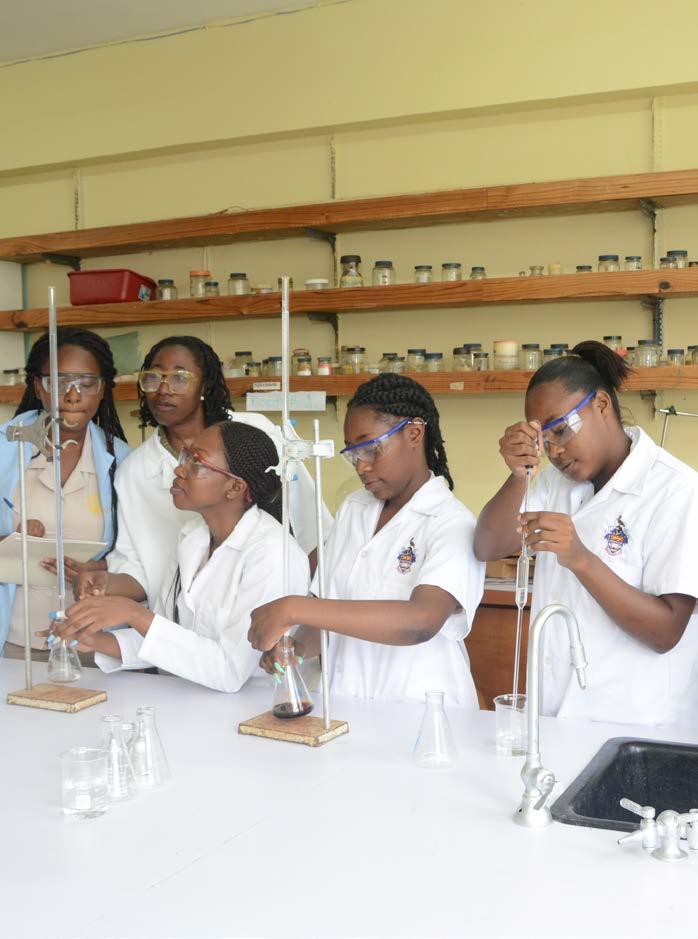
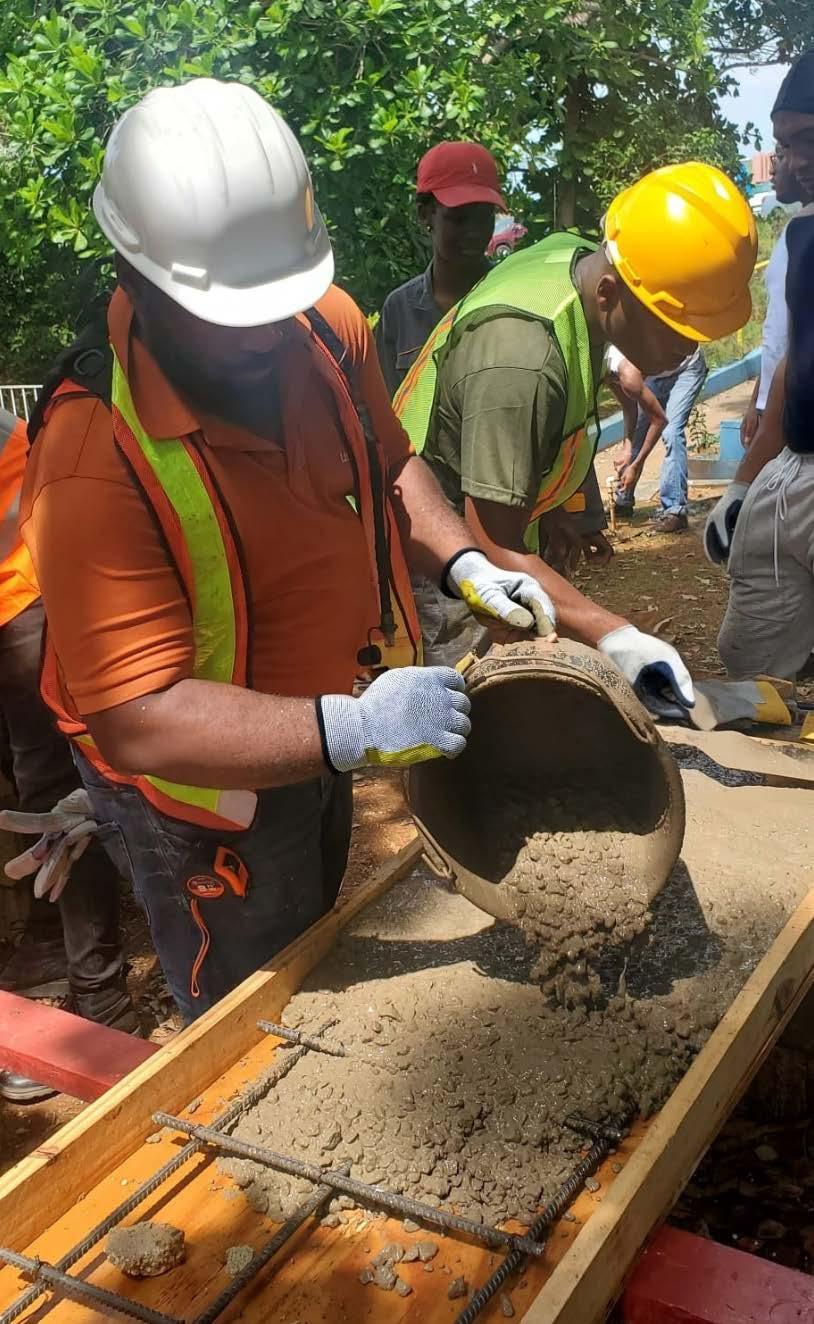
Brown’s Town Community College


community among both its current students and its alumni network. The College maintains strong connections with its alumni, often featuring their achievements on the institution’s social media platforms and inviting them back to campus to share their experiences, address current students and serve as guest lecturers. These actions highlight the College’s celebration of its alumni network, whilst also inspiring the next generation of students and providing them with the guiding hand of the alumni to bridge between education and employment. The College is also currently preparing to officially launch its Alumni Association during its fiftieth year of operations, which will allow the College to further its connection between past and present students, resulting in greater community spirit for all.
As BTCC looks towards the future, we heard how growth, innovation and student success remain its primary focuses. The College aims to expand its program offerings to meet evolving industry needs, increase enrolment and strengthen its student support services, whilst still maintaining the affordability and quality that the institution is known for. As part of this drive, the College has launched new programmes including the Associate of Science degrees in Agro-Processing and Logistics & Supply Chain Management, as well as
Creating Opportunities, Connecting Communities
providing certification courses in Food & Beverage and Welding & Fabrication. Short courses will also be provided for individuals seeking to earn microcredentials, providing flexible options for upskilling and professional development. Additionally, the College is looking to leverage technology to provide more flexible learning options to its students both at home and abroad, including the building of a state-of-the-art 8-classroom block as part of its modernisation strategy.
This year marks 50 years since the founding of Brown’s Town Community College, and to celebrate many decades of educational excellence, the College is intending to celebrate with a series of special events over the year. These events include a special Thanksgiving Service at the beginning of the anniversary year, the launch of the Alumni Association, and a fundraising venture hoping to raise a minimum of US$125,000 for the College.
The institution will also release commemorative merchandise to mark the milestone.
Across Brown’s Town Community College, there is a real focus on providing quality learning opportunities that meet the needs of its students today and provide them with the skills they need to venture into the next step of their lives and careers. The College is committed to providing this whilst remaining affordable and accessible for all, with a community that fosters both personal and professional growth. Therefore, ‘Creating Opportunities, Connecting Communities’ really exemplifies just what Brown’s Town Community College is all about; it’s about providing education and personal development opportunities that help you set yourself up for life, supported by the Brown’s Town Community College community at every step.

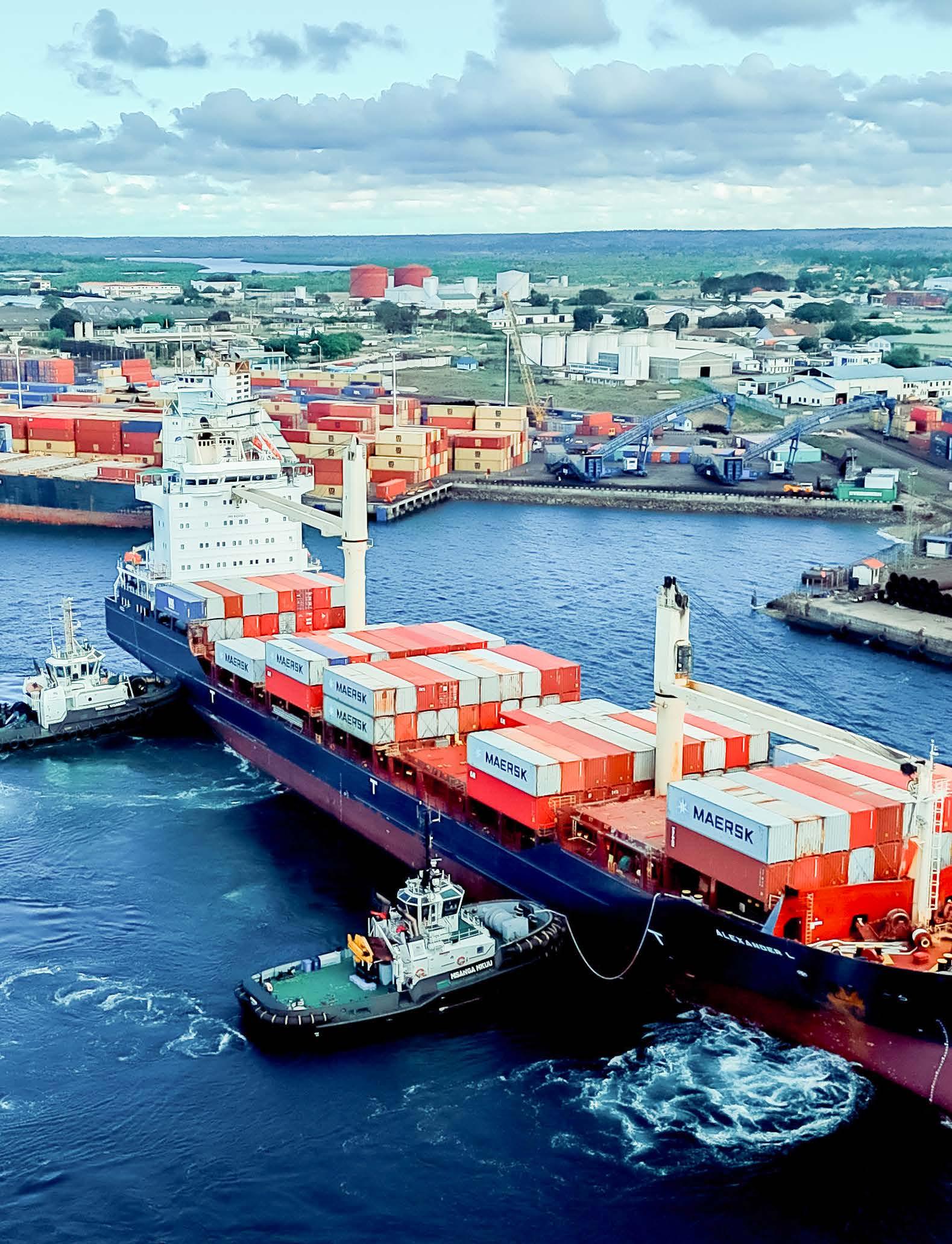

Tanzania Ports Authority

On a mission to lead the regional maritime trade and logistics services of Tanzania towards excellence, the Tanzania Ports Authority (TPA) are vital to developing the country’s role as a leading hub for maritime operations serving the region’s ports and facilities for more than 20 years. Since its establishment, TPA has been delivering vital port operations and developing the essential infrastructure to serve the country’s trade industry, as well as the trade of the surrounding hinterland.
For over two decades, TPA has been operating the ports serving Tanzania and its neighbouring countries via its diverse system of sea and inland waterways across the country. The port, established in 2004 by the Ports Act No.17, today operates as a landlord and operator of the country’s major seaports, as well as many other smaller seaports and lake ports. Across all of its port locations and operations, TPA are delivering worldclass services across Tanzania’s maritime industry, to sustain trade on both a local and international scale. In Tanzania, TPA oversees 3 main seaports, which include Dar es Salaam, Tanga and Mtwara.
Dar es Salaam alone is vital for Tanzania’s international cargo trade, with the port being responsible for handling around 95% of the country’s international trade, with a rated capacity of 14.1 million metric tons of dry cargo, and an additional 6.0 million metric tons of bulk liquid cargo. Due to the port’s significant capacity, 2,600 metres of quay, and 11 deep-water berths, it is the principal port for the country. With the infrastructure to handle large quantities of cargo, the Port of Dar es Salaam today services many key landlocked countries in Africa, including Zambia, the Democratic Republic of Congo (DRC), Burundi, Rwanda, Malawi, Uganda and Zimbabwe. However, even beyond the port’s links with local trade to neighbouring countries, the port is also playing a key role in international markets across places such as the Middle East, Europe, Australia and America.
The Dar es Salaam port is also linked with the Tanga Port, which helps enhance the country’s trade and
maritime operations. The Tanga Port and the various seaports under TPA along the north of the country provide Tanzania with further interconnectedness that continues to help deliver the country as a hub for local and international trade within Africa. In addition to the seaports of Tanzania, TPA also oversees some key lake ports, including the Lake Nyasa Ports, Lake Tanganyika Ports, and the Lake Victoria Ports. These lake ports help to further extend TPA’s trading power across the country and allow it to better position itself as a key shipping country along the East African coastline.
Across these sea and lake ports, TPA are focused on providing the necessary facilities, development and coordination to deliver them as hubs for trade. A significant aspect of this trade is facilitated through TPA’s cargo services, which provide world-class cargo operations supported by the Authority’s highly skilled personnel. The combination of advanced technology and years of expertise has ensured that the port can provide safe, reliable, and seamless handling of maritime cargo, which meets the highest standards across the international cargo sector.
In terms of cargo types, Tanzania sees containerised, break-bulk, dry bulk and bulk-liquid cargoes. Typical dry bulk cargo handled by TPA includes rice, wheat, maize, beans, fertiliser, sugar, cement, sodium nitrate, gypsum, and coal, as well as iron and zinc ores. For break bulk, TPA sees iron, steel, metals, motor vehicle parts, trailers and parts, agri-products, machinery, copper, railway vehicles, tractors and tractor parts, as well as containers. Then for bulk-liquid, the most commonly transported products include crude oil,

Tanzania Ports Authority
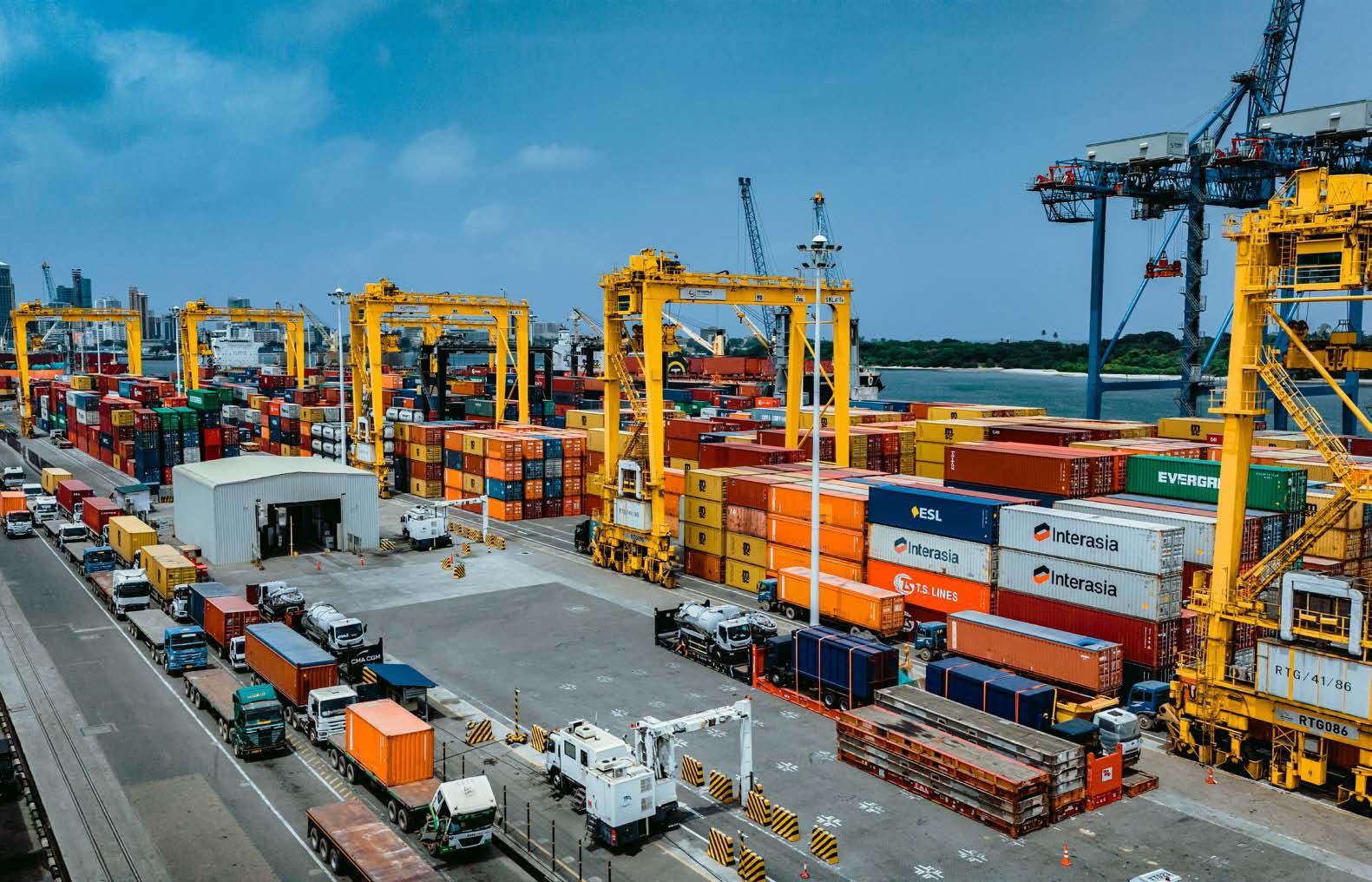
petroleum products, chemicals, liquified natural gas (LNG) and edible oils. These products allow TPA to play a key role in many industries, including food production, manufacturing and even energy development. Therefore, with such a variety of products being moved through the ports of Tanzania, TPA continue to expand its offering to serve these industries on both a local and international scale, bringing with it economic development for Tanzania and the surrounding region.
Across all of TPA’s operations, its stakeholders remain vital to every development. TPA works with government agencies, shipping lines and banks to help deliver the smoothest port experience for customers across all of the ports in Tanzania. By working so closely with such stakeholders, TPA can develop Tanzania’s import and export markets, supported by laws and regulations to deliver world-class operations that are competitive on a global scale. In August, TPA highlighted its commitment to working alongside its stakeholders as it held a Stakeholders Meeting on Cargo Transport Through Central Port. The meeting outlined the steps TPA has taken to improve the infrastructure of Tanzanian ports, including the establishment of better IT systems as part of this. The meeting engaged private sector stakeholders, which included the likes of port operators, to work alongside them to increase the efficiency of handling domestic and international cargo across Tanzania.
The Deputy Director General of the event, Dr Baraka Mdima, outlined the importance of stakeholders participating in the session, as these are essential in understanding the challenges facing the transport sector. By working with these stakeholders, TPA can help deliver more efficient, cost-effective and simplified trade opportunities through the central corridor to deliver significant returns for the ports and the stakeholders. Dr. Mdima also reiterated TPA’s commitment to continuing to work with its stakeholders to ensure the future of the Central Corridor and maintain its role as a modern, efficient trade corridor delivering significant economic development to Tanzania and the surrounding countries.
In July, TPA announced that I had signed an agreement on Standard Operating Procedures (SOPs), which will aid the transfer, storage and transportation of cargo from the Port of Dar es Salaam to the Kwala Dry Port. The agreement involved key cargo stakeholders in the country, including TPA, the Tanzanian Railways Corporation (TRC), and the port operators, DP World and the Tanzania East Africa Gateway Terminal Limited (TEAGTLG). The Director General of TPA, Mr. Plasduce Mbossa, outlined that the agreement is designed to reduce the time it will take to unload cargo at the port, reduce congestion for large vehicles,
A Gateway for Global Trade
increase efficiency and reduce cargo handling costs. Therefore, this agreement outlines the role of each institution across Tanzania’s transportation chain to enhance the overall transportation of cargo from the Dar es Salaam port, highlighting each stakeholder’s role in delivering such a vital transportation development.
Across Tanzania, TPA are providing leading regional maritime trade and logistics services to deliver significant economic benefits for the country and the surrounding region. With the country providing a vital gateway to many neighbouring landlocked countries on the East Coast of Africa, Tanzania is a vital hub for trade, traversing international shipping lines to arrive at one of the many key ports serving the region. In recent months, TPA have highlighted just how valuable cooperation across the country’s entire cargo industry is with the meeting of key stakeholders to deliver Tanzania as a global cargo gateway for Africa. Therefore, with the support of local stakeholders, TPA can continue to develop the country’s maritime sector and deliver it as a vital hub for global trade.

Your Trusted Logistics Partner in Tanzania
Blue Axis Logistics positions itself as a comprehensive logistics partner in Tanzania, equipped to handle end-to-end freight operations—spanning forwarding, customs clearance, warehousing, packaging, labeling, and quality assurance. Their pitch emphasizes professionalism, global connectivity, and a client-first attitude, backed by a valid regulatory license.
If you’d like to explore client case studies, testimonials, or specific figures on their operational reach (e.g. consignments or countries covered), just let me know—I’m happy to dive deeper!
blueaxis.co.tz

FROM FARM TO WORLD MARKETS
10+ Years of Moving Tanzania’s Harvest with Care
agricultural exports, making sure produce gets to global markets fresh, safe, and on time.
Every shipment is a step toward sustainable trade, reduced post-harvest losses, and empowered farming communities, directly supporting the UN Sustainable Development Goals (SDGs).
We Handle Best:
& land • Smooth customs clearance
• Reliable warehousing solutions • Smart packaging & labeling
• Careful quality checks & sorting
With a global reach and strong local expertise, we’ve earned the trust of farmers and agribusinesses alike. Our team combines professionalism with passion, ensuring every shipment is handled with care. Backed by over 10 years of experience, 24/7 support, and full licensing in Tanzania, we delivermore than logistics, we deliver peace of mind.
Looking for a logistics partner or ready to collaborate? Let’s grow together. 24th Floor, PSSSF Twin Towers, Mission St., Dar es Salaam, Tanzania Email info@blueaxis.co.tz Web. blueaxis.co.tz



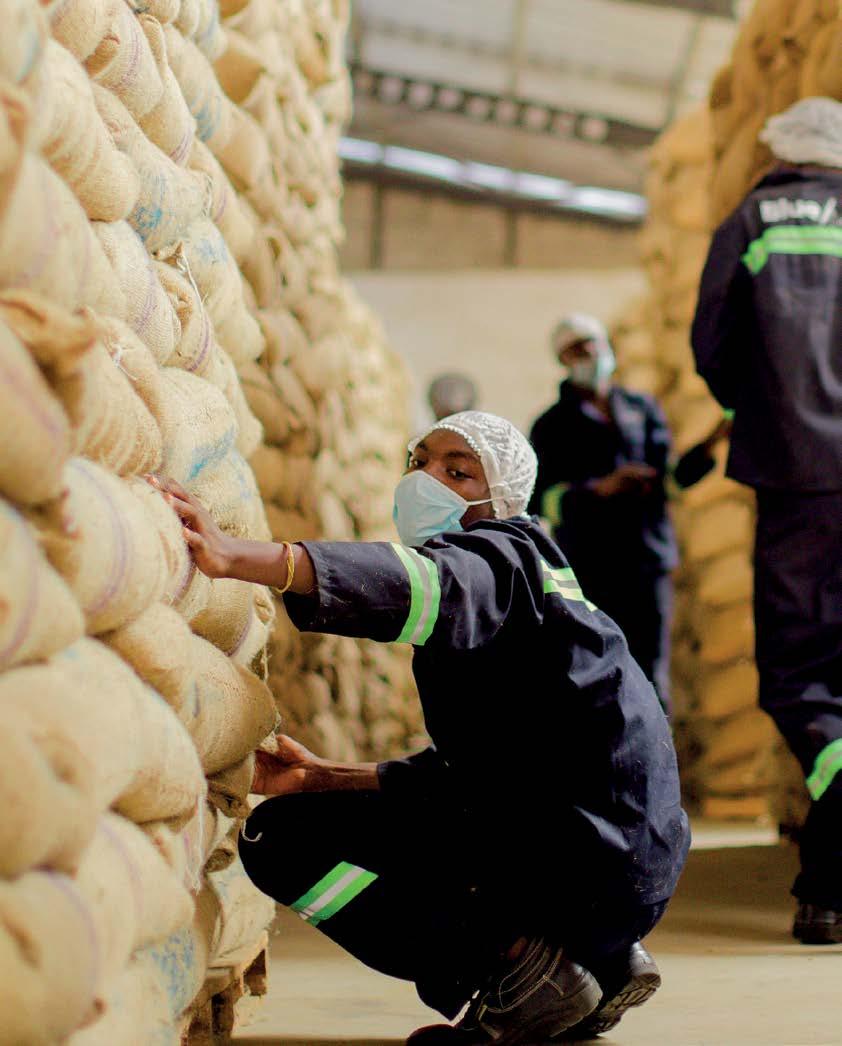



Tanzania Medicines & Medical Devices Authority
Healthcare is one sector where we want to know we’re being looked after; whether from the medicines we take, to the medical devices we use – we want to know that these are regulated to keep us safe and healthy. In Tanzania, the medicines and medical devices industry is overseen by the Tanzania Medicines & Medical Devices Authority (TMDA), which is the executive agency responsible for ensuring the quality, regulation, safety and effectiveness of medicines, medical devices, diagnostics, biocidals, and tobacco products across the country. With a plethora of operations under the Authority, TMDA is committed to delivering transparency and safety across Tanzania’s healthcare sector to protect public health.

Formed under the Ministry of Health in 2003, TMDA is on a mission to protect and promote public health by ensuring the quality, safety and effectiveness of the medicines, medical devices, diagnostics, and other health-related products. To achieve this, TMDA regulates the industry, positioning itself as the leading regulatory authority in Tanzania, ensuring the medicines and devices available across Tanzania are safe, highquality, and effective in their delivery. TMDA was previously known as the Tanzania Food and Drugs Authority (TFDA). However, following an amendment in 2019, the responsibility for regulating the food and cosmetics markets was moved to the Tanzania Bureau of Standards (TBS), leaving TMDA to lead the regulatory works across the country’s medicines and medical devices sector.
With the medical sector being such a vast industry, TMDA’s operations span every aspect of the medicines and medical devices sector, from manufacturing to the delivery and quality checks of such products. Today, TMDA is responsible for regulating the manufacturing, importation, distribution and selling of medicines, medical devices, diagnostics, biocidals and tobacco-related products. Across these products, TMDA are responsible for evaluating and registering medicines and medical products to ensure they meet the required standards before marketing authorisation is permitted. TMDA then oversees the prescribing of quality standards, safety and effectiveness, as well as inspecting manufacturing industries and business premises dealing with regulated products.
Alongside these roles, TMDA assesses the quality, safety and efficacy of controlled drugs by conducting laboratory analysis for regulated products to ensure their quality specifications. Then, to help mitigate medicines or medical devices unpermitted on the market, TMDA also conducts pharmacovigilance of the market to ensure every product meets the high standards and regulations it has set across the country. Thus, with a firm focus on ensuring that the products on the market are safe and effective, TMDA can support the promotion of the rational use of such medical products. A key focus of this promotion is education, as TMDA is passionate about ensuring
Promoting Safety across Tanzania’s Health Sector
the sharing of information amongst its stakeholders and the general public in order to foster a safer and more transparent culture across the medicines and medical devices industry.
For medical devices specifically, TMDA works with technical committees which are made up of experts from academic, industry and research institutes. These experts make up vital committees for TMDA, including the Human Medicine Registration Technical Committee, Veterinary Medicines Registration Technical Committee, Medical Devices and Diagnostics Registration Technical Committee, Clinical Trials Control Committee, Pharmacovigilance Technical Committee and Laboratory Technical Committee. These committees bring experts from across the entire medical industry, and thus can help guide TMDA in its decision-making, especially on complex technical matters, with the overarching goal to ensure the safety and quality of medicines and medical devices across Tanzania.
Under TMDA, there are a plethora of projects that are working with local and global stakeholders
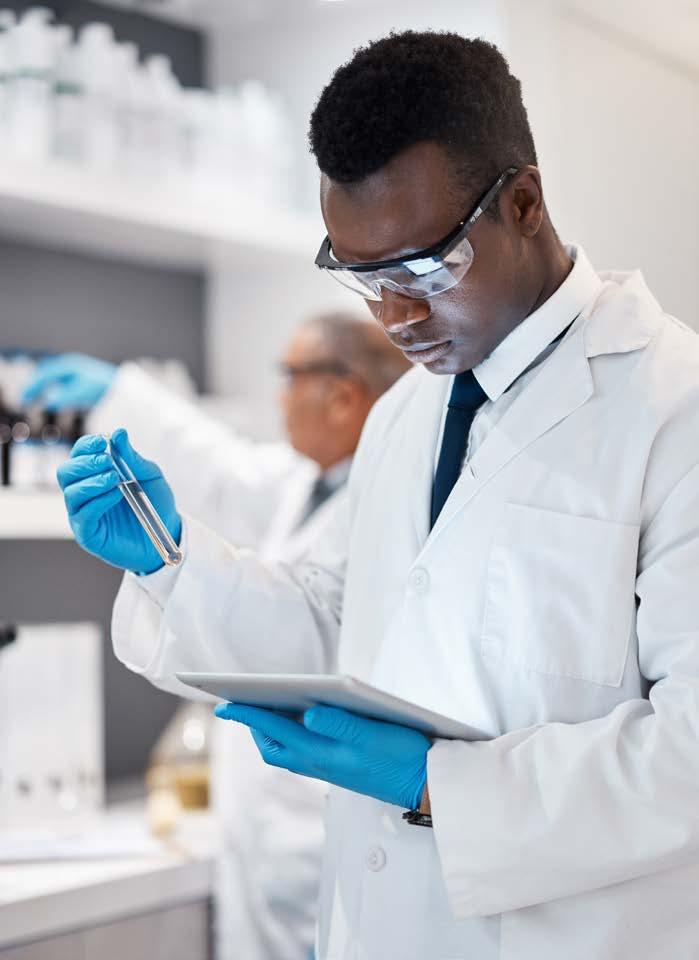
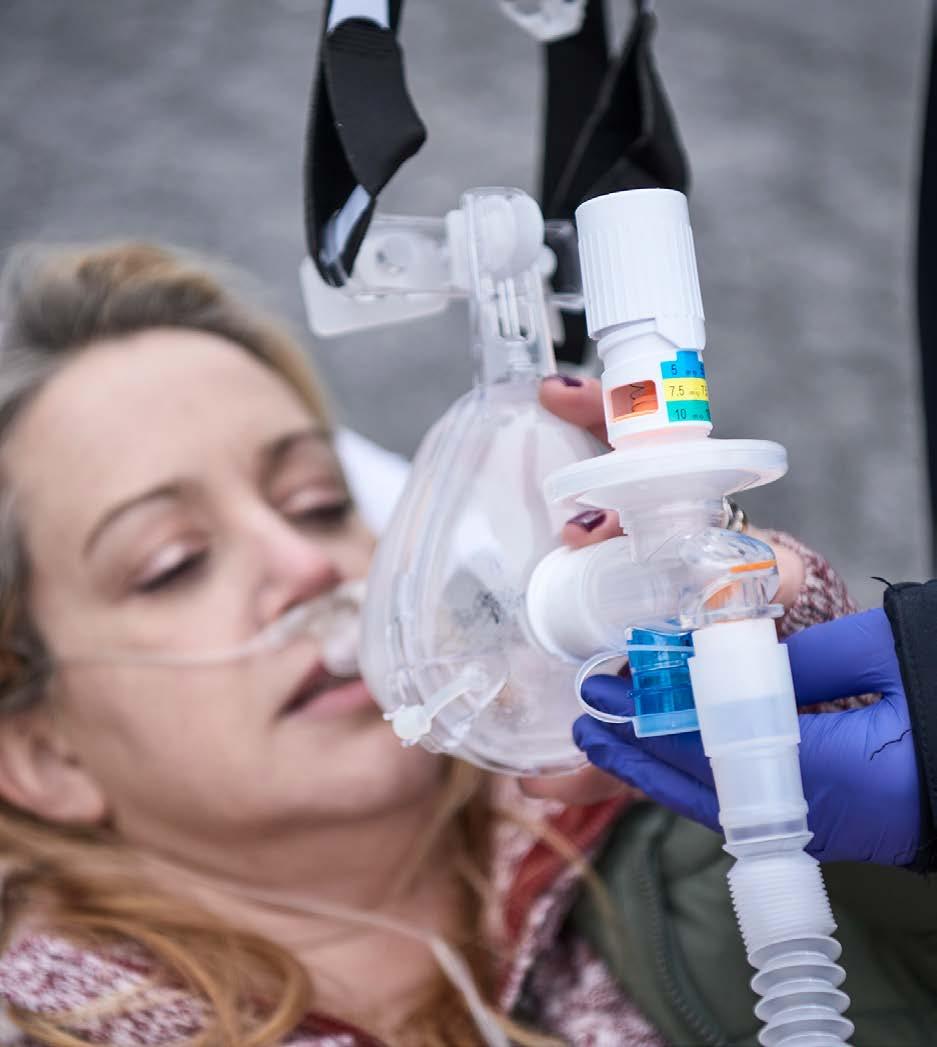

Tanzania Medicines & Medical Devices Authority
Mamujee Products Ltd.
Mamujee Products Lt. is a cosmetics manufacturer based in Tanga, Tanzania, founded in 1997. It produces over 100 beauty, skin-care, hair-care, hygiene and health products under various brands (e.g. Y&O, Mabrook, Stella, etc.), combining innovation with affordability and local manufacturing.
They market both new arrivals and bestsellers, including lotions, body washes, baby care items, fragrances, and repellents.
Mamujee emphasizes quality, accessibility, and being “loved & trusted by families for over 25 years.”
www.mamujeeproducts.co.tz
to enhance the safety, regulation and transparency of the medicines and medical devices sector. A key project focused on this is the Building Resilient Research Ethics, Diagnostics and Medicines (BREEDIME) capacity during routine and public health emergency periods. TMDA has been the Scientific Lead on the project since July 2023, which is a 36-month project funded by EDCTP Global Health. The project aims to strengthen clinical trials oversight, ethical review processes, and postmarketing surveillance of therapeutics, vaccines, diagnostics, and critical medical devices. Thus, the project hopes to establish a regulatory ethical framework for health data access and sharing in normal and public health emergency periods. By doing so, the project aims to strengthen the capacity for post-market evaluation and appraisal of medicines and medical devices.
The project is implemented by a consortium of 9 members, including Zanzibar Food and Drugs Agency (ZFDA), Rwanda Food and Drugs Authority, Kilimanjaro Christian Research Institute (KCRI), Muhimbili University of Health and Allied Sciences






Promoting Safety across Tanzania’s Health Sector
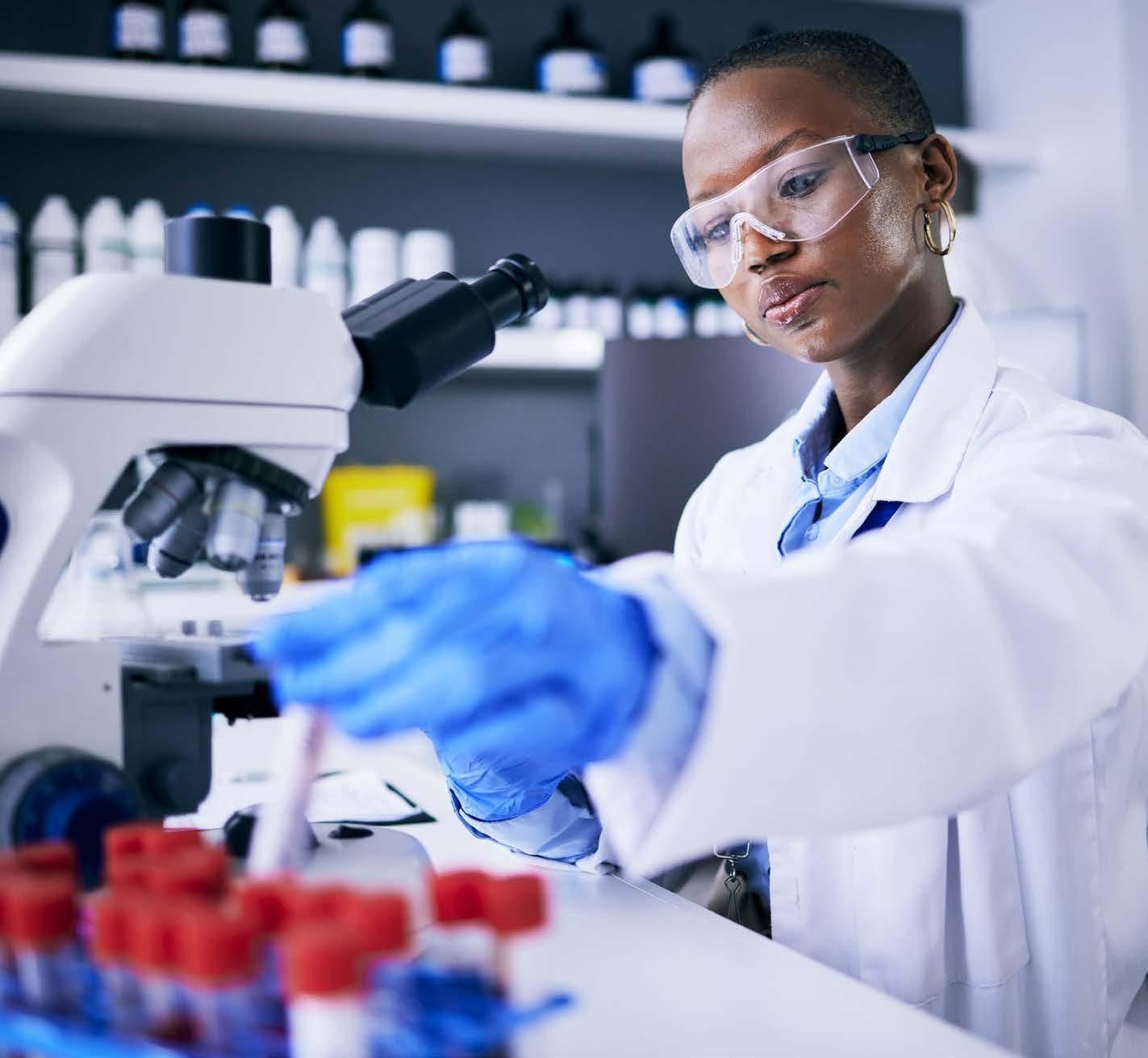
(MUHAS), National Institute for Medical Research (NIMR), Zanzibar Health Research Institute (ZAHRI), the University Court of the University of St. Andrew (UStAn) from the United Kingdom and Karolinska Institutet (KI) from Sweden. At present, the project has achieved 19 of its total 26 deliverables, with the final still being developed by the consortium alongside TMDA.
In 2024, TMDA joined the African Union Smart Safety Surveillance (AU-3S) project. The project is focused on pharmacovigilance systems across Africa and hopes to deliver an African database where reports of adverse drug reactions or adverse events following immunisation can be shared to enhance signal detection and evidence generation across Africa. The project began in July 2024 and will run through to the end of June 2026. Once completed, the project hopes to reinforce reporting of adverse events by the community and healthcare providers, improve investigations
and assessments of serious adverse events, and strengthen signal detection. From this, it can enforce compliance and deliver pharmacovigilance regulation by marketing authorisation holders, whilst strengthening its pharmacovigilance centres at a regional level.
Across all of the operations under TMDA, there is a primary focus on ensuring the safety and regulation of Tanzania’s medicines and medical device industry. Through the delivery of vital regulations, frameworks and projects that are helping deliver a safer medicines and medical devices industry, TMDA can promote the role of the Tanzanian healthcare sector as one focused on supporting public health. Therefore, with TMDA playing a key role in many projects set on propelling Tanzania’s medical industry towards a safety-focused future, we look forward to seeing how it continues to deliver the vital framework for medicines and medical product regulation over the coming years.



For the last 25 years, the Qatar General Electricity and Water Corporation, otherwise known as KAHRAMAA, has been the sole transmission and distribution system owner and operator for the electricity and water services in Qatar. With its customers placed at the heart of its decision-making, KAHRAMAA is focused on delivering high-quality and sustainable electricity and water supplies to meet its customers’ utility needs in a reliable, efficient and responsible manner. In recent years, KAHRAMAA’s development has focused on the continual innovation of Qatar’s electricity and water resources, whilst meeting global and national sustainability goals for the betterment of Qatar’s future.
With water and electricity resources being so vital to our everyday lives, KAHRAMAA are passionate about ensuring that those living across Qatar have reliable access to these resources every day. Since it was established in 2000, KAHRAMAA has been responsible for regulating and maintaining the supply of water and electricity across Qatar. To achieve this, KAHRAMAA has placed development and progress at the heart of its operations to deliver vital utilities across the country, underpinned by its commitment to remaining a responsive, transparent and customer-focused company that excels in providing cost-effective electricity and water supplies across the country.
The central role of KAHRAMAA is the acquisition, construction and operation of water and electricity transmission and distribution networks across the State of Qatar. Within this central role, KAHRAMAA delivers a range of services spanning from formulating power and water purchase agreements, which provide the necessary technical and corporate support for the establishment of generation and desalination ventures, to delivering the vital infrastructure needed to distribute the resources across the country. Alongside this, KAHRAMAA is constantly working to establish innovative and forward-thinking plans and programs
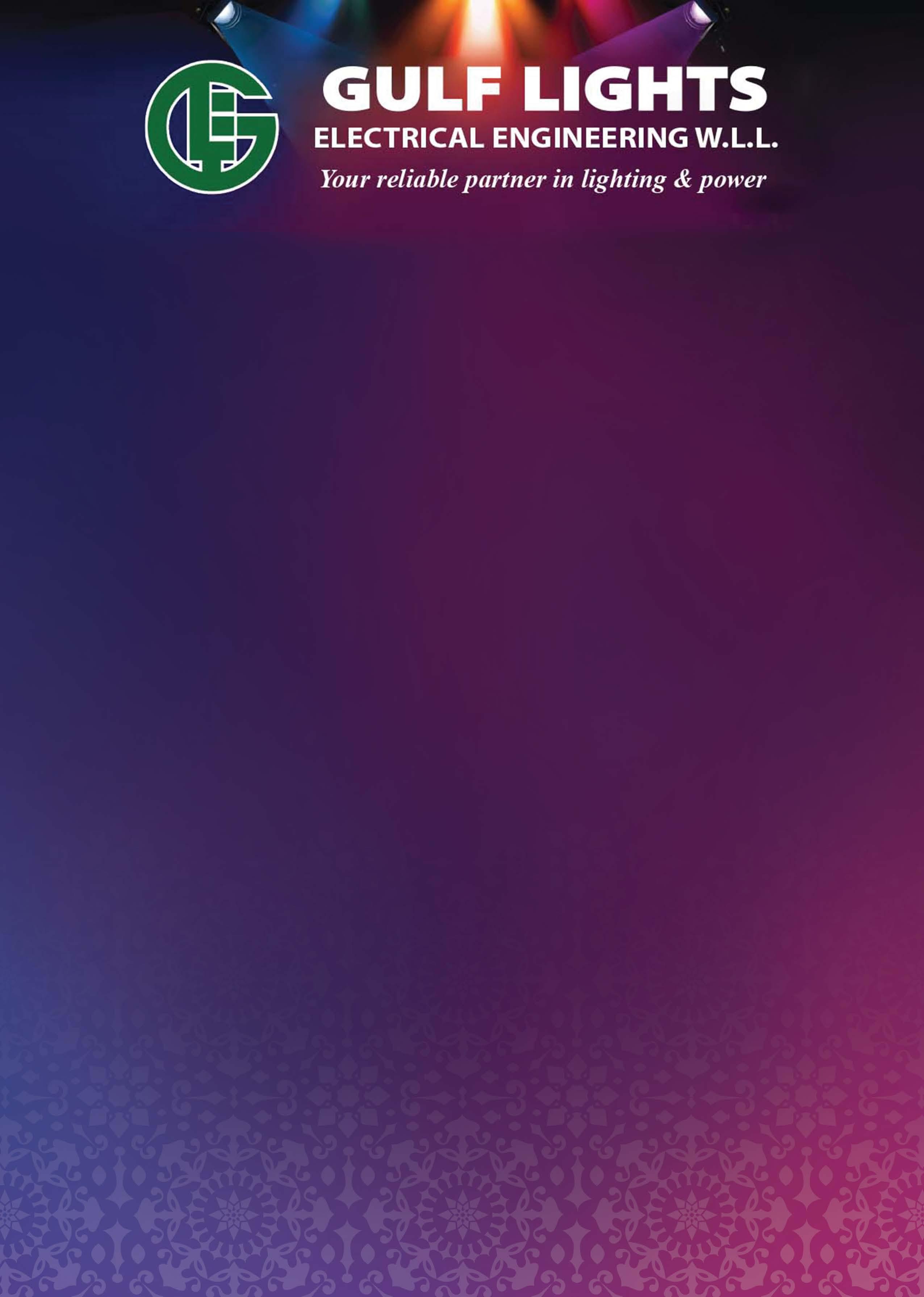
DIVISIONS
Electro-Mechanical Division :GRADE-A Contractor to carry out All MEP Installation & Maintenance Works in Schools, Hospitals, Residential Towers, Commercial Complexes & Industrial projects in Oil/Gas.
Trading Division, Solution provider of :
Wide range of light fixtures for: Industrial commercial, Decorative, Internal & External, Street Lighting, Hazardous area Lighting (zones 0, 1 & 2).
Dimming & Home Automation System, Transformers, HV/LV Switchgears, Motor Control Center & Busduct System, Generators, Central Battery System & UPS System.
Chillers, AHUs, FCUs, CRAC Unit, Ecology Unit, Insulation, Pre-Insulated Duct/Pipe, Pumps, S. Boilers, Water Heaters & Valves.
Engineering & Maintenance Division :Rewinding of Heavy Duty Motors, Generators, Transformers and All Types of Rotating Equipments Electrical & Mechanical Repairs.






























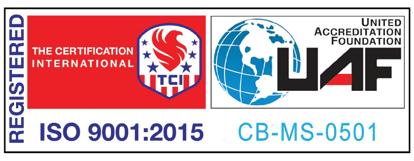


Whitecroft Lighting

that will work towards the development of Qatar’s water and electricity networks for the future. Across all of these operations, KAHRAMAA outlines the vital regulation, standards and codes of practice to help it deliver electricity and water supplies in an efficient, sustainable and safe way.
As the demand on water and electricity resources of Qatar has continued to grow over the last 25 years, KAHRAMAA has continued to expand its operations to meet the demand for these resources, and in 2014 it outlined a new strategy and implementation approach that would help its achieve its long-term strategy to increase the performance of the company and deliver it as a globally leading utility company that adopts the best-in-class transmission and distribution practices for the benefit of all those across Qatar. This development works in line with the Qatar National Vision 2030, which was outlined in 2008 as a transformative roadmap to sustain long-term social and economic prosperity for Qatar. This includes a range of objectives and goals that aim to meet the needs of the current generation, whilst working towards the future through initiatives towards infrastructural development, sustainable innovation and the modernisation of Qatar.
For its water networks, KAHRAMAA have been replacing old water pipes with new piping that meets globally recognised specifications, whilst
installing speed pumps to help water get pumped to homes more directly. For its electricity resource development, KAHRAMAA has been working to increase the electrical capacity and distribution across the country. In 2024, KAHRAMAA increased the electrical load of its network from 6255 Megawatts (MW), as reached in 2012, to 10220 MW. This expansion helps KAHRAMAA maintain its role in meeting the demand of customers across the country through a network that can handle a much higher electrical network load than in recent years.
The electricity network of Qatar has seen a significant demand increase in recent years, and so one of the central missions of KAHRAMAA is to deliver a major expansion to the electricity network of Qatar that can meet the rapidly growing demand for today and develop its infrastructure to handle the growing demand for energy in the future. In May, KAHRAMAA announced that it had signed 4 strategic contracts to develop the electrical infrastructure of Qatar to meet the growing demand for electricity across the country. The contract was signed with Qatari companies Elsewedy Cables Qatar Company, Voltage Engineering Ltd. Co. W.L.L, as well as Best and Betash Consortium from Turkey, and Taihan Cable & Solution from South Korea. The contracts have a joint value of almost 3.1 million Qatari Riyals and will deliver 7 high-voltage substations and the associated underground cables and overhead lines to connect these substations to the existing systems. This new network will span 212 kilometres and will bring significant development to Qatar’s electricity distribution system.
25 Years of Sustainable Energy Delivery
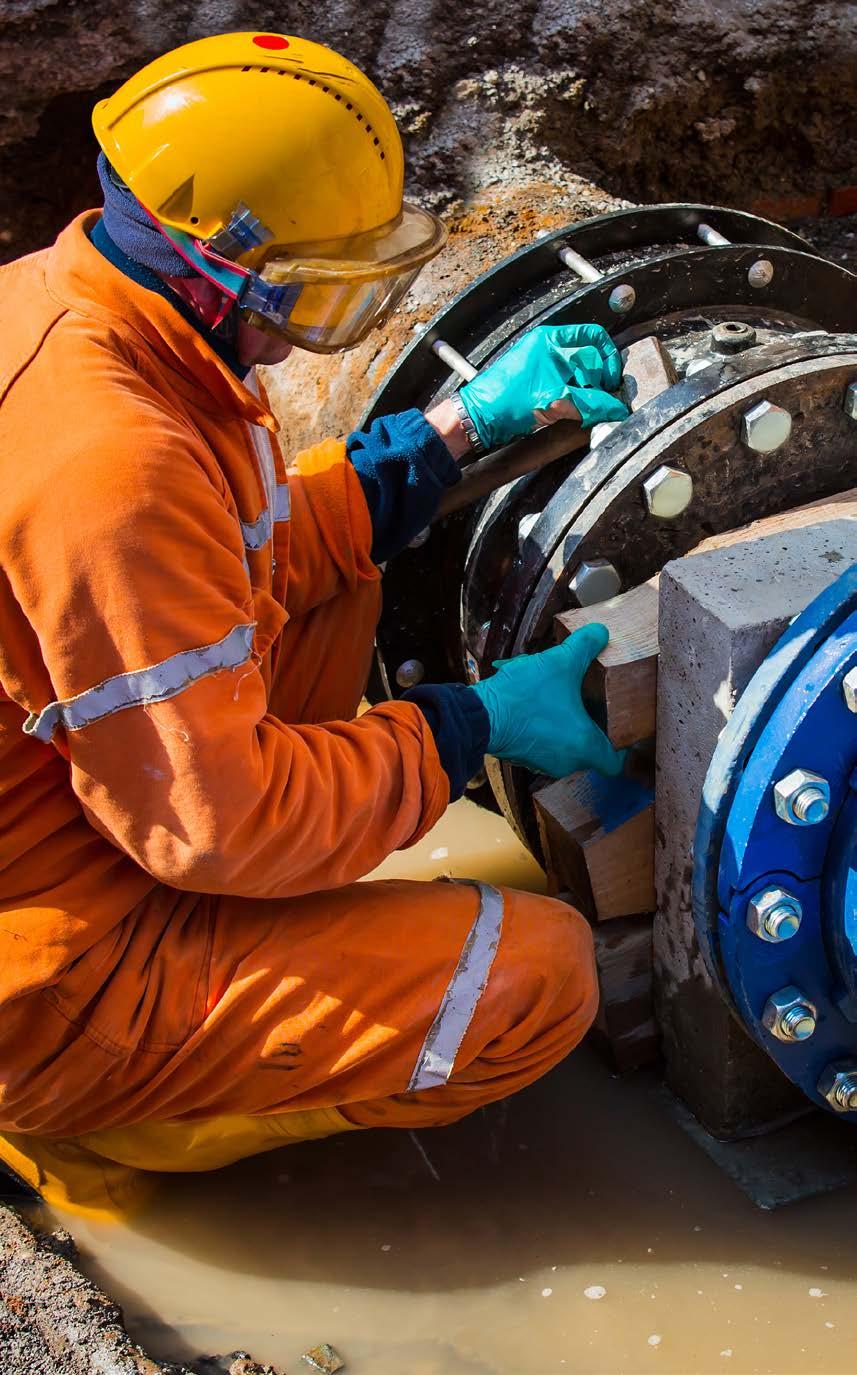
Following the announcement of these contracts to expand the country’s electricity network, the president of KAHRAMAA, H.E. Mr Abdulla Bin Ali AlTheyab, outlines, “We are proud to collaborate with highly qualified national and international companies, and to stress our commitment to strengthening strategic partnerships and supporting the local economy. The awarding of the largest share of these contracts to Qatari companies reflects our great confidence in the capabilities of the local private sector and its pivotal role in achieving our development vision and achieving Qatar National Vision 2030.” These comments highlight the vital role KAHRAMAA takes in expanding the country’s electricity network by working with stakeholders across Qatar to deliver a more expansive electrical system, whilst providing

significant benefits for the local businesses and the economy in the process.
For Qatar, KAHRAMAA is the backbone of the country’s electricity and water services, and this is a role that the company is committed to delivering with a customer-focused vision. With the help of its development and distribution network, KAHRAMAA hopes to deliver itself as a global leader in customercentric performance, innovation, environmental sustainability and social responsibility. With the current expansion of the water and electricity network, we look forward to seeing how KAHRAMAA continue to lead the way across the country’s utility network, supported by its vital development projects and innovative solutions to make water and electricity accessible, reliable and cost-effective for all.
Written by Carley Fallows
Climate Engineering: Could It Do More Harm Than Good?

The temperature of the globe has continued to rise, and with it, we’ve seen an increase in extreme weather events. These weather events include wildfires, flooding and droughts, many of which have been exacerbated by the rising temperature of the planet. To mitigate this, governments across the world have been working towards net-zero goals, with many countries hoping to reach net-zero by 2030. However, in recent years, the term ‘geoengineering’ has been continually popping up in the climate change discourse and has become one of the most controversial areas of climate research.
Geoengineering is a term that describes the deliberate intervention into the Earth’s climate system in order to counter the impact of global warming. However, geoengineering remains one of the most debated areas of climate research, with many researchers believing some techniques could have more harm on the planet than good, and ultimately distract from the larger global priority to reach net zero.
Geoengineering techniques are often broken down into two groups: Carbon Dioxide Removal (CDR), which removes carbon dioxide from the atmosphere and stores it in geological, terrestrial or oceanic reservoirs, and Solar Radiation Management (SRM), which aims to reflect some sunlight and heat back into space. Some types of geoengineering are encouraged by researchers and climate scientists, including the planting of trees or the use of machinery to remove planetwarming carbon dioxide from the atmosphere. These measures help to balance the greenhouse gases produced by humans to reach net zero. We saw this with Climeworks, which developed the first and largest direct air capture and storage plant, allowing for carbon dioxide removal to be achieved on a large scale. However, many argue that most
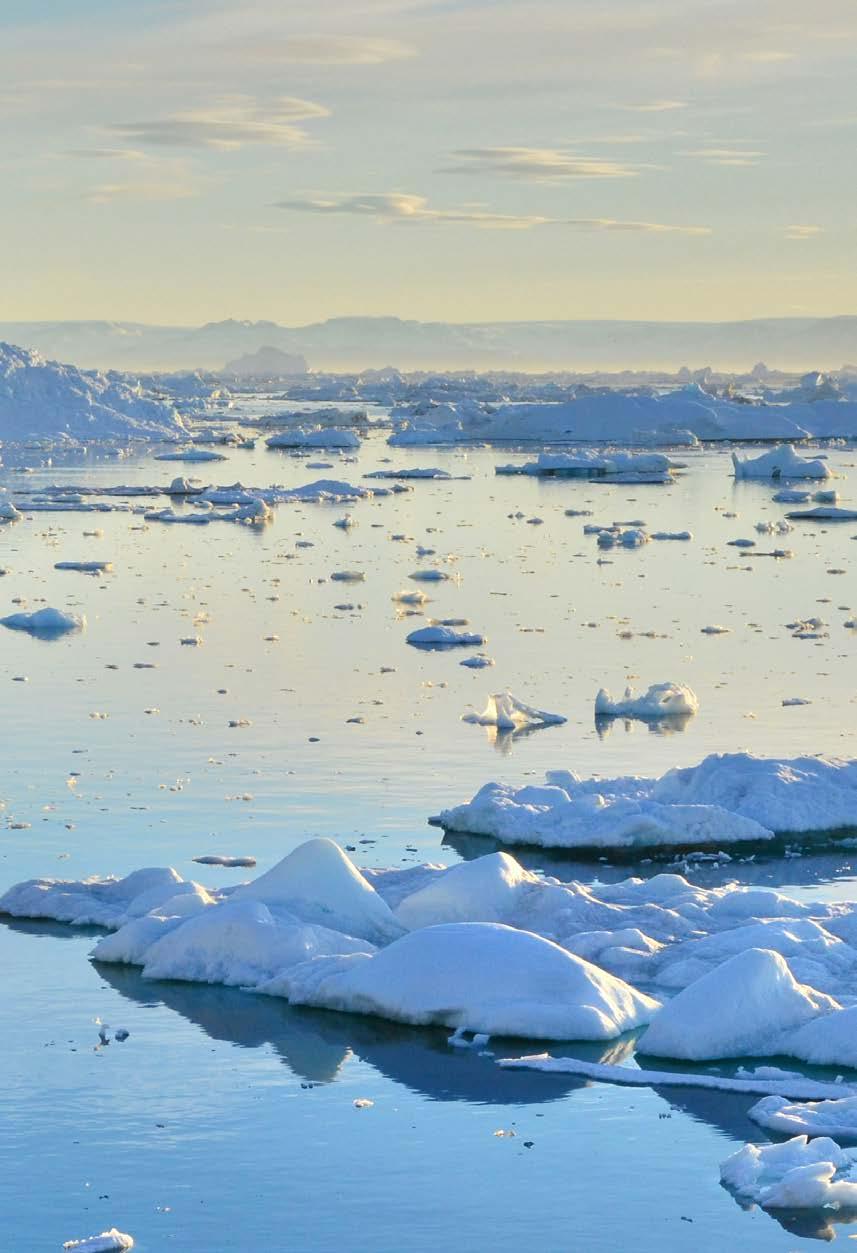
geoengineering techniques are often difficult to replicate on a large scale or could cause other destructive effects than good.
Some of the most common geoengineering techniques that face criticism are techniques to thicken sea ice or release reflective particles into the atmosphere. Whilst these techniques in theory might seem like a good idea, many researchers highlight that they aren’t feasible and would require significant funding and time to achieve, something that the world is battling against as the temperature of the world continues to rise at a rapid pace. To cover Arctic sea ice with seawater to thicken it during winter and help it maintain its survival in summer, it would require a significant number of pumps to make this even remotely possible. Some studies suggest that to cover just 10% of the Arctic ice, around 20 million seawater pumps would be required, which is not a feasible solution.
Other techniques include marine cloud brightening, which outlines the spraying of sea salt and similar particulates into marine clouds to increase their reflectivity and block incoming solar radiation. This technique was actually used in Australia to help reflect solar energy onto the waters surrounding the Great Barrier Reef in an

effort to mitigate coral bleaching from the rising sea temperature. However, research into the role of cloud brightening suggests that whilst target interventions may lower the temperature in one area, it could lead to negative effects to another.
However, the central argument against geoengineering techniques is that they distract from the global shift we need to make towards net zero to limit the cause, and not just the effects of global warming. Whilst some geoengineering techniques might be effective, they should not distract us from policy changes needed to move toward a net-zero emission future, where we are limiting our environmental impact on the world.
Overall, geoengineering is an interesting development for climate research and one that does need valuable research to help us better understand how we could reverse some of the effects of global warming. However, climate scientists urge that these techniques should not take away or be utilised in place of net zero targets, as these measures are the most crucial way that we can achieve a more environmentally friendly future.
https://www.bbc.co.uk/news/articles/ c5yqw996q1ko
https://www.techethos.eu/climateengineering/
https://climeworks.com/plant-orca
https://www.theguardian.com/ environment/article/2024/jun/21/climateengineering-off-us-coast-could-increaseheatwaves-in-europe-study-finds


Seatrium Limited
With over 60 years of experience in the energy and marine design and construction sector, Seatrium Limited (Seatrium) delivers innovative engineering solutions that span across the development of offshore platforms, rigs, floating vessels, and specialised vessels, as well as in its delivery of repair, upgrading and conversion services. With these extensive solution offerings, Seatrium serves the maritime and oil and gas industries well, positioning itself as a premier global player offering solutions that are underpinned by the company’s commitment to high standards, safety, sustainability and performance. With such a pivotal reputation within the energy and maritime sectors, Seatrium is now a leading engineering company operating across the world.

The Seatrium we know today was formed when Sembcorp Marine and Keppel Offshore & Marine, two heavyweights in the engineering sector, came together to form a single group that would harness both companies’ extensive expertise and knowledge in the industry. Together, these companies hoped to deliver leading solutions that could better serve their customers and stakeholders by leveraging the synergies between the two companies. Thus, Seatrium was formed in 2023, delivering high-quality and high-performance engineering solutions that are purpose-built to meet its customers’ needs. This innovative approach ensures that Seatrium can continue to work with its clients to develop offshore and maritime solutions that meet their specific needs, enhancing global energy and maritime sectors, whilst solidifying Seatrium’s place as a leading engineering company across the world.
Today, Seatrium’s operations span across the world with the company operating shipyards, engineering centres and technology facilities in places such as Singapore, Brazil, China, India, Indonesia, Japan, Malaysia, the Philippines, Norway, Saudi Arabia, and the United Arab Emirates, the United Kingdom and the United States of America. Across these hubs of operations, Seatrium is set on delivering vital solutions that explore new spaces, technologies and applications even under the most challenging of circumstances. With innovation at the heart of its development, Seatrium’s key business segments include oil and gas new builds and conversions, offshore renewables, repairs and upgrades, and new energies, with a growing focus on sustainability.
For the oil and gas sector, Seatrium delivers complex rigs and turnkey solutions, which are designed to harness the global network to deliver vital energy developments. Its products include the new builds and conversions for Floating Storage and Offloading (FSO) units, Floating Production and Storage (FPSO) Units, Floating Drilling, Production, Storage and Offloading (FDPSO) units, and Mobile Offshore Production Units (MOPUs). In addition to this, Seatrium also delivers gas terminals, Floating Liquefied Natural Gas (FLNG) units, Floating Storage Regasification Unit (FSRU) and Gravifloat solutions, as well as Offshore Oil and Gas Fixed Platforms.

Your One-Stop Solution for Advanced Protection Needs
At Best Technology, we are passionate about innovation and committed to safeguarding life, assets, and the environment. With years of expertise, we’ve emerged as leaders in providing cutting-edge protective solutions.
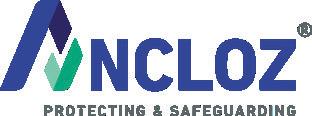
PROUD SUPPLIERS OF ANCLOZ PRODUCTS:
Ancloz Armourflex: Flexible, removable Passive Fire Protection (PFP) Jackets
Ancloz Androflex: Flexible insulation covers for superior thermal performance
Ancloz Audioflex: Flexible acoustic insulation covers for noise reduction
Designed to protect ESDVs, flanges, and other critical components on FPSOs and industrial sites.
Why
Best Technology Pte Ltd?
Removable: Easy maintenance with hassle-free removal and reinstallation.
Lightweight & Intuitive: Simplified installation, reducing downtime.
Customisable: Tailored to exact site requirements and project needs.
Service & Quality: We pay attention to everything - our product, customers, engineering
CERTIFIED BY







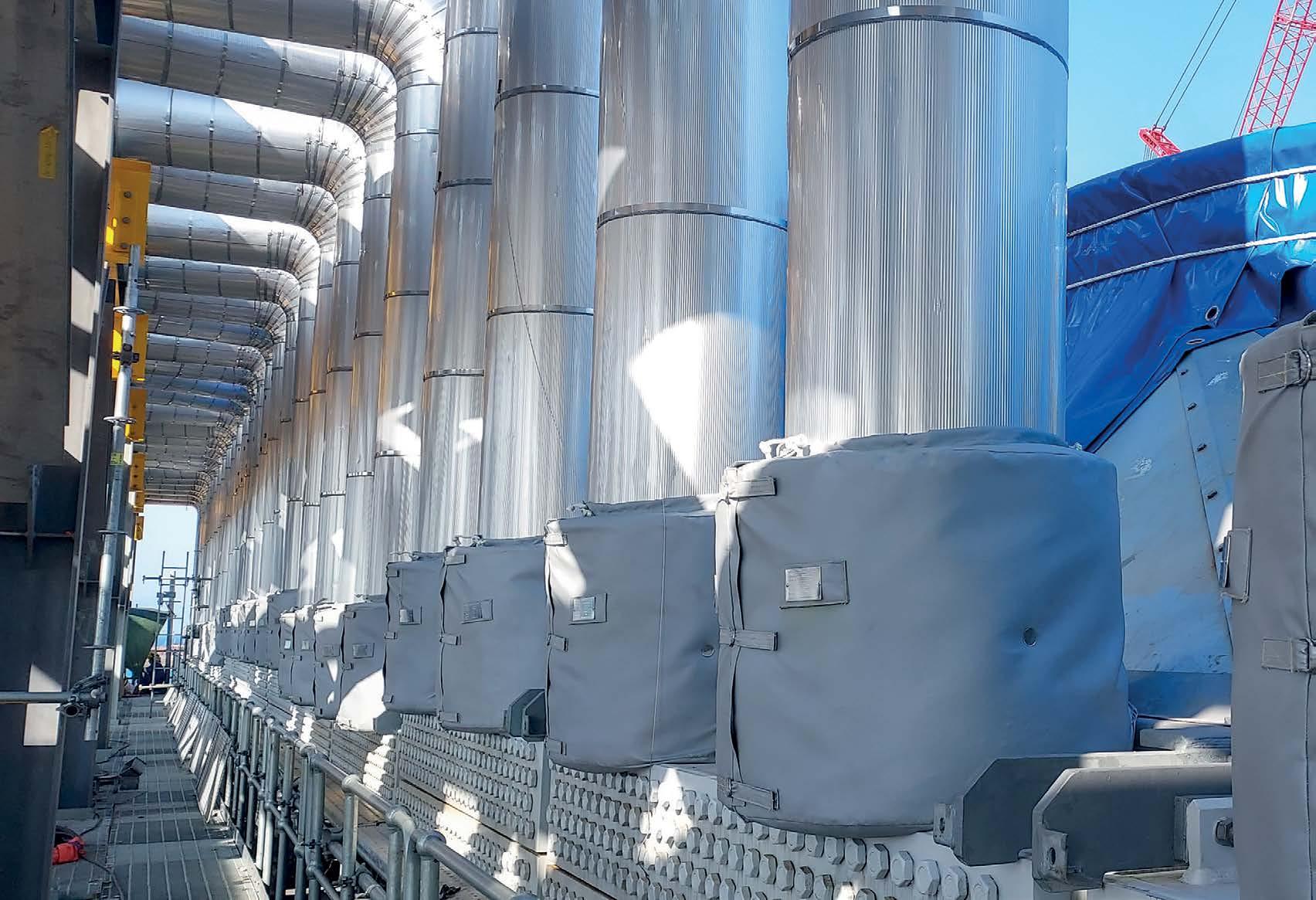
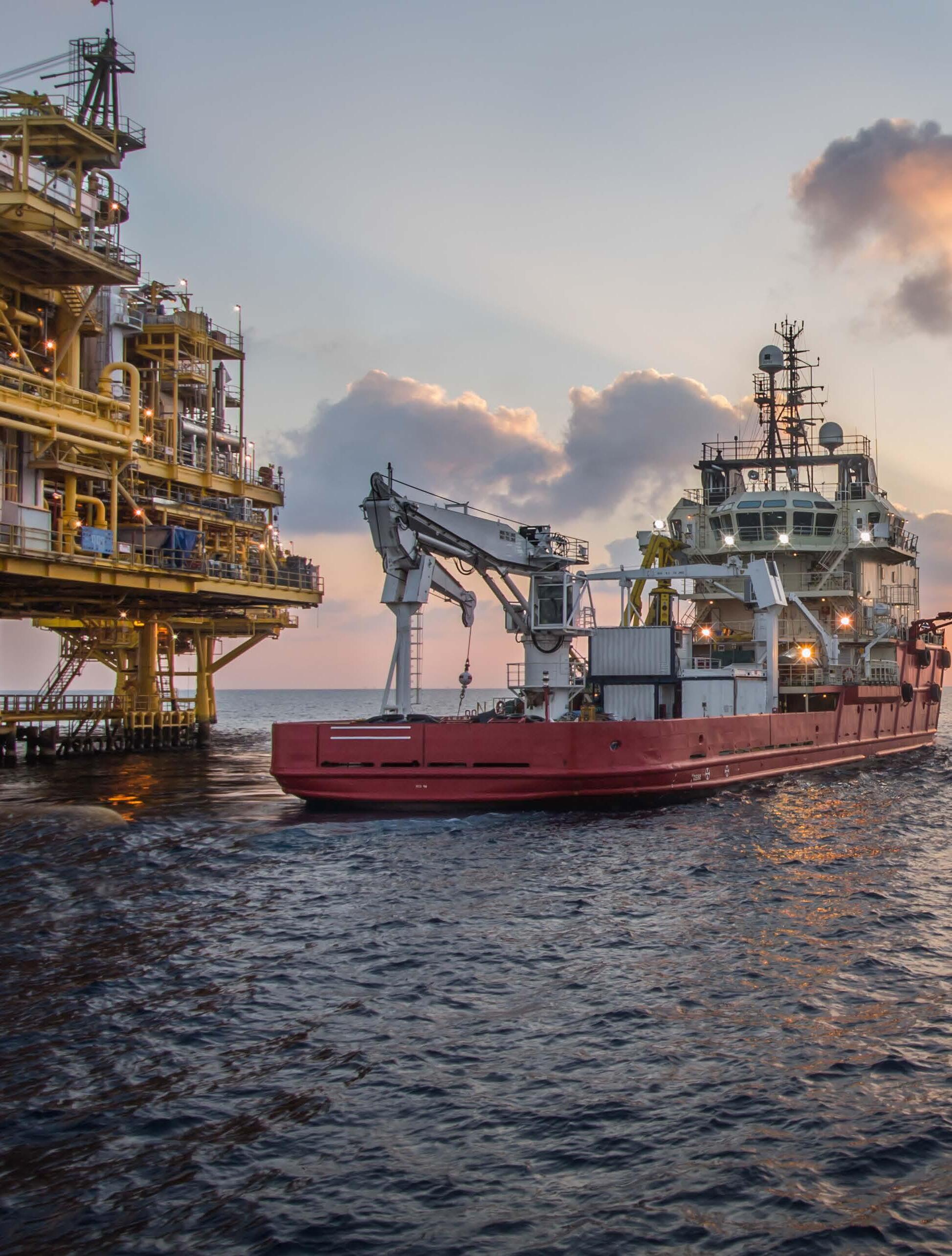
Seatrium has already shown its expertise in this field, with the development of Shell Vito RPF (Regional Production Facility), a deep-water floating production unit that is delivering oil and gas in the Gulf of Mexico. The unit was delivered in late 2021 and is a compact and efficient solution that incorporates advanced technology. Shell Vito RPF was one of the first of two new build FPUs Seatrium has delivered and will provide a great model for future compact, efficient FPU developments within the deep-water sector.
In July, Seatrium further cemented its place as a leading FPSO provider across the world with the delivery of PETROBRAS 78 (P-78) to Brazil’s national oil company, Petróleo Brasileiro S.A. (Petrobras). P-78 delivers a production capacity of 180,000 barrels of oil per day (bopd), 7.2 cubic metres (mcbm) of gas per day, and provides storage capacity for 2 million barrels of oil. The FPSO will be deployed across the Búzios Field, which is one of the most prolific oil and gas deposits offshore Brazil, providing essential oil and gas production for Brazil’s energy sector. P-78 ranks among the largest in the global operating
fleet of FPSOs, highlighting Seatrium’s engineering expertise and innovation in delivering the vessel to support the energy sectors across the world. In fact, Seatrium has previously delivered FPUs, FPSOs, FSRUs, drill rigs and accommodation vessels to Brazil’s energy sector already, highlighting its robust relationship with the country as a leading engineering solution provider.
Another key sector of Seatrium’s business is focused on offshore renewables and delivering new energy. For this, the company delivers turnkey solutions including fixed platforms, offshore wind and new energy solutions that focus on being cost-effective and highly adaptable, whilst also meeting the highest of technical specifications for global clients. Seatrium delivers offshore wind farm fixed platforms, including High Voltage Direct Current (HVDC) converter stations, High Voltage Alternating Current (HVAC) substations and wind turbine foundations. In addition to this, Seatrium is also focused on delivering Wind Turbine Installation Vessels (WTIVs), Floating Offshore Wind Turbines (FOWTs) and Floating Wind-HVDC and HVAC stations.

Seatrium Limited
This focus on delivering engineering solutions for the offshore renewables and new energies sector highlights Seatrium’s commitment to delivering designs that are helping customers across the world to meet their sustainability goals, and in the process, solidifying Seatrium’s role as a key provider of solutions that are designed with sustainability and emission reduction in mind.
Aside from its role in the offshore energy sector, Seatrium also provide specialised shipbuilding services to deliver high-performance specialised vessels that are designed with the global energy transition and decarbonisation in mind. These vessels are ‘future-proofed’ utilising Seatrium’s award-winning, high-performance and specialised expertise in vessel construction to deliver vessels that meet the highest of technical specifications for clients across the globe, both for today and for the future. However, alongside its development of new vessels, Seatrium is also passionate about repairing and upgrading existing vessels. For this, the company has developed strong relationships
with its clients to repair, refurbish, retrofit and extend the life of existing vessels, including FPSOs, FSOs and FSU units. This focus on refurbishment and repairs to existing vessels helps to promote sustainability by utilising existing vessels rather than developing brand new ones. Ultimately, this helps to extend the lives of vessels already in operation or give them a new purpose to limit the necessity for new vessels to be made to support the planet, whilst saving its customers both money and resources.
In August, Seatrium signed a Letter of Intent (LOI) with Karpowership for the development of 4 New Generation Powerships, with the adoption of two additional units. Karpowership will deliver the hulls and key equipment for the powerships, where Seatrium will complete the bulk of the mechanical and electrical equipment integration, mechanical completion and pre-commissioning work. The agreement also outlines the conversion, life extension and repairs to three existing LNG carriers to deliver them as FSRUs. The LOI marks a milestone
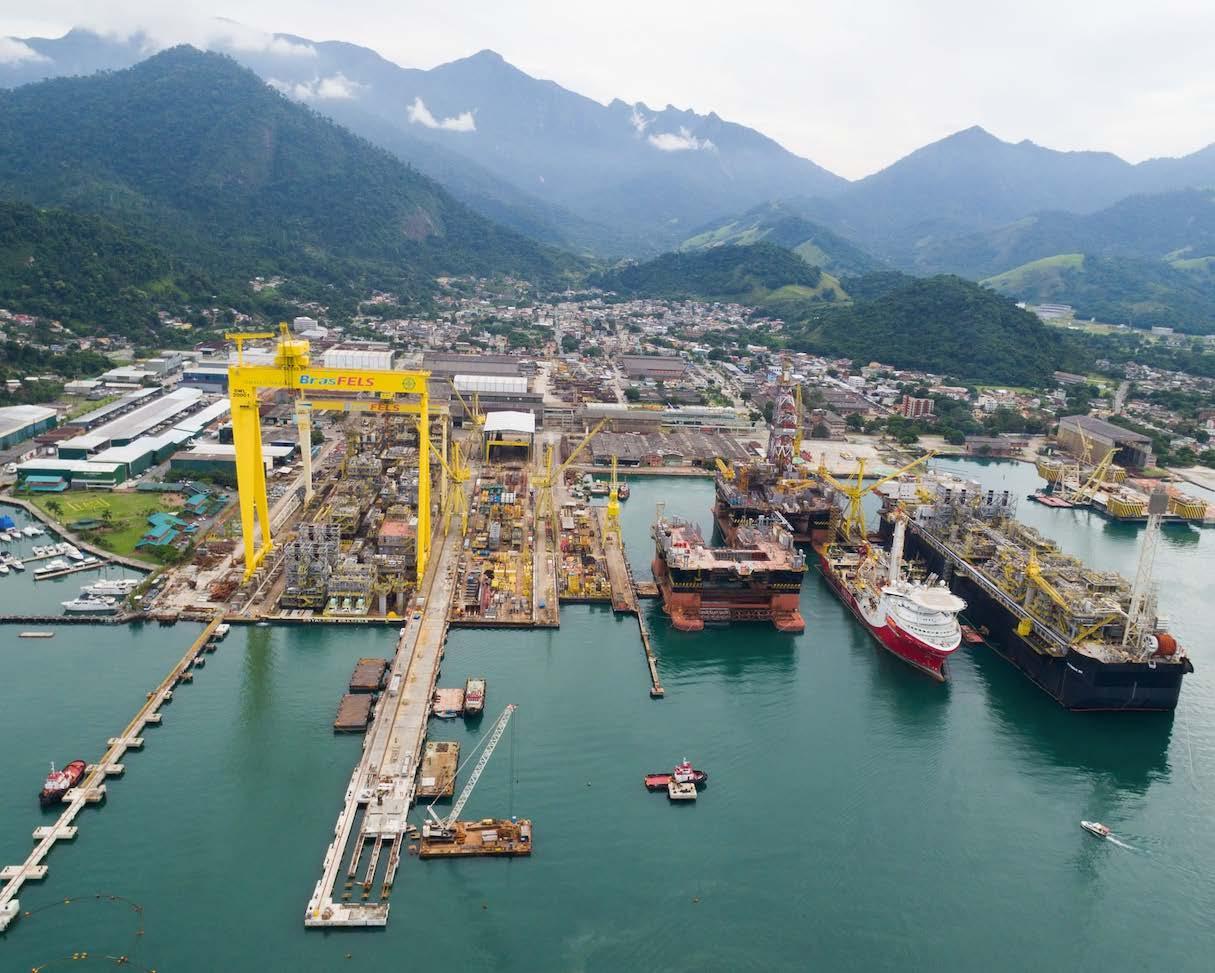
agreement between Seatrium and Karpowership and deepens the strategic partnership between the two towards delivering more sustainable, mobile and scalable energy solutions for the future.
Alvin Gan, Executive Vice President of Repairs and Upgrades at Seatrium, outlined the following announcement: “This LOI marks a pivotal step in our journey to build a global franchise in floating power infrastructure. Our successful collaboration with Karpowership goes beyond FSRU conversions – its about enabling energy access through innovative maritime platforms. With four FSRUs delivered, a fifth due later this months, and two more underway, we are proud to be a long-term trusted partner in delivering greener energy and sustainable solutions; through a variety of innovative solutions in new generation powerships, FLNGs, floating battery, floating data centres and water de-salination vessels. These projects demonstrate our engineering excellence and our commitment to supporting the energy transition”. Gan’s comments highlight just how valuable this LOI is in strengthening Seatrium’s
Engineering Excellence
position as a leading engineering and development company for the energy sector. By working with other leaders in the maritime construction and engineering sector, such as Karpowership, the two can leverage their expertise to deliver more sustainable, efficient and reliable power ships for the future of energy development.
Across Seatrium’s operations, there is a primary focus on delivering engineering expertise that can harness the energy and maritime sector, whilst working to do this in the most sustainable way possible. With sustainability taken into consideration across every single development or redevelopment, Seatrium can play a valuable role in helping its customers deliver the vital resources needed for operations, whilst meeting global sustainability goals. With a plethora of projects and developments under the company’s belt, it’s no surprise that Seatrium is now a leader in the global offshore, marine and energy sectors, focused on engineering for the future.


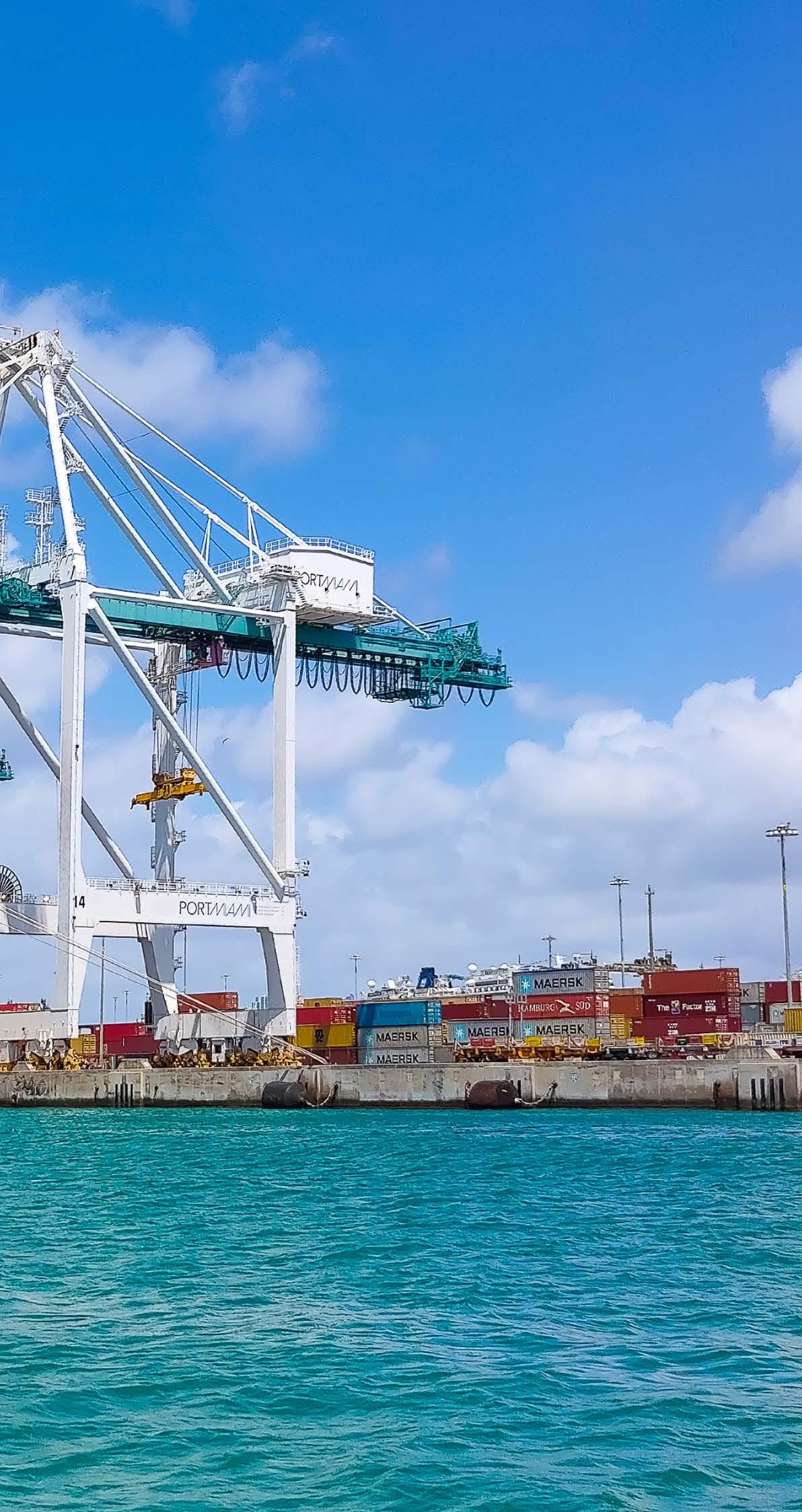

Across the global shipping industry, A.P. Møller – Mærsk (Maersk) is likely to be a name you are very familiar with, especially for its integrated transport and logistics services across the world. The company, a global leader in logistics services, today operates across more than 130 countries worldwide, supported by approximately 100,000 employees across the globe. With such a vast array of experience behind the company, it is no surprise that companies across the world choose to move their products with Maersk, knowing each and every delivery is supported by their full sea and inland transportation service. Across these services, Maersk ensures that no matter the cargo or destination, the company is committed to getting its customers’ products where they need to be – and in a cost-effective and timely manner. For North America, Maersk brings its expertise together to deliver full inland services that ensure cargo can smoothly travel across the region and onto key trading markets through its transportation routes.
Across North America, Maersk is committed to delivering well-connected, agile and reliable logistical solutions supported by its global network. In North America, there is a wealth of commodities being shipped locally across the region, as well as overseas to partners in places such as Europe. For Canada specifically, mining and technological development are at the forefront of the country’s development, and so these resources are vital for exporting within and across the country. These materials can include things such as fuel, vehicles, and machinery, which play a valuable role in supporting the economy of Canada. The United States of America (USA) sees a similar array of products shipping to and from its shores, with vehicles, electrical machinery, and even petroleum and gas products making up its key shipped commodities. Across Mexico and the rest of North America, items such as manufactured goods, electronic components, fuels and other energy products lead its import and export operations. Therefore, with such a wealth of products being shipped both within and from North America, it’s no surprise that Maersk is relied upon heavily for its services spanning across the region.
Across North America, Maersk offers regulated shipping services across many major ports. For Canada specifically, Maersk offers regular shipping services across its ports spanning both the east and west coasts, including services to the Port of Montreal, Port of Prince Rupert, Port of Halifax, Port
of Surrey and Port of Vancouver. In the USA, Maersk calls at ports along the entire coastline, including large-scale ports such as Port of Los Angeles, Port of New York, Port of Savannah and Port of Seattle – to name just a few. In Mexico, Maersk serves the likes of Port Altamira, Port Lazaro Cardenas, Port of Manzanillo, Port Progreso and Port Veracruz with shipping services. Across these ports, customers gain access to Maersk’s international ocean fleet, which ensures that all shipping operations from North America can reach global markets more easily.
One of the things that separates Maersk from its competitors is its international network, which is committed to delivering effective solutions that extend beyond the ports. Once cargoes reach end ports, both across North America for imports, or across the world as exports, Maersk provides full-inland services, which help to move the cargo from end ports to its end markets. It achieves this through its own transportation fleet supported by local transportation companies that help move cargo across roadways, railways and inland waterways.

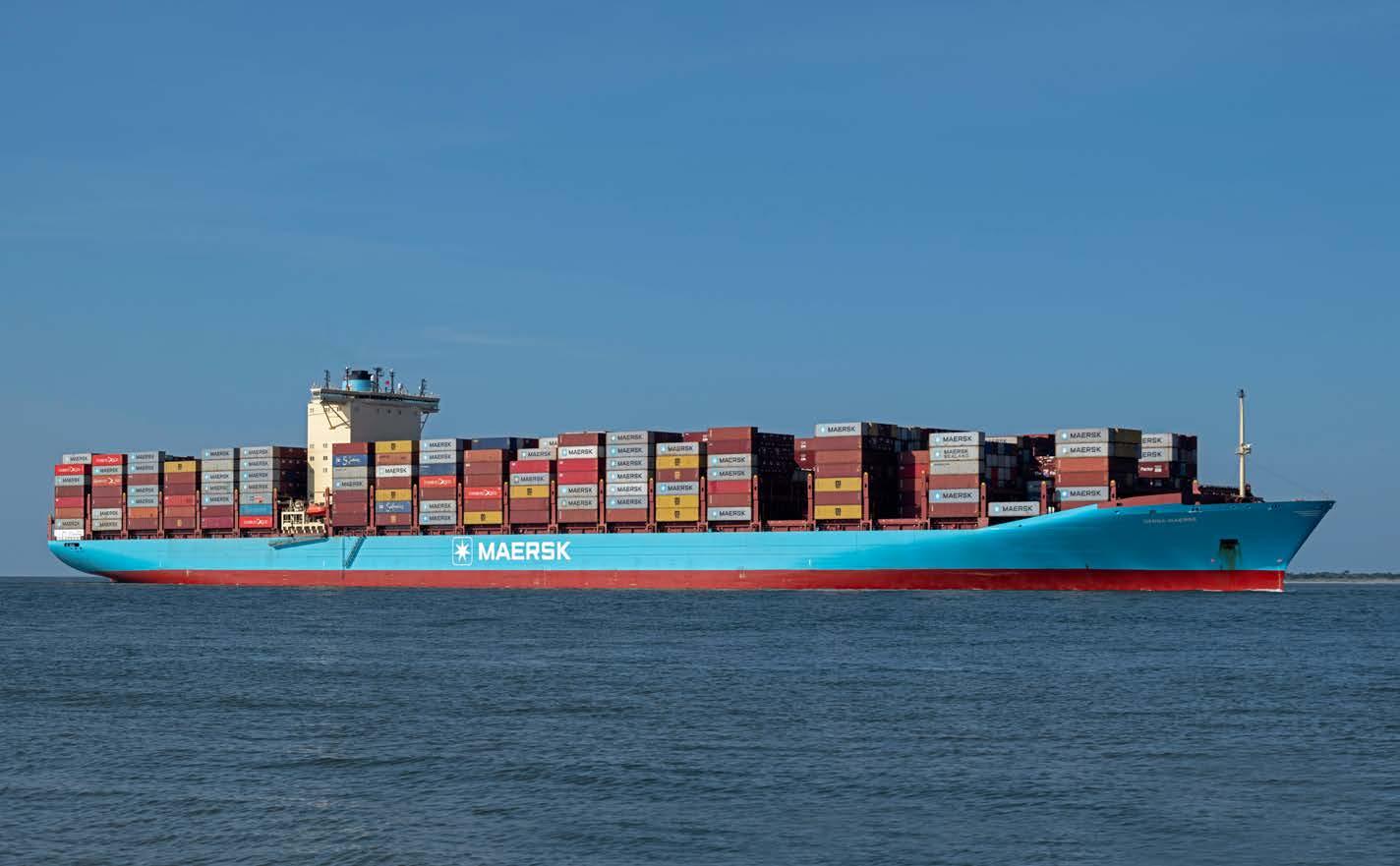


Connecting The World of Commodities

Degesch Canada Inc.
As part of the global Detia-Degesch Group, Degesch Canada delivers safe and effective pest management solutions while ensuring compliance with all international and national regulations and requirements. Trust our expert fumigation services to protect your intransit bulk vessel agricommodities, containers, and machinery shipments—ensuring safety, cargo quality, and regulatory adherence.
Ship with confidence—trust Degesch Canada: Care. Protection. Quality.
Many of the countries operating under Maersk in North America are vital trade partners, with Canada, the USA and Mexico playing a vital role in each other’s import and export markets. Across these markets, Maersk delivers its expertise to streamline supply chains to help get cargo from manufacturers to end markets much quicker. Across all of these services, Maersk is committed to delivering a full inland service, which ensures that whether travelling by sea, road, railway or barge, its customers’ supply chains are continually supported by its fleet and global network of expertise.
When dealing with such a diverse array of cargoes across North America, Maersk is committed to delivering the perfect shipping solutions that meet the needs of each cargo. This can include break bulk or refrigerated items, all of which require specific shipping needs, and it is these cargospecific requirements that Maersk thrives on providing. A great example of this is across Maersk’s operations in Mexico, where it provides specialised refrigerated cargo services which ensure produce and temperature-controlled items arrive in perfect condition. This attention to detail helps Maersk support North American supply chains by providing a cost-effective and reliable service that meets the


Stay Safe. Stay Connected.
with intelligent alerting, real-time transcription, and translation. Never miss an emergency call or navigation update again—boosting safety, efficiency, and awareness on the water.


exact needs of each cargo. However, this seamless movement of cargo wouldn’t be possible without Maersk’s network of local suppliers to help provide complete and integrated supply chain logistical solutions that cover cargo from the start to the end of its journey.
In July, Maersk released its North American Market Update, which outlined that the shipping links between Europe and North America have remained strong, whilst shipping between the Indian Subcontinent, the Middle East and Africa to North America is beginning to enter peak season. The demand for shipping between North America and West Africa remains firm, with garment and coffee volume expected to rise between North America and East Africa. In terms of shipping between AsiaPacific and North America, Maersk outlines that trans-Pacific import demand increased in June. To meet the demand, Maersk have reinstated its vessel capacity that has previously been downsized. The larger capacity should help meet the growing demand. These market updates remain vital to helping Maersk stay ahead of the game in delivering the best shipping facilities possible, which meet and expand its offerings based on demand. This ability to stay on top of current and predicted

cargo demands helps Maersk remain a leader in the industry, set on delivering its customers’ supply chains in the most effective way possible.
Across Maersk, there is a firm commitment to simplifying global logistics to help connect key markets and, through this, deliver an integrated world where shipping and logistics solutions like we have seen across North America can connect the whole way round. As the company looks towards the future, we look forward to seeing how it continues to enhance the shipping and logistics sector of North America, whilst working to continually build its network spanning all corners of the globe. With such a wealth of expertise behind it, it’s no surprise that Maersk is a leading shipping and logistics provider for North America and its customers’ supply chains.
MermAId transforms marine VHF communications
MermAId – Smarter Marine Communication.


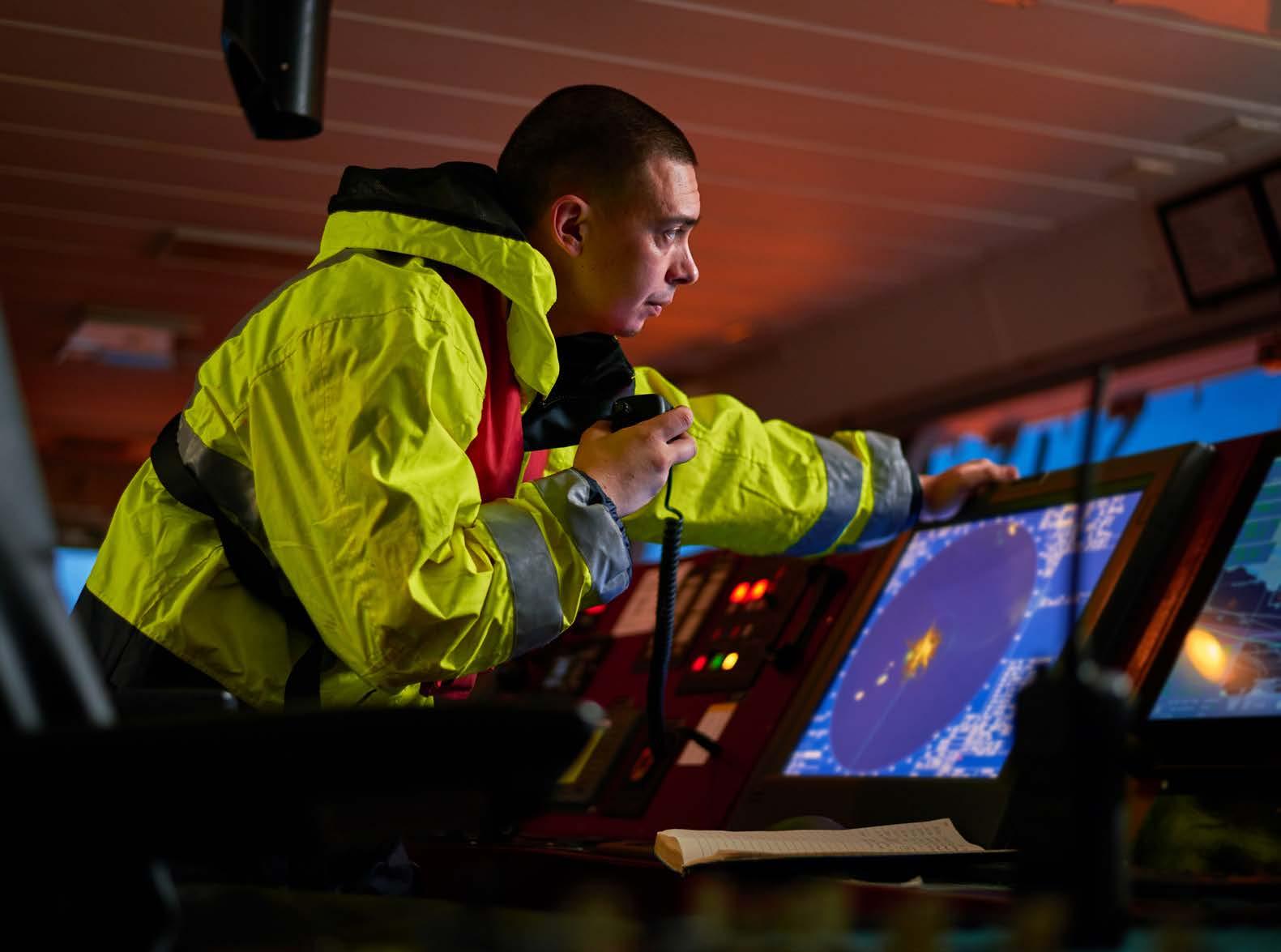
Maritime safety has never been more vital; with millions of vessels navigating the globe daily, ensuring seamless and efficient communication among these vessels remains crucial for safety, operational efficiency, and fleet management. With so many vessels communicating worldwide, mermAId, an innovative AI electronic product, was created and designed to improve inter-vessel communication. We were excited to speak with Dean Mancini, CEO and Chairman of Mermaid AI, Inc., the company behind mermAId, to see how this advanced AI product has already been making waves globally by enhancing safety and communication in the maritime sector.
MermAId originated within the US Navy, where the technology was developed following a research and development project aimed at enabling unmanned ships to autonomously communicate with manned ships over VHF radio. This program, the US Navy Unmanned Surface Vessel (USV) program, led to the development of mermAId, a sophisticated AI technology that scans all marine VHF channels simultaneously and transcribes all messages into text displayed in real time. These messages can be translated from 54 languages into English using advanced AI technology, ensuring users understand what is being communicated over the airwaves and allowing actions to be programmed based on this information.
When I spoke to Dean Mancini, CEO and Chairman of Mermaid AI, Inc., I asked him what role mermAId played in everyday maritime operations. Mancini outlined that ‘mermAId provides enhanced situational awareness to all aspects of maritime operations.
The Future of Maritime

communications of their vessels from land via any computer or the mermAId app on their mobile phone. They can even be alerted on their phone if one of the vessels issues a distress call.” Mancini continued, “Port and vessel traffic services and emergency personnel can have a better understanding of what is happening in their harbour by aggregating the radio traffic across all channels and can program automated alerts customised to their area of interest. If there is ever an incident, a date/time stamped log of that radio traffic, both in audio and text formats, are available to authorities and insurance companies in a searchable database online”.
Mancini’s comments here highlight just how valuable mermAId is across so many aspects of ports and harbours to enhance awareness of vessel activity, and to allow for a quick response should an emergency occur. In the event of an emergency, mermAId is an essential tool because the technology can be used to automatically alert authorities of a dangerous situation. Giving an example, Mancini outlines that “in the event of a disabled vessel that is on a collision course with a bridge, mermAId can

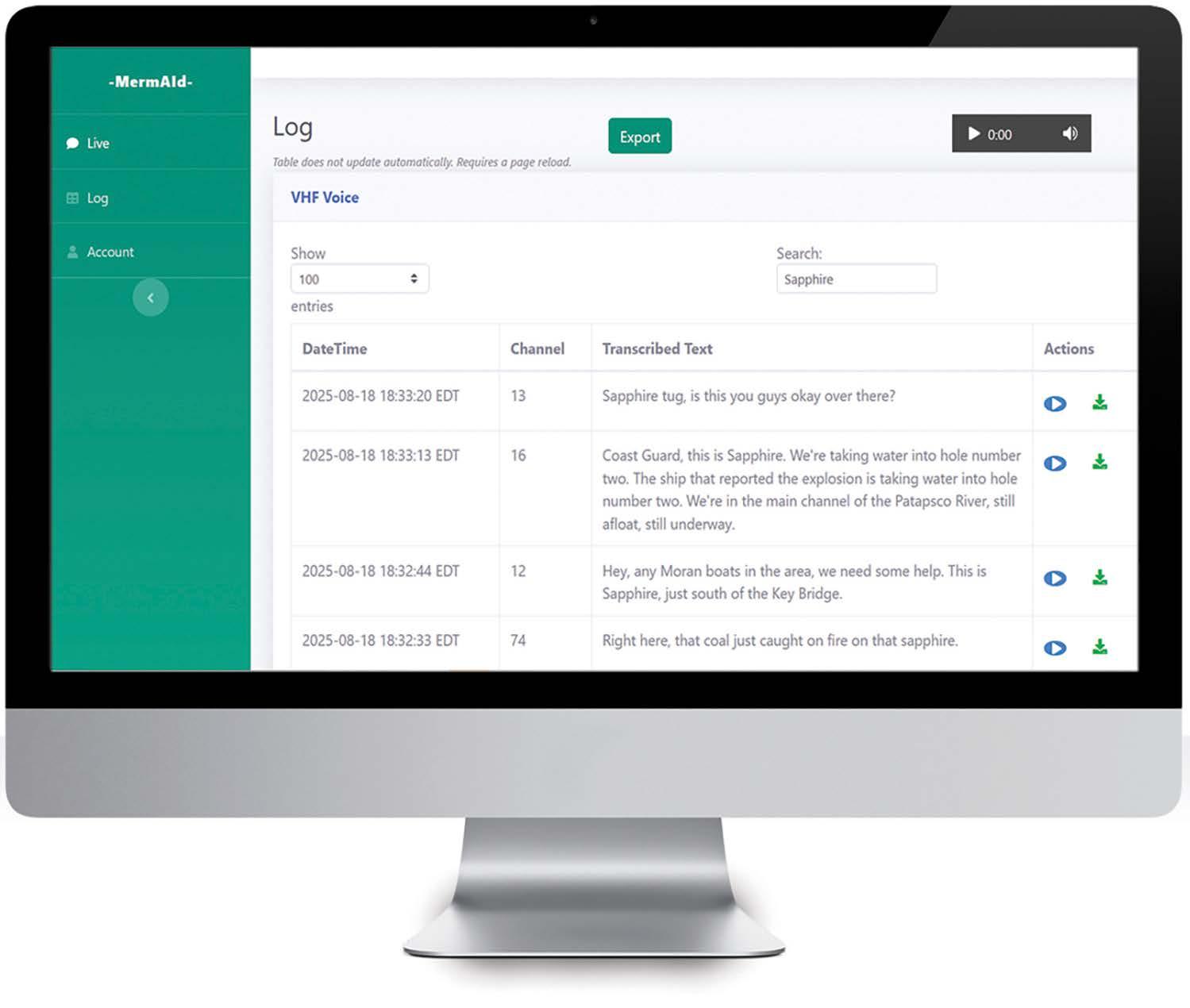
be programmed to send a text message to port authorities and police to close the bridge”. This ability to proactively respond to emergencies ensures an extra layer of safety across the maritime landscape, supported by this innovative AI product.
With so much great technology behind it, mermAId today is being utilised by the US Navy to support harbour surveillance operations. The technology stands head and shoulders above its rivals as the first of its kind, as a vital patented technology, which has proven its success with an institution such as the US Navy. In addition to the US Navy, the Port of Baltimore has been one of the most recent ports to adopt mermAId to improve safety across its harbour by rapidly disseminating critical information. The adoption of mermAId came following the collapse of the Francis Scott Key Bridge in March 2024, when a container ship struck one of the bridge’s piers. In an effort to increase safety across the Port of Baltimore, it has adopted mermAId technology to allow it to help monitor vessels across the port and prevent such events
from occurring in the future. Since it adopted mermAId, the Port of Baltimore has benefitted from enhanced port management and visibility, whilst maintaining reliable communication with all vessels travelling through Baltimore’s waters.
The company behind mermAId is Mermaid AI, Inc., with the technology having been developed by TDI Innovations Inc., part of a family of operations. TDI Technologies, and its affiliate company, TDI Novus, Inc., have been leaders in the engineering, research and design sector for the Department of Defence for over 35 years, with a central part of its research and development being focused on AI. With the increase of AI across the maritime sector, mermAId benefits from TDI’s expertise in this field to deliver greater awareness, faster and automated actions, which support increased efficiency and improved safety, whilst reducing costs in the process.
VHF Traffic captured by mermAId in Baltimore, MD after the M/V W Sapphire explosion on 18th August 2025
The Future of Maritime Safety
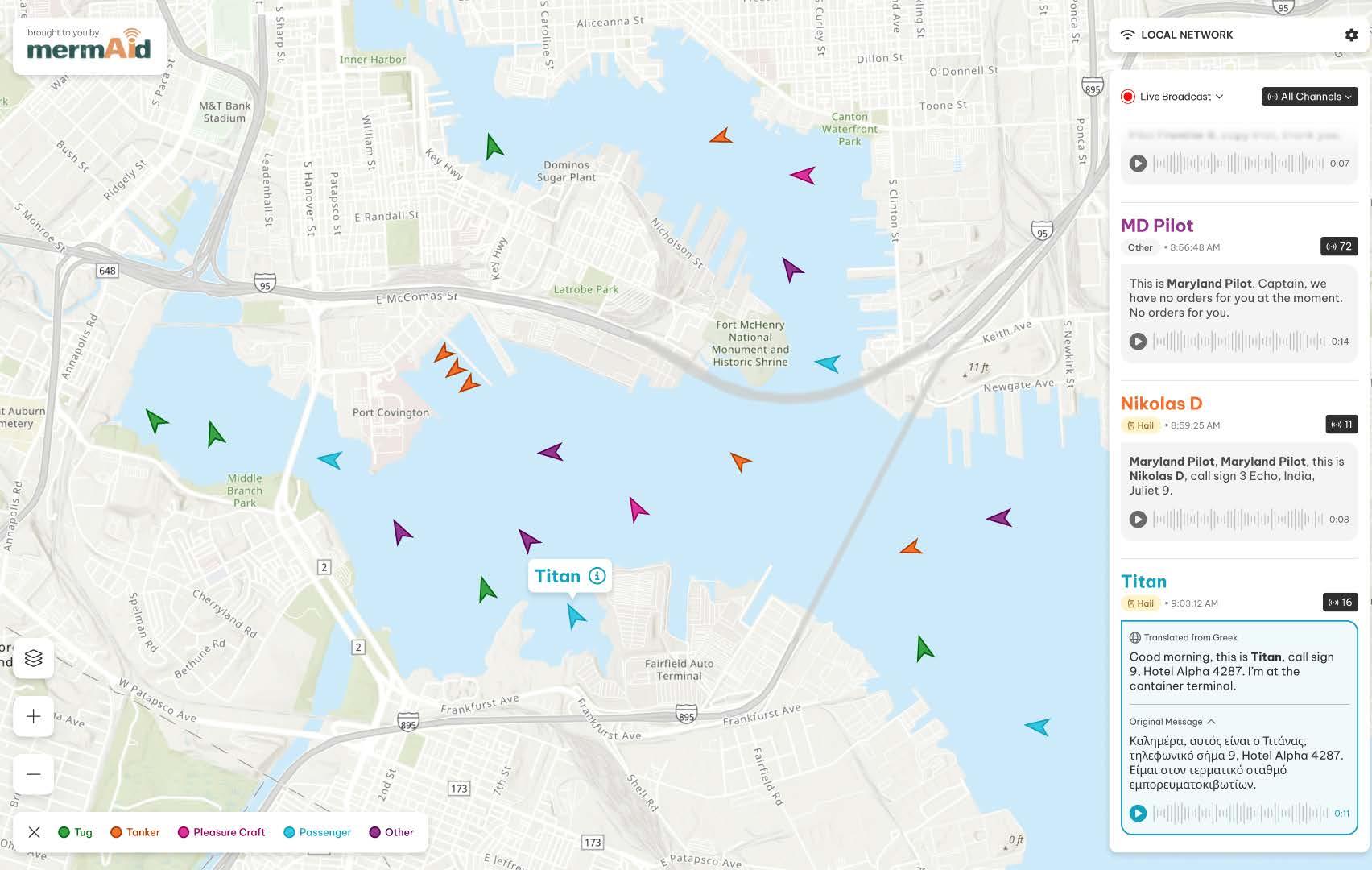
As Mermaid AI, Inc., and its mermAId technology look towards the future, I asked Mancini what the goals of mermAId technology over the coming years were. Mancini outlined that the central goals of mermAId are to transform VHF communications into a more powerful, actionable, and automated tool to improve safety and awareness in the maritime community. As the company moves towards this goal, mermAId technology has continued to be piloted with several of the largest tug companies in the inland waterways sector to monitor their vessel operations and assist with dispatch operations. Mancini outlined that the company is “developing a version 2.0 of our software which will include a map view to show vessels which are associated with radio transmissions, as well as a new mobile app to allow for remote monitoring and notification anywhere in the world”.
With this development, Mancini hopes to see mermAID being utilised across ships and harbours worldwide. For Mancini, “There is a multitude of communication being used out there and the technology in mermAId will allow us to unlock and fully utilise all that information. I believe it will ultimately save lives and being a part of that is
hugely fulfilling to me on a personal level”. Mancini’s comments here highlight that mermAId is not just technology to enhance fleet communication, but in the long term, it is a vital tool that will improve safety and save lives in the future. With safety being such a crucial aspect of maritime operations, the development of AI-powered technology such as mermAId that can improve awareness, communication, and emergency alerting will help to shape the future of ports and harbours worldwide. We look forward to catching up with Dean Mancini again soon to see how more stakeholders in the maritime sector continue to adopt the company’s mermAId technology to improve communication and safety in their ports and harbours.
mermAId version 2.0 interface, expected for release in late 2025

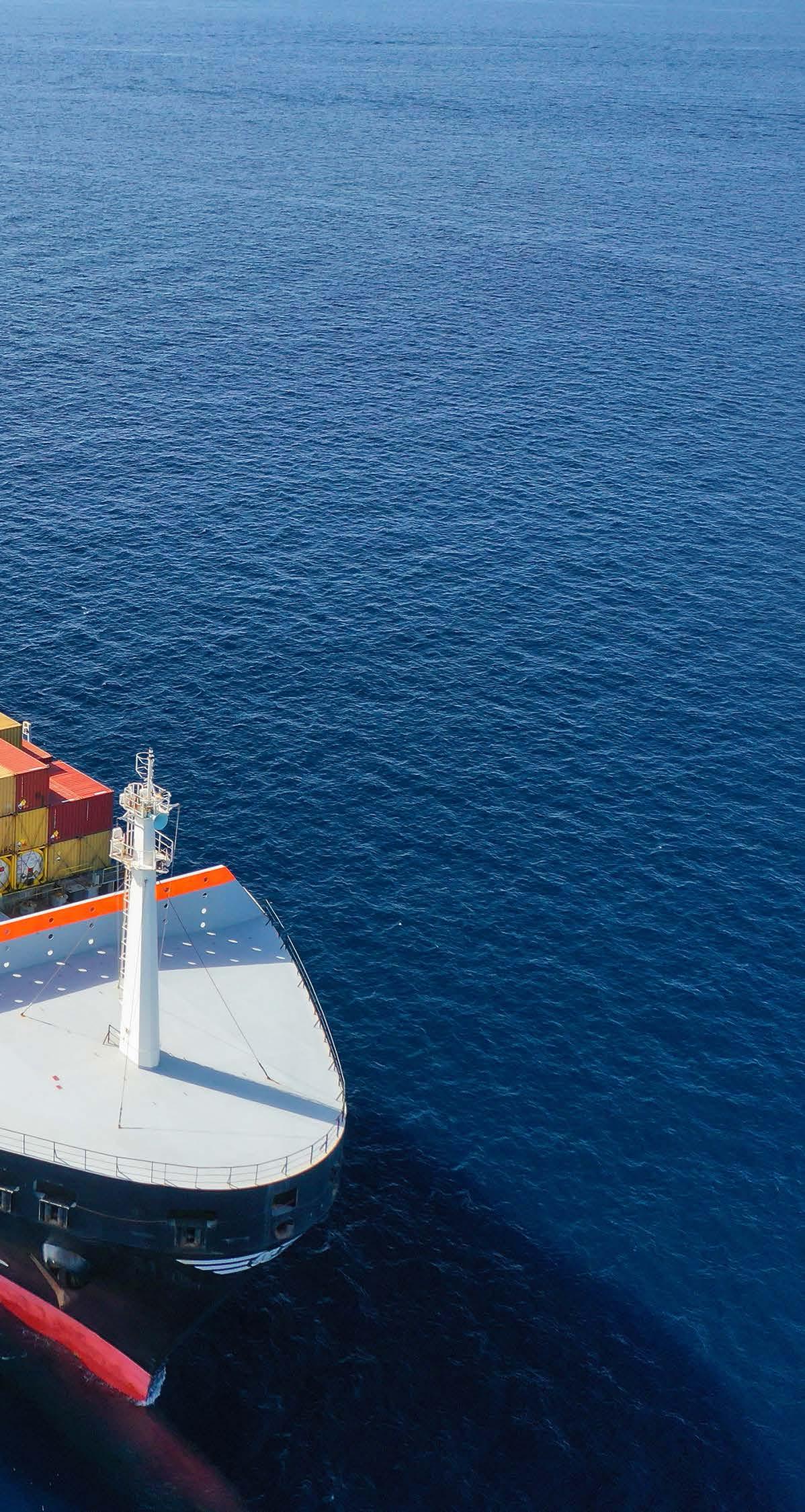
Port of Lake Charles
Located in Louisiana, The Port of Lake Charles is a deepwater seaport along the Calcasieu Ship Channel which runs north of the US Gulf Coast. Encompassing roughly 203 square miles of prime channel-side real estate, the port is now the 12th busiest across the nation and annually handles over 56 million tons of breakbulk and bulk cargo travelling along the channel. Therefore, the Port of Lake Charles continues to play a pivotal role in developing the economic landscape of Louisiana through vital cargo shipment and handling facilities.
The Port of Lake Charles is responsible for managing the Calcasieu Ship Channel which runs inland 36 miles and extends out into the Gulf of Mexico a further 32 miles. This Ship Channel drives almost $40 billion of the US Gross Domestic Product (GDP) as it facilitates the shipment of cargo and materials across the Gulf Coast of America. Therefore, the Port of Lake Charles provides essential cargo and landlord services and today is regarded as the 14th busiest port district in the nation as ranked by the US Army Corps of Engineers based on tonnage.

The Port opened in 1926 following its authorization by Act 67 of the Louisiana Legislature just a few years earlier. The official title of the port upon opening is The Lake Charles Harbour and Terminal District, a title the port has kept to this day. However, since its origins the role of the port has continued to expand and now is annually responsible for helping the shipment of vital cargo such as forest material, aluminium ingots, grain, rice, petroleum and petroleum products, frac sand, and heavy lift project cargos. All of these cargos are handled by the port and delivered to the vital land logistical infrastructure across Louisiana.
The Port of Lake Charles is governed by a 7-member board of commissioners who are responsible for overseeing the 2 marine terminals and the 500 acres of property which make up the Lake Charles Harbour and Terminal District. Therefore, serving as the landlord to companies across the port property as well as various other leasable sites near the Calcasieu Ship Channel, the Port of Lake Charles plays an expansive and committed role in ensuring the development of the Louisiana region via the port’s services and land.
A key part of the Port of Lake Charles’ operation is in marine shipping. The port has developed a custom shipping solution which delivers big results for the shipping channel. This includes the City Dock Facility, where the majority of cargo operations take place. It includes 12 deep water berths, where cargo is offloaded or loaded. The berths have a projected depth of 35 feet (ft), with berth 8 having a depth of 40 ft which is used for bulk grain shipments. The facility also includes a 1.6 million square foot of covered storage for warehouse services. The City Dock Facility is located close to essential rail links

making it an ideal location to connect the port to the rest of the state and beyond.
The Port’s Bulk Terminal No.1 provides 7 acres of dry bulk terminals at the Rose Bluff Cutoff along the Calcasieu Ship Channel and can accommodate 2 vessels for loading and unloading. Furthermore, the terminal also operates 2 travelling ship loaders and 2 travelling clamshell bucket unloaders, these include a pet coke ship loader which can facilitate 3,200 short tons per hour, and a calcined coke ship loader with a capacity for 1,200 short tons per hour. Bulk Terminal No.1 provides vessel-tovessel, vessel-to-truck, or vessel-to-open storage solutions. Consequently, the terminal processes more than 3.1 million short tons of dry bulk material annually which includes petroleum coke, calcined coke, barite, rutile, and other dry bulk commodities. In addition, the port is home to Bulk Terminal No.4 which deals in aggregates and is leased to a private company. The Terminal has a 251ft dock face, which can extend to 355 ft with dolphins and has a depth of 35 ft to help move more than 1 million metric tons of imported aggregate annually.



Port of Lake Charles

The facilities at the port have been designed to deal in such high quantities of multiple different types of cargo including break-bulk, speciality, heavy-lift, and project cargo from industrial components to forest/lumber products. Whilst the port facilities help to optimise the efficiency of shipment across the terminals, the port is also in a great strategic location just 12 miles upriver from the Gulf Intracoastal Waterway, is close to rail lines (Port Rail) and only 2.5 miles from an interstate. Therefore, the shipment of cargo from the port across land logistical services is made so much easier. Therefore, it is no surprise that the port trades with more than 70 countries around the world thanks to its reputation as the port of choice along the shipping channel.
As the company looks towards the future it is set on developing facilities at the Port of Lake Charles to cope with the $46 billion worth of pre-planned projects set to take place along the ship channel. This will add a further 90.8 million tons of cargo to the existing 56 million tons already travelling through the channel and port every year. The port has already begun inputting new port docks which can accommodate loads of 1500-2000 pounds per square foot, which is almost 4 times the strength of its current berths. This is part of more than $287 million in capital projects which are planned over
the next decade to expand the port’s role and capacity as it continues to be a key player in world trade and speciality cargo.
Another key development for the future is the opening of Cameron LNG (Liquified Natural Gas) Facility which will handle the exports of coke by-products from local petroleum refining, imported lumber, exported bagged and bulk grain, wind energy equipment, project cargo, limestone, rutile, barite, rubber, and chemical products. As this development will take place on the leased land of the Lake Charles Harbour and Terminal District, it will continue to establish the port as a key player for international shipping of cargo.
Overall, the Port of Lake Charles is home to one of the most pivotal ports along the Calcasieu Ship Channel and is responsible for developing a significant part of the Louisiana economy thanks to cargo shipment both into and out of the country. With key developments set to take place over the coming years to meet the growing demand for shipments along the Calcasieu Ship Channel, we look forward to seeing how the port’s facilities continue to expand and meet the needs of the future as a leading port and cargo terminal.
